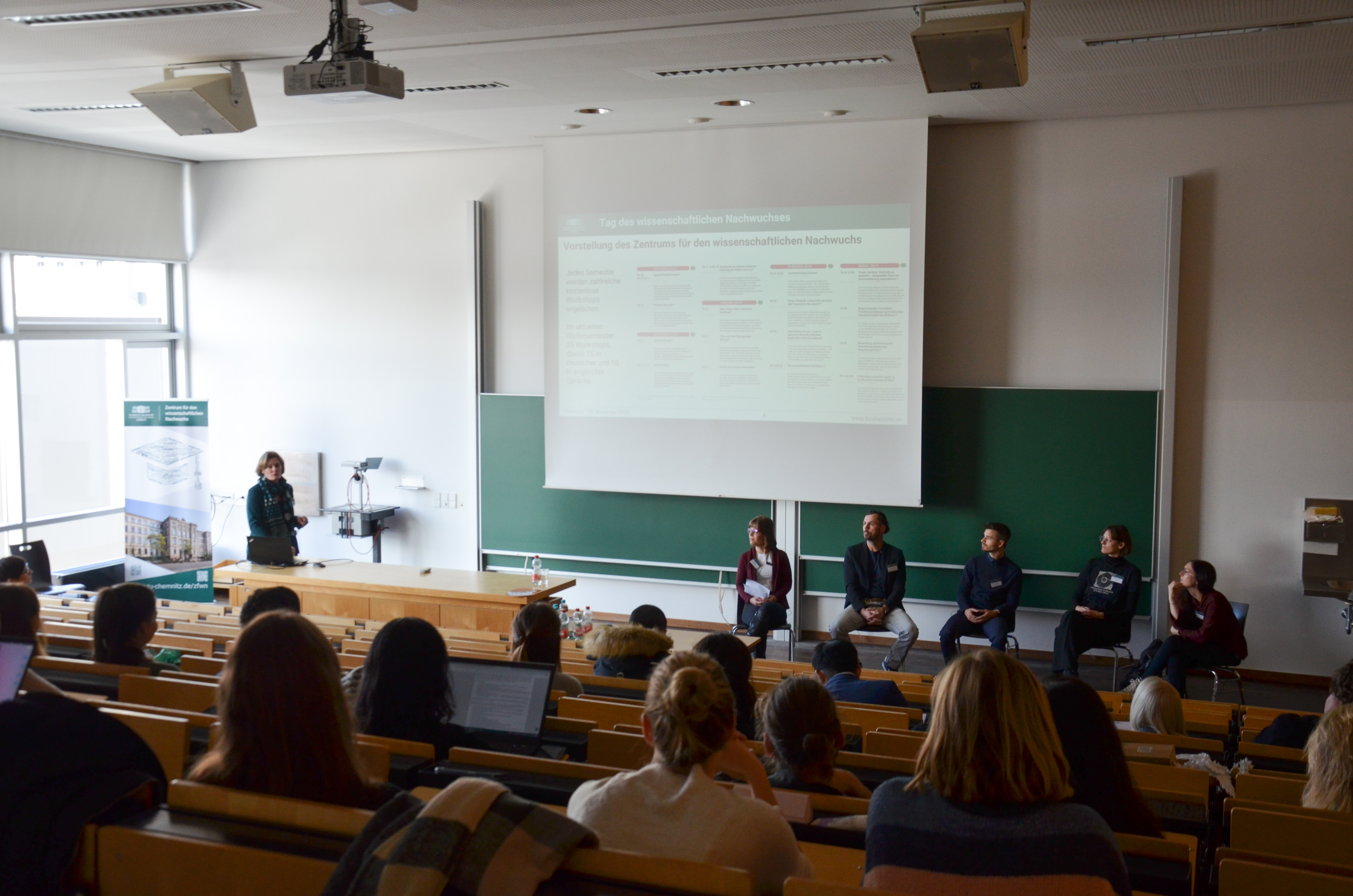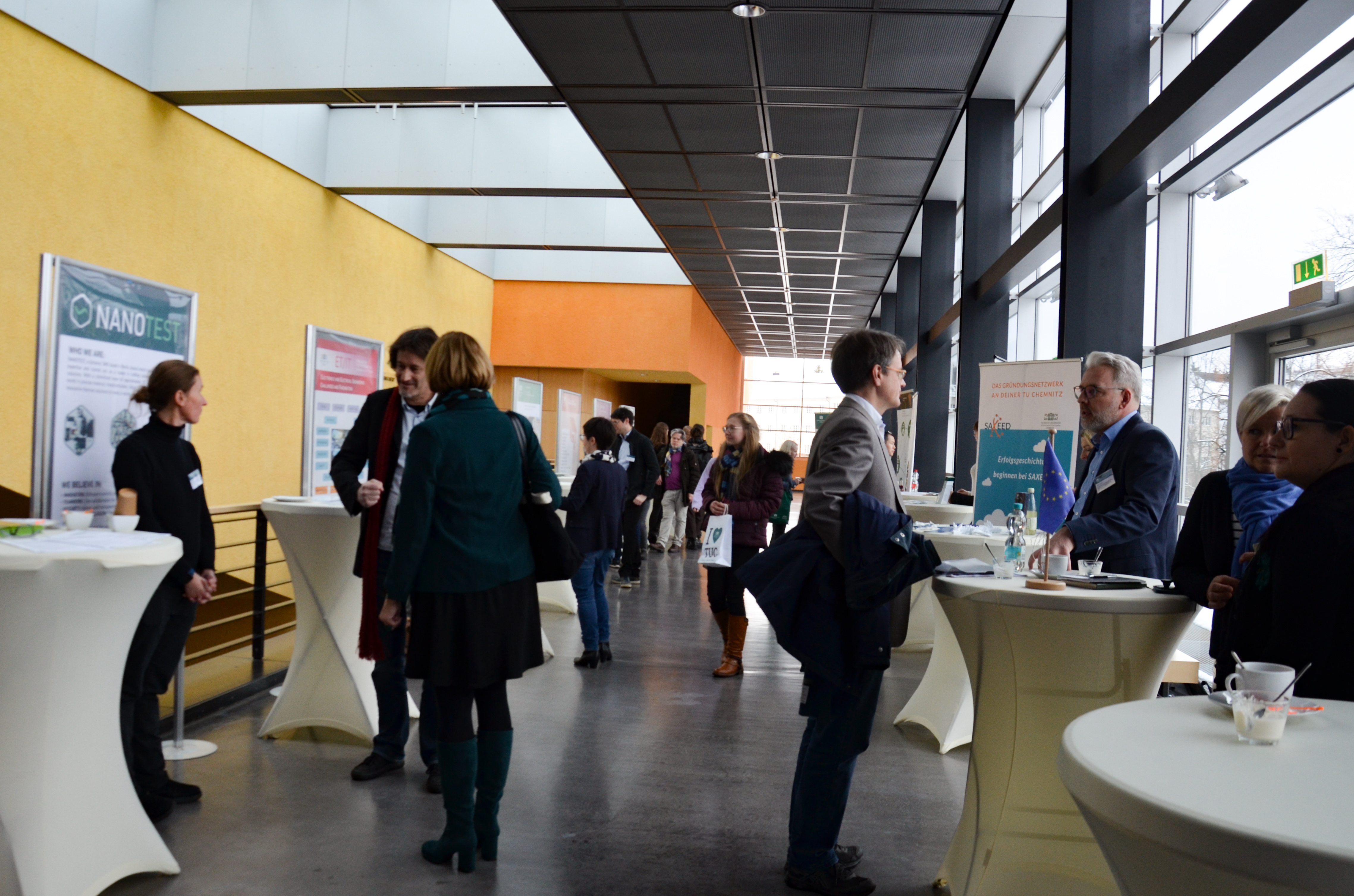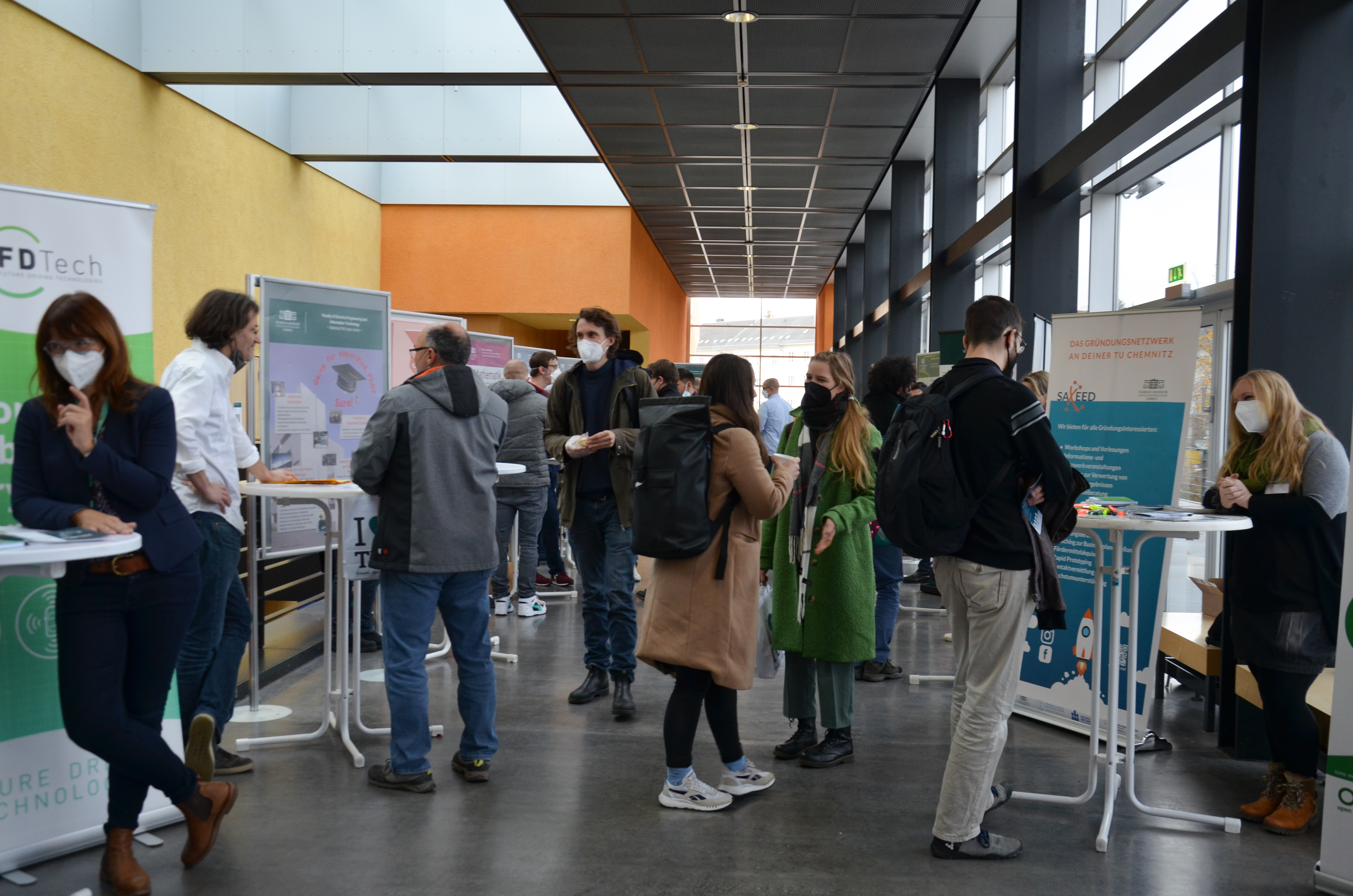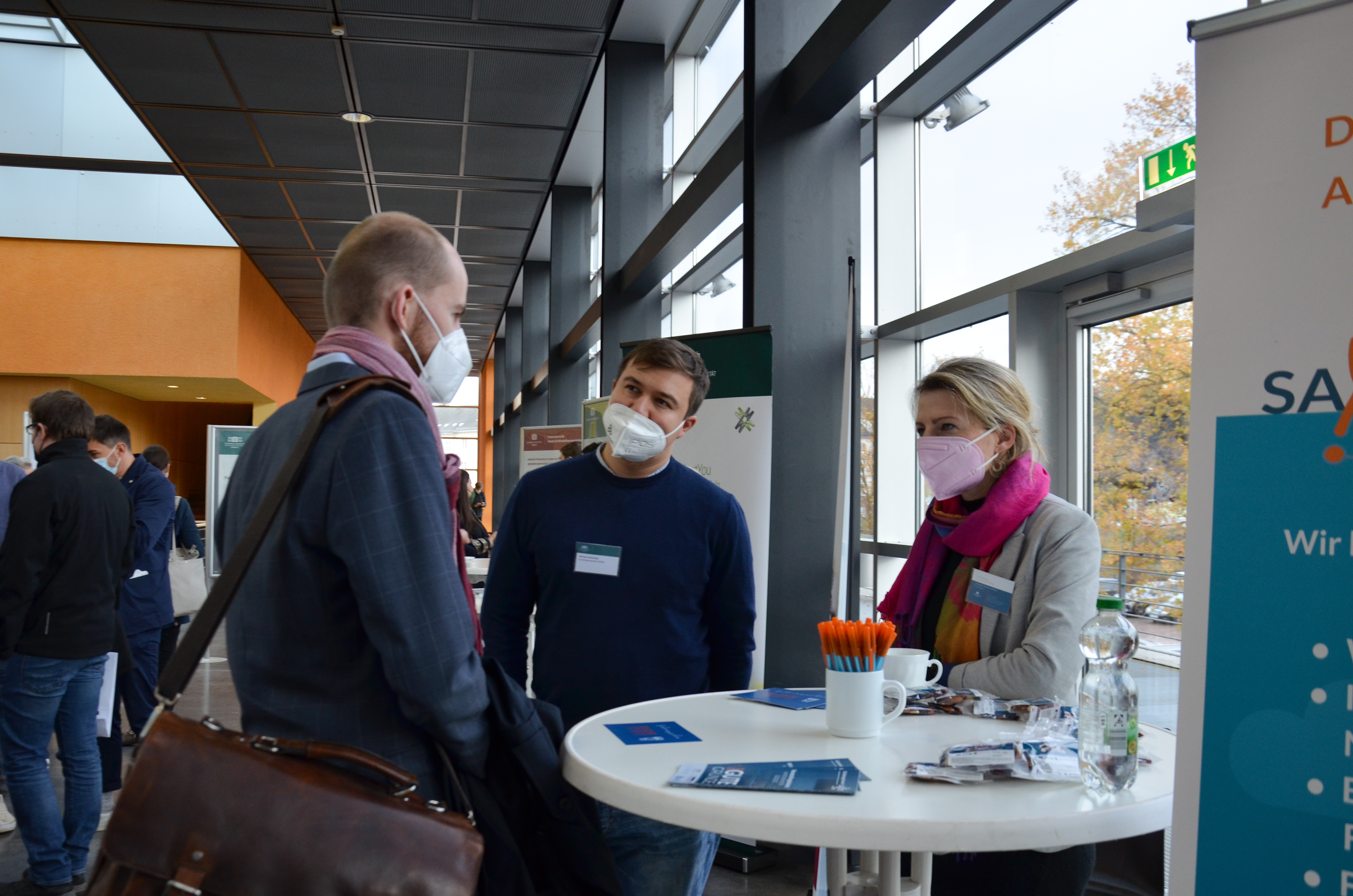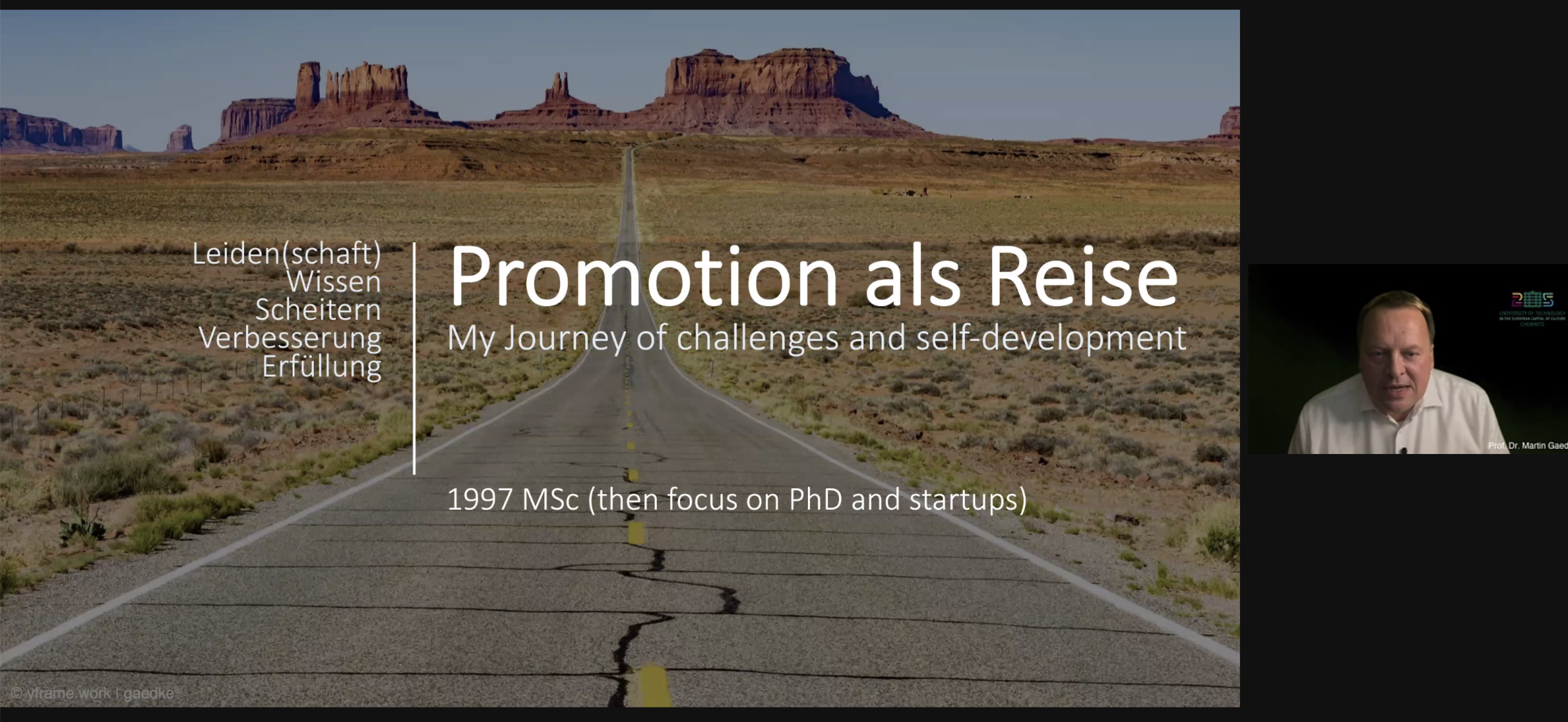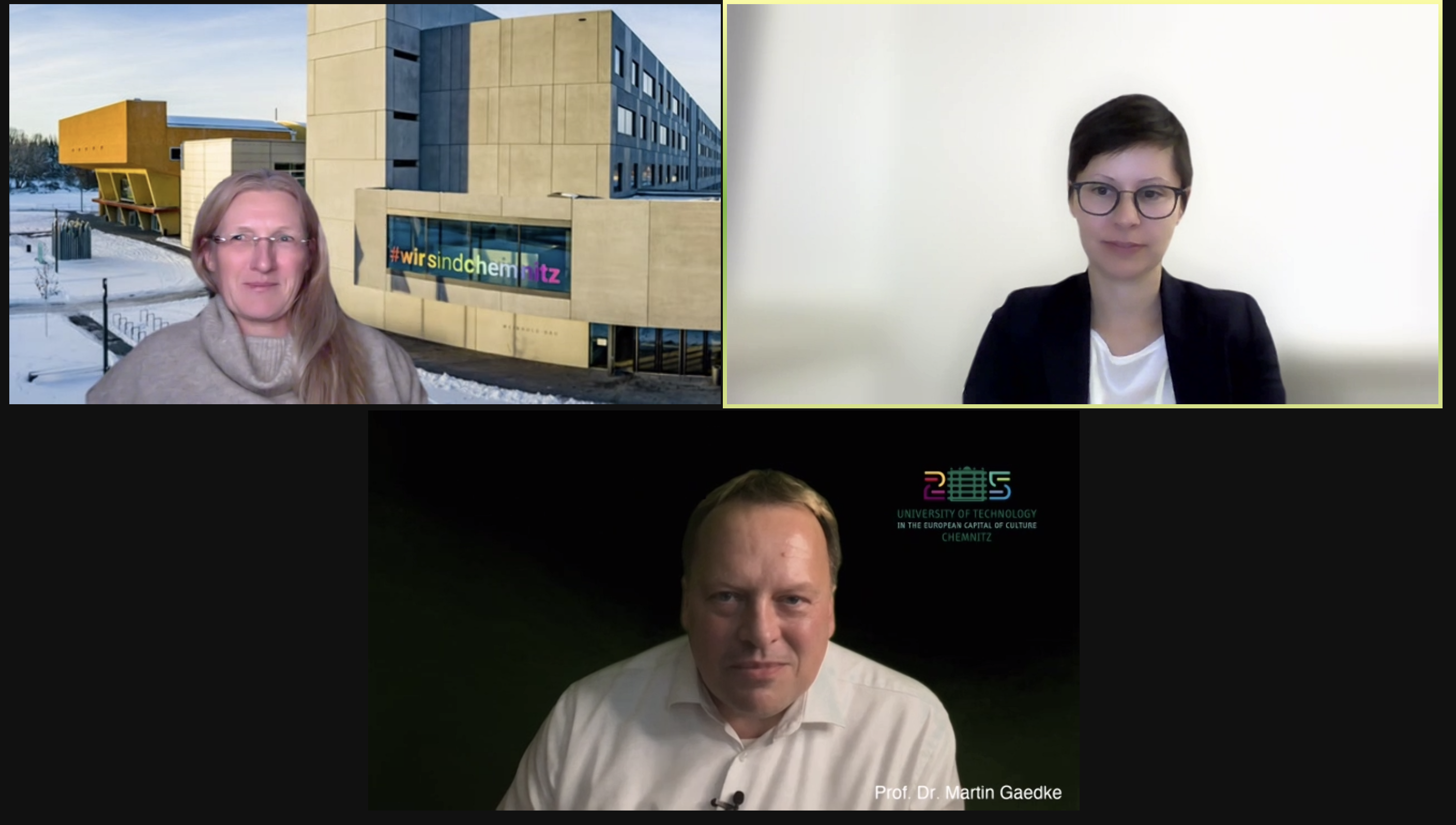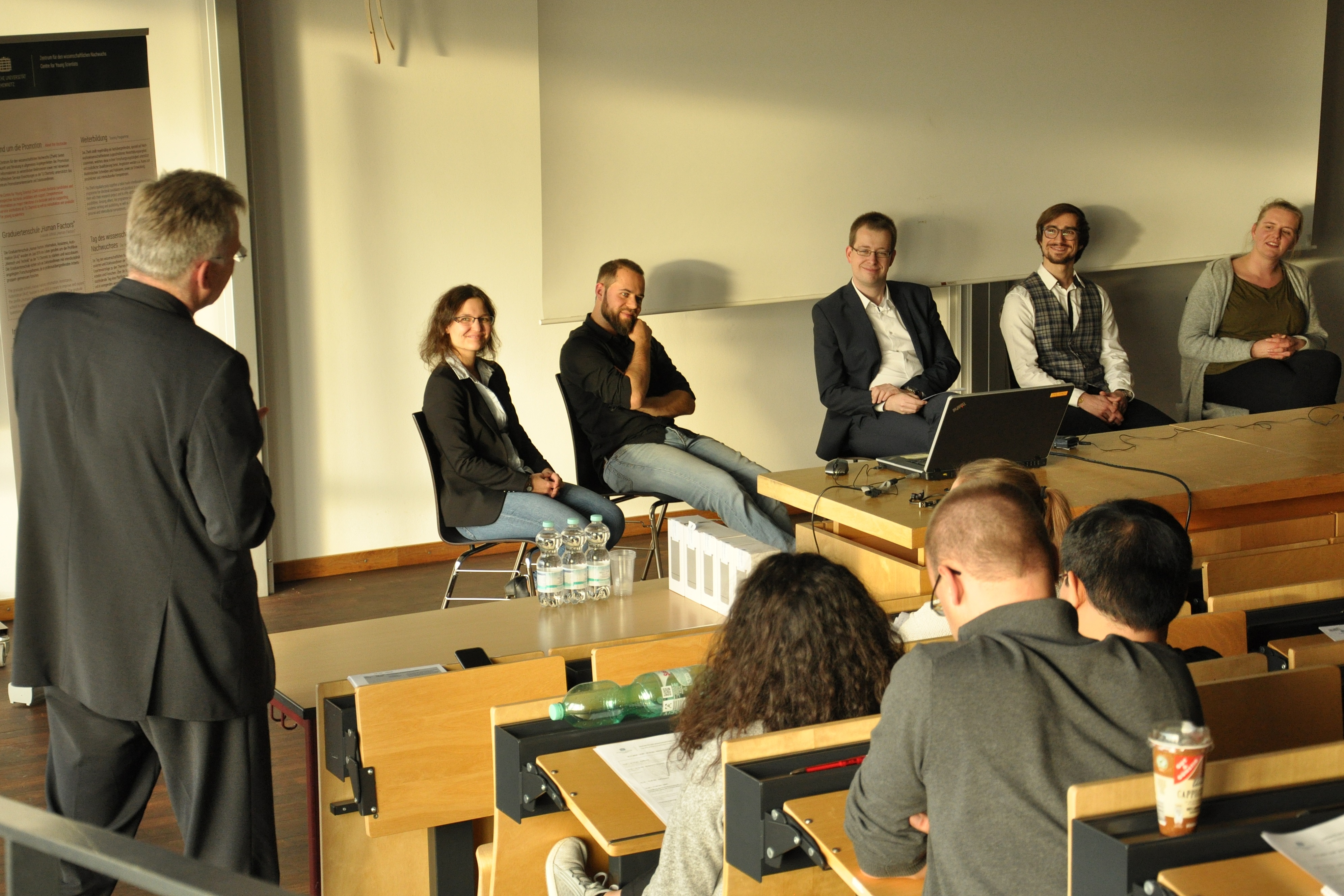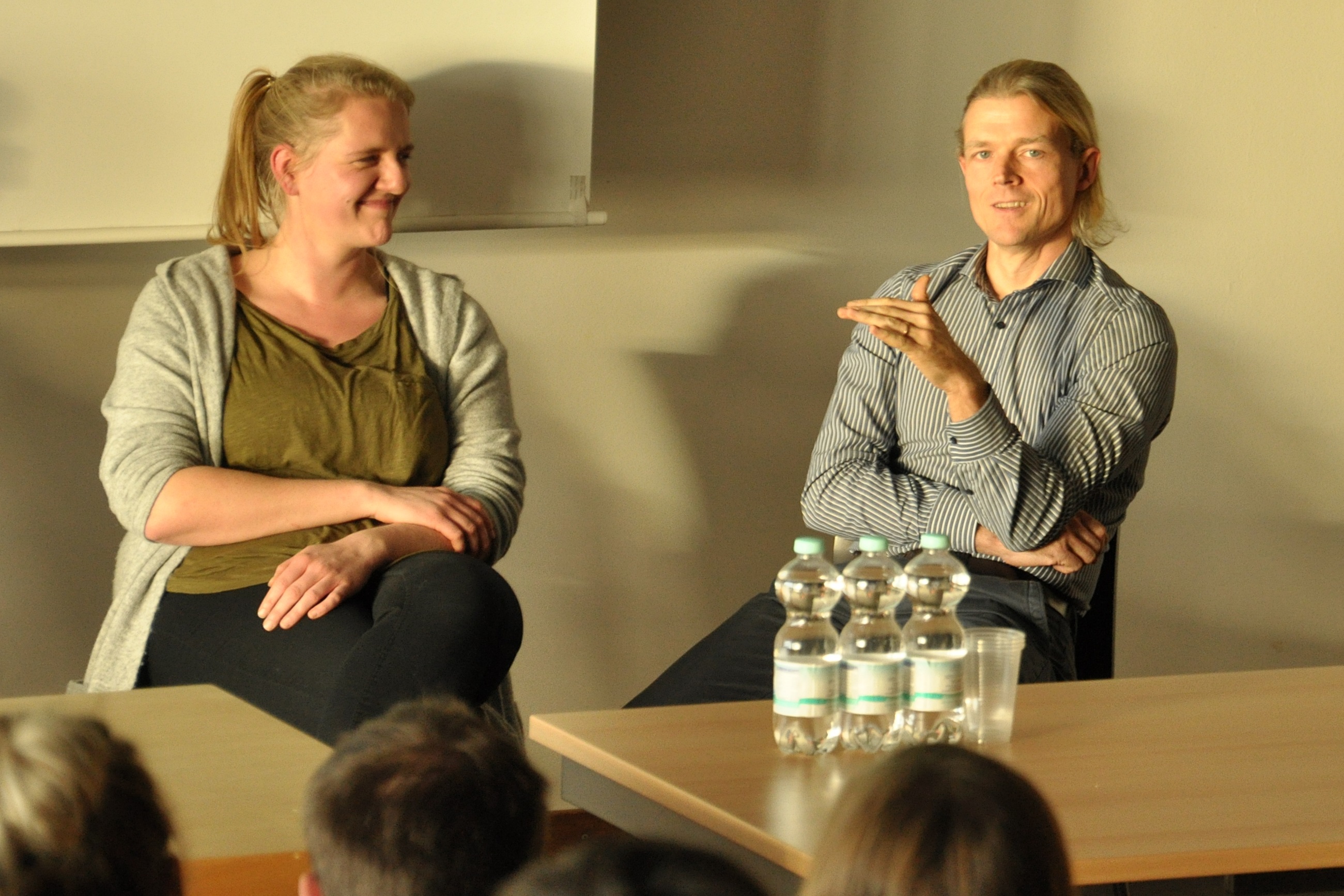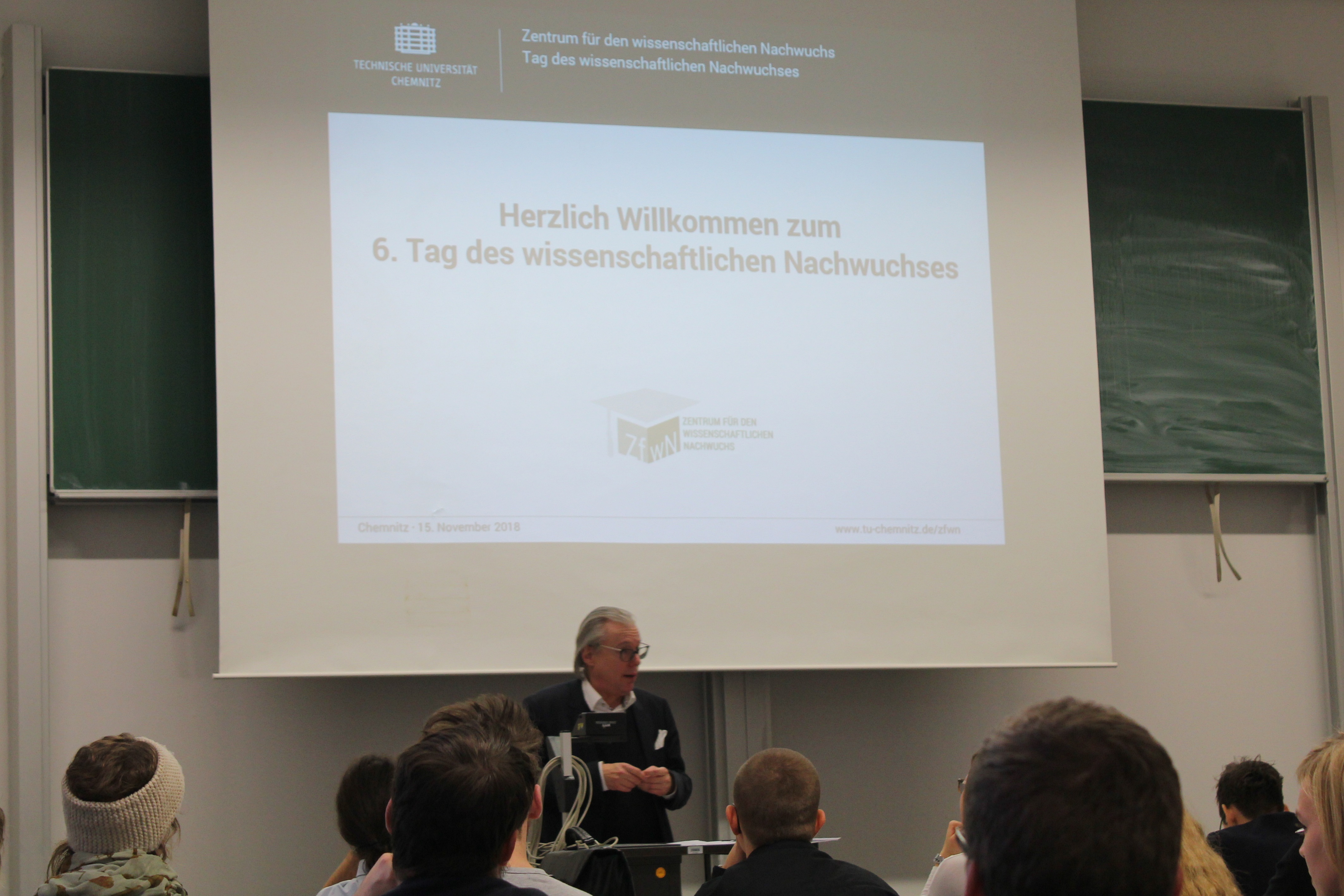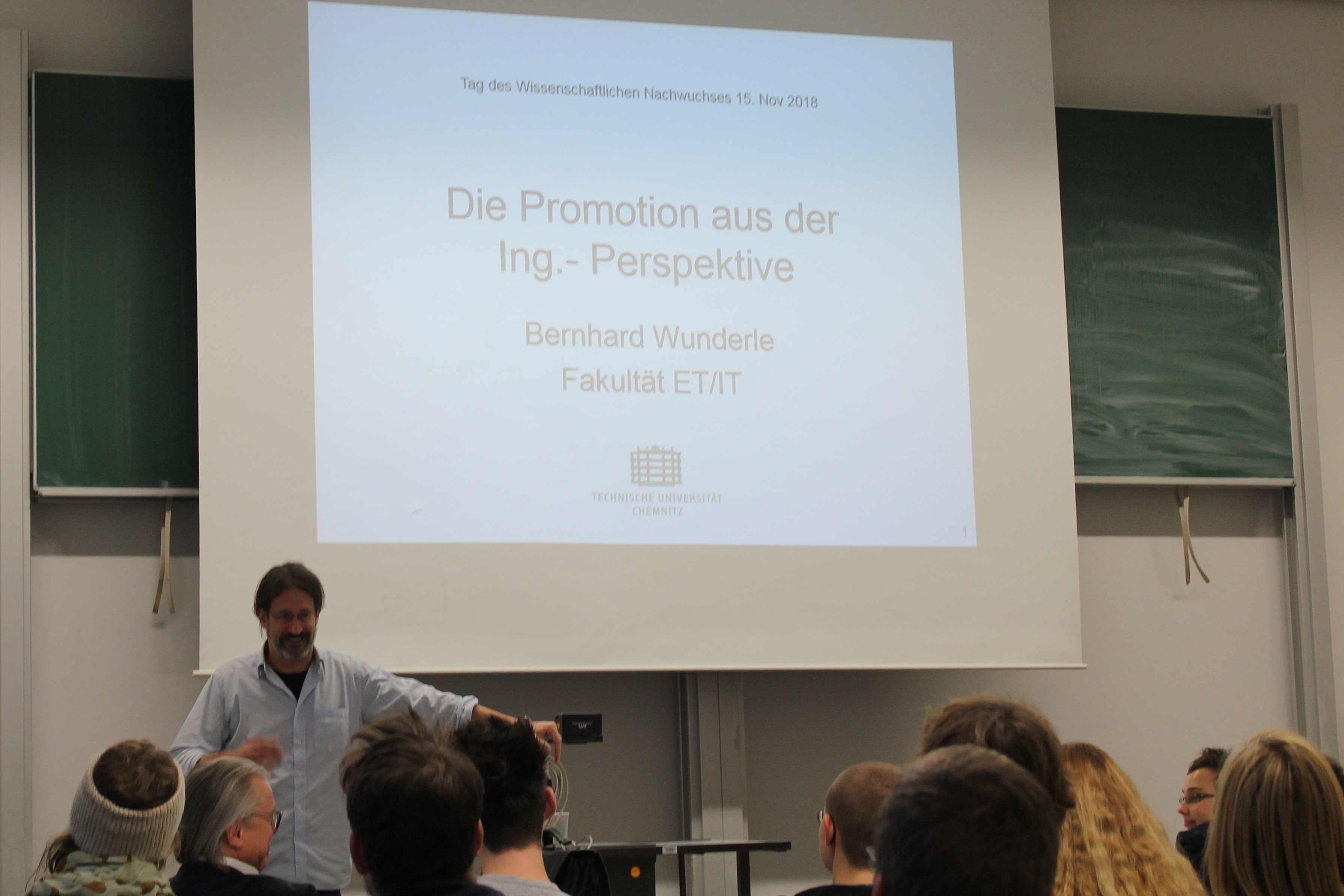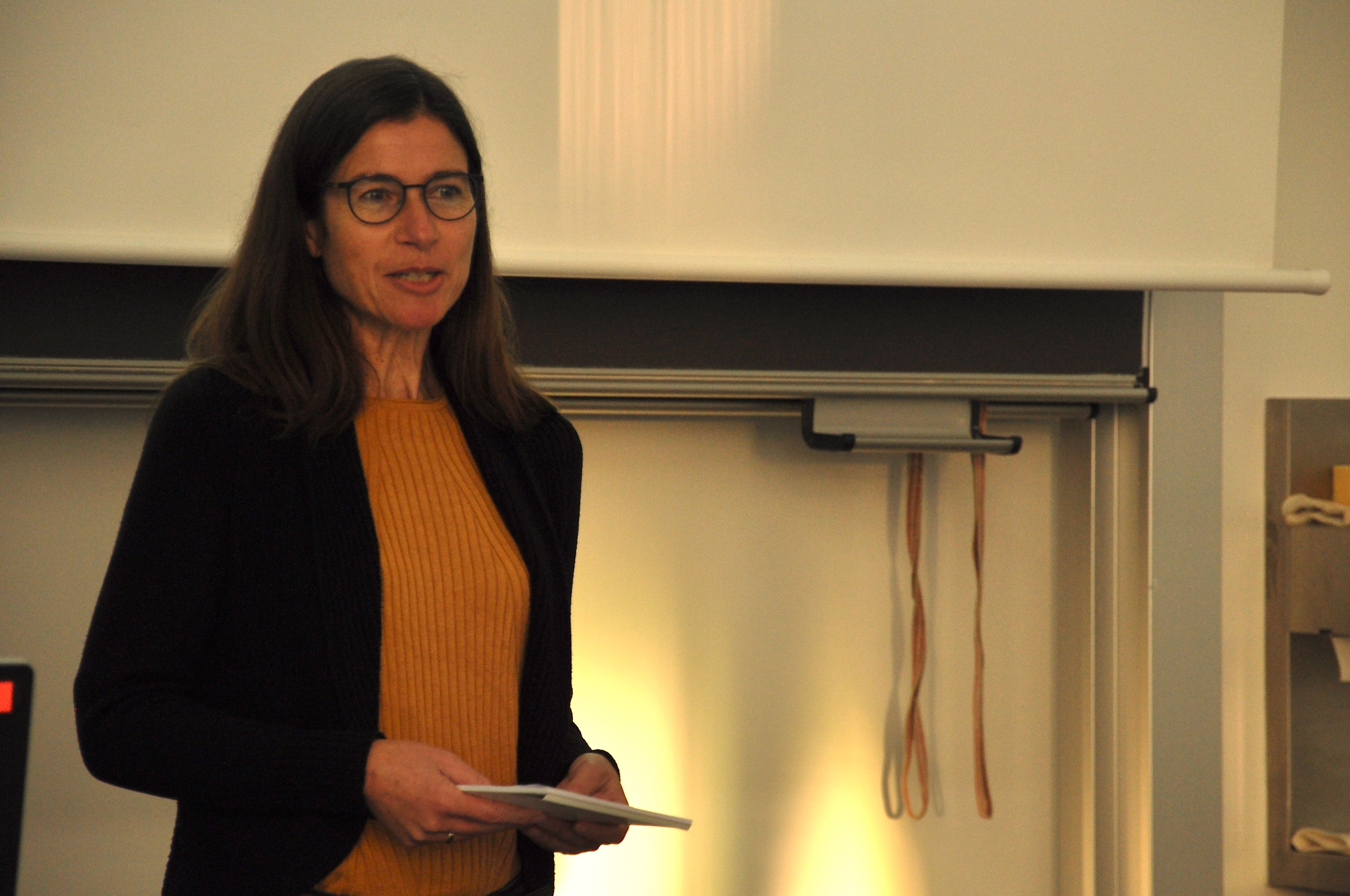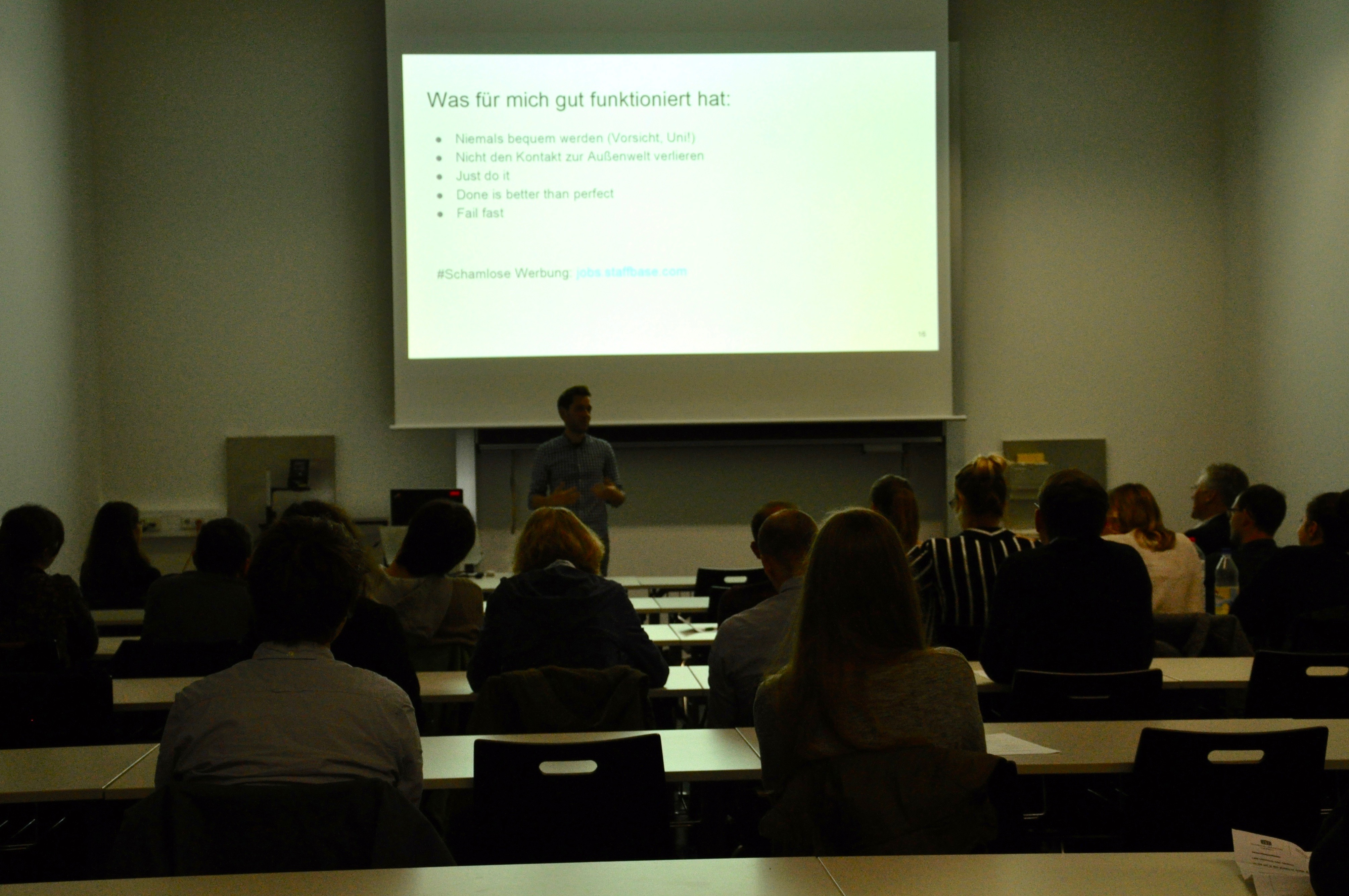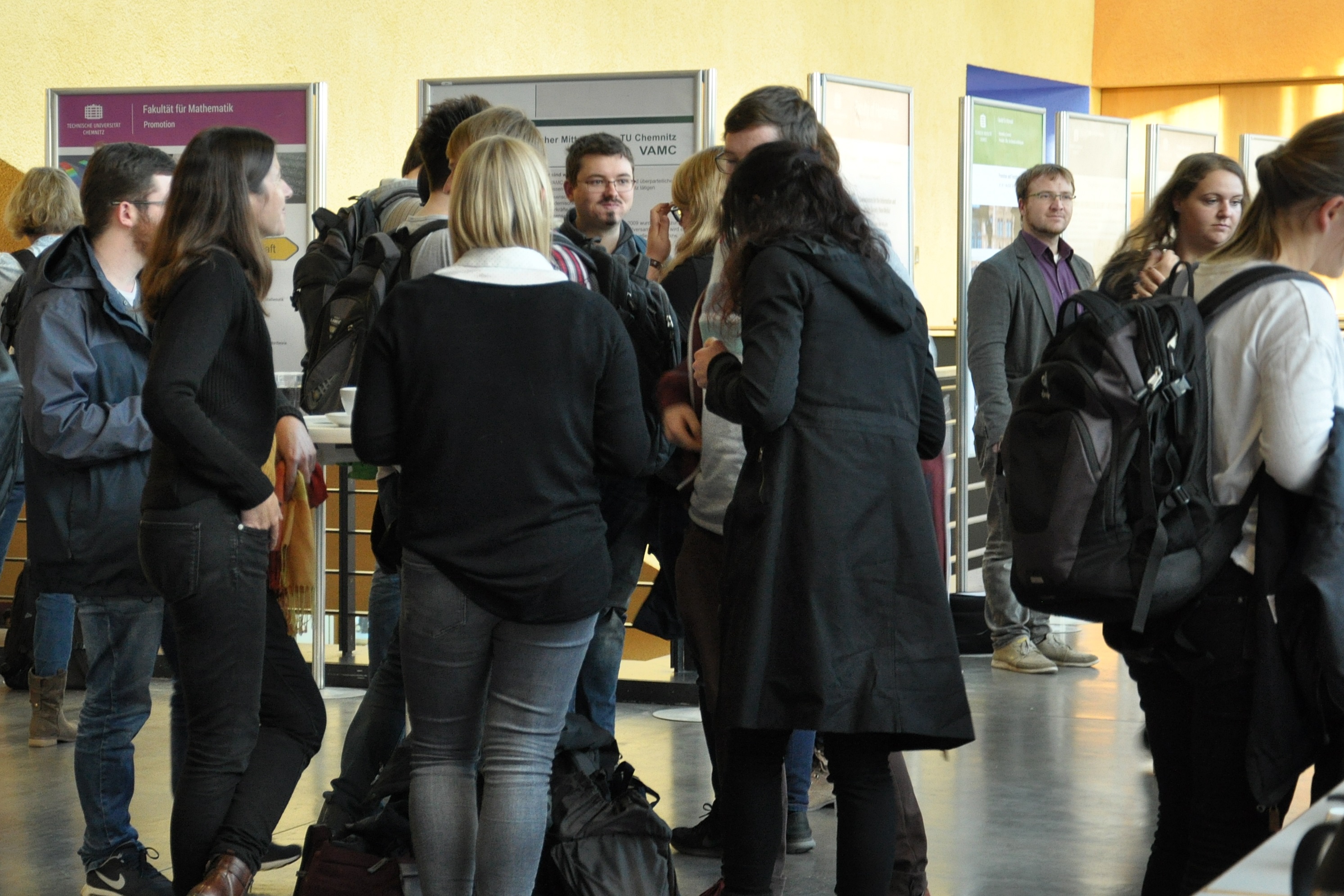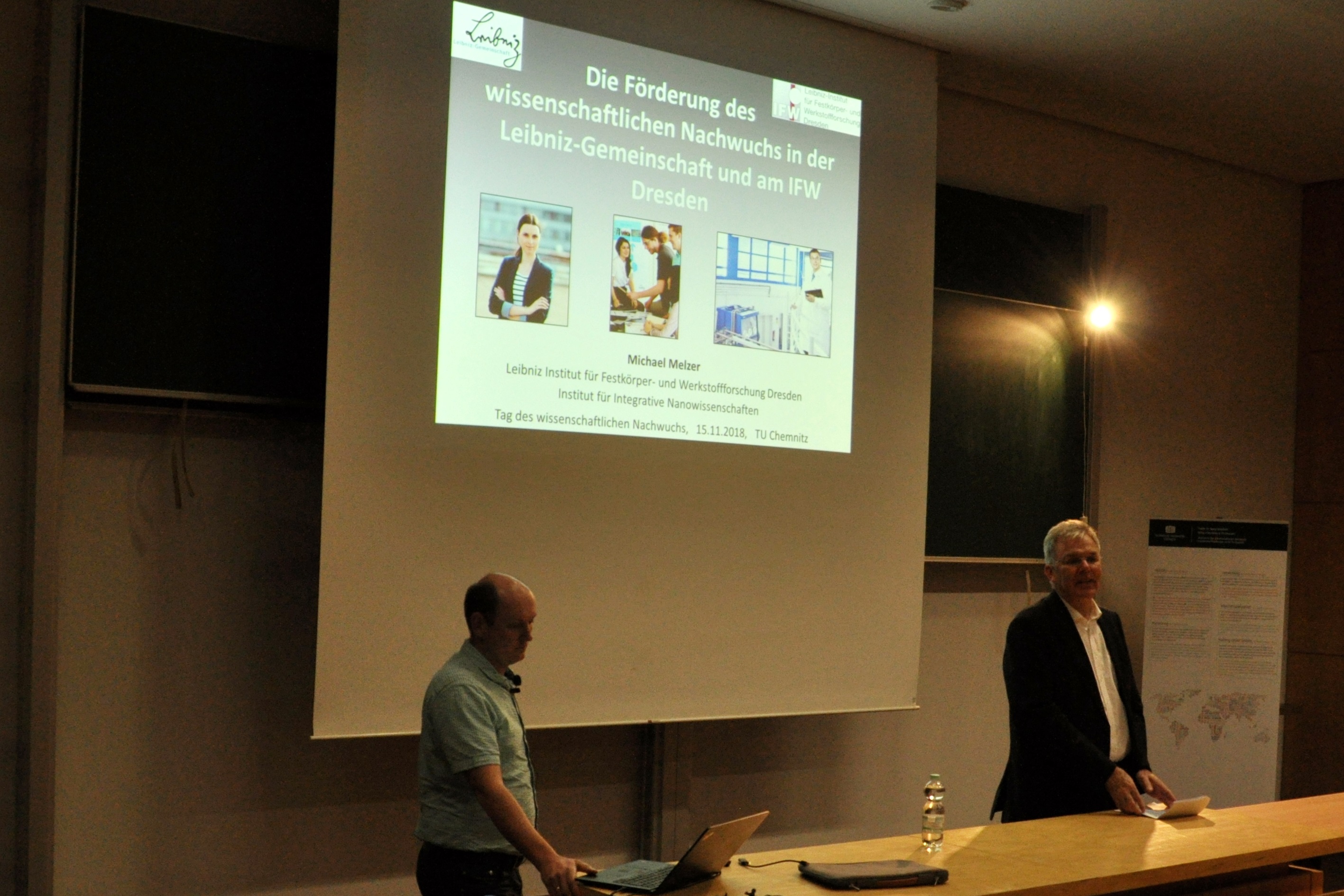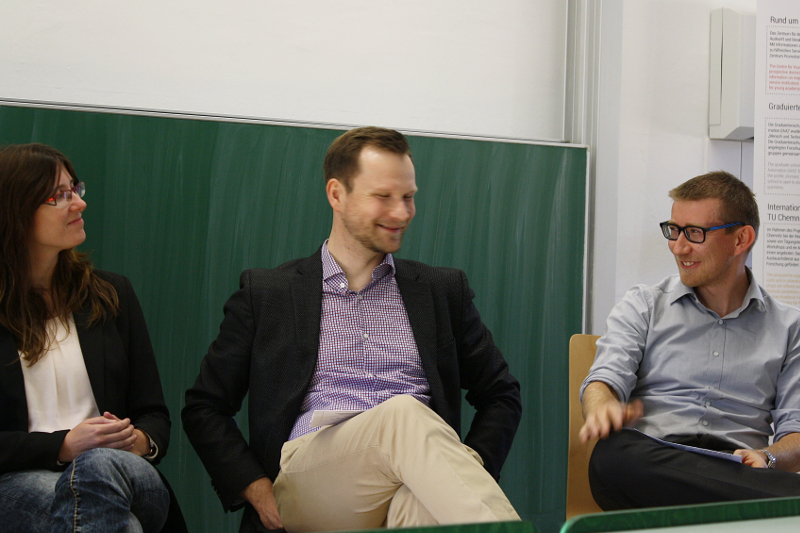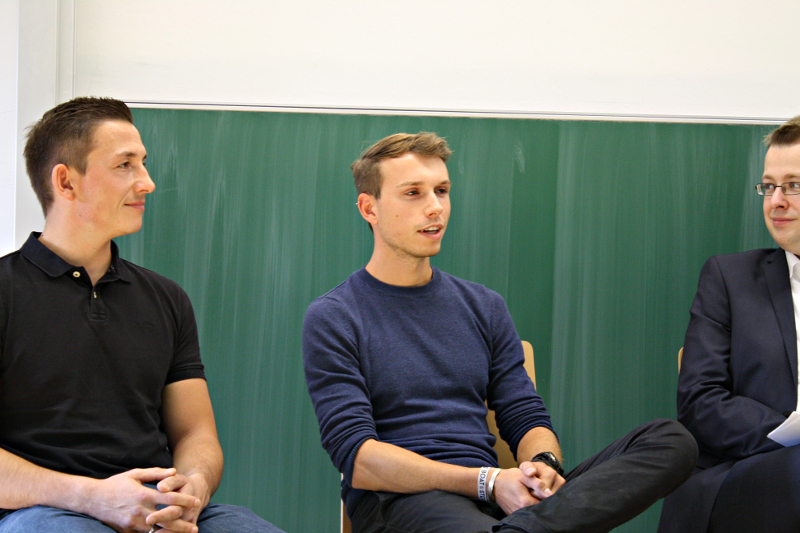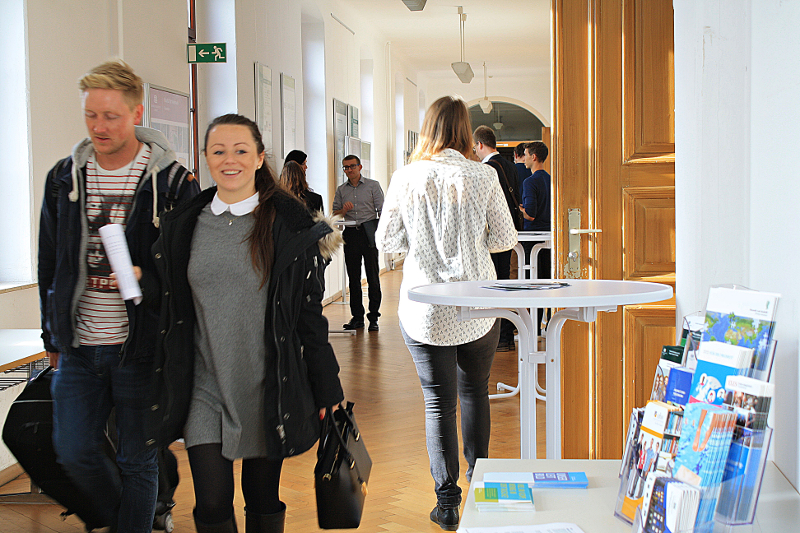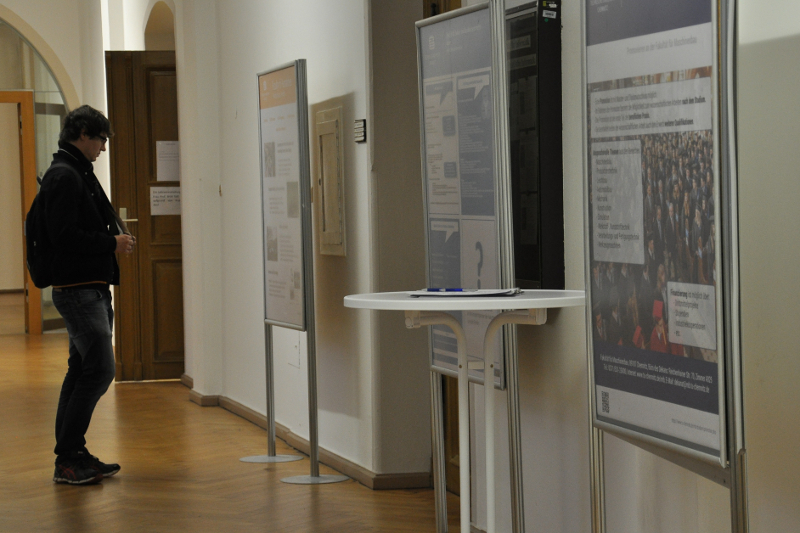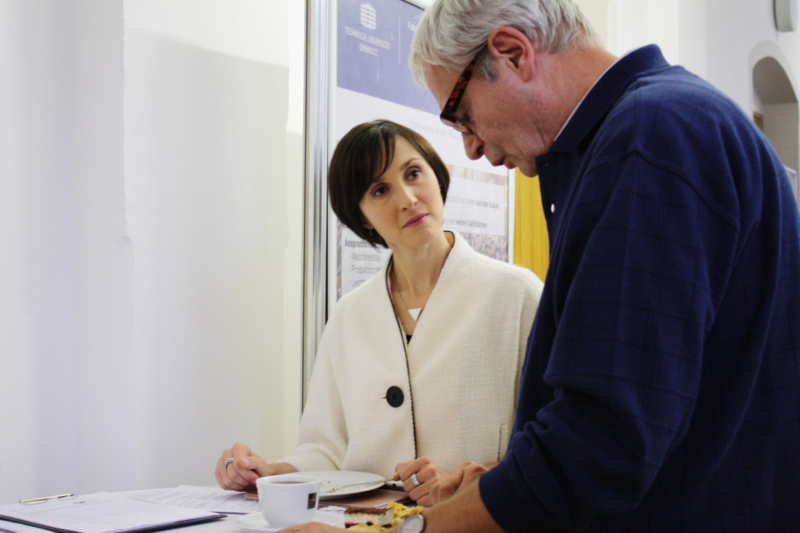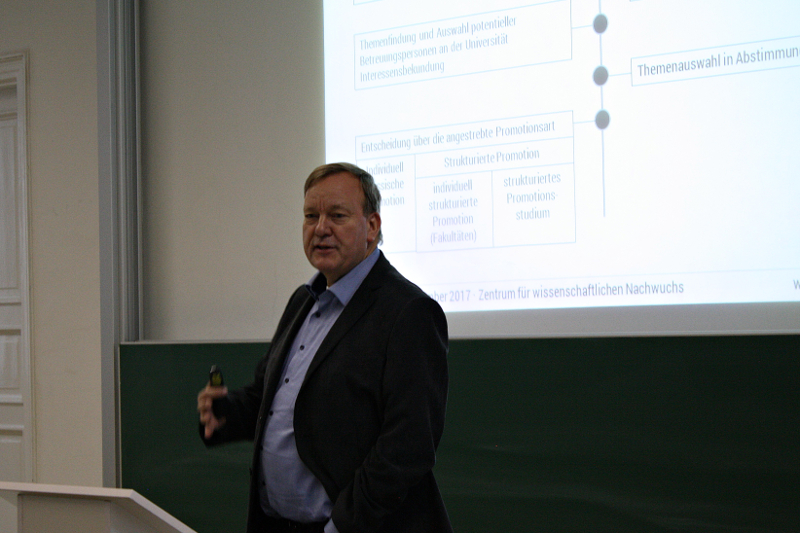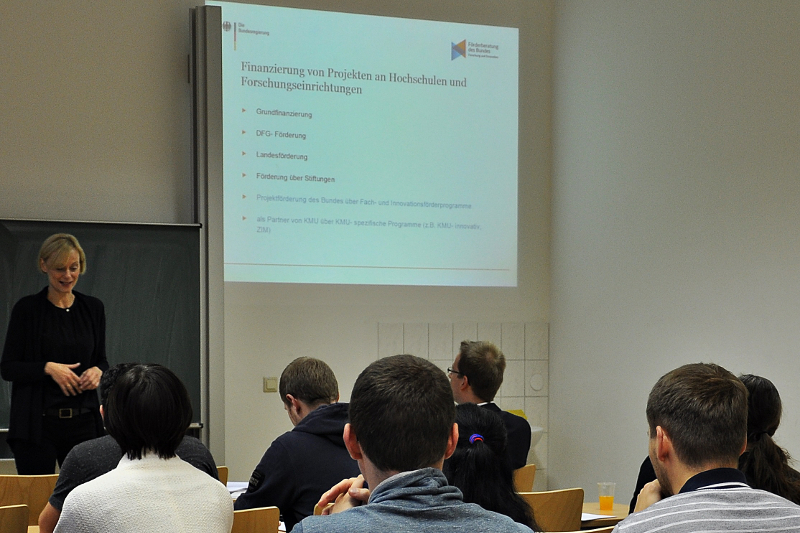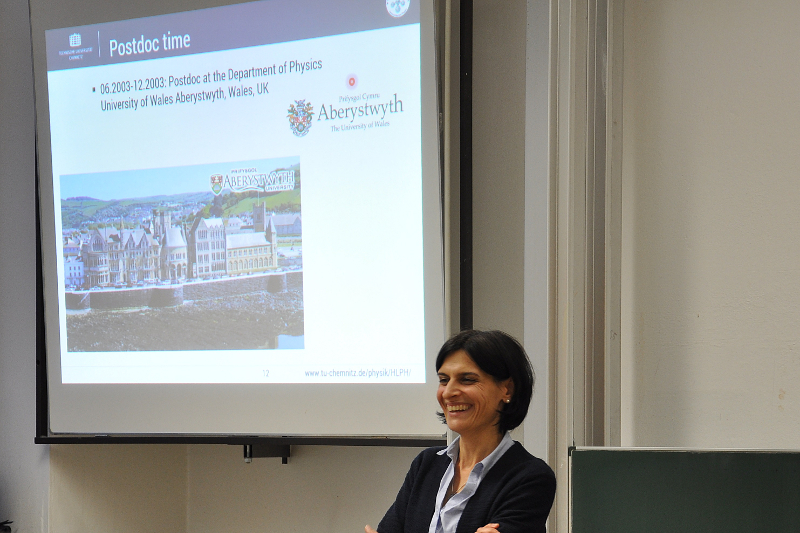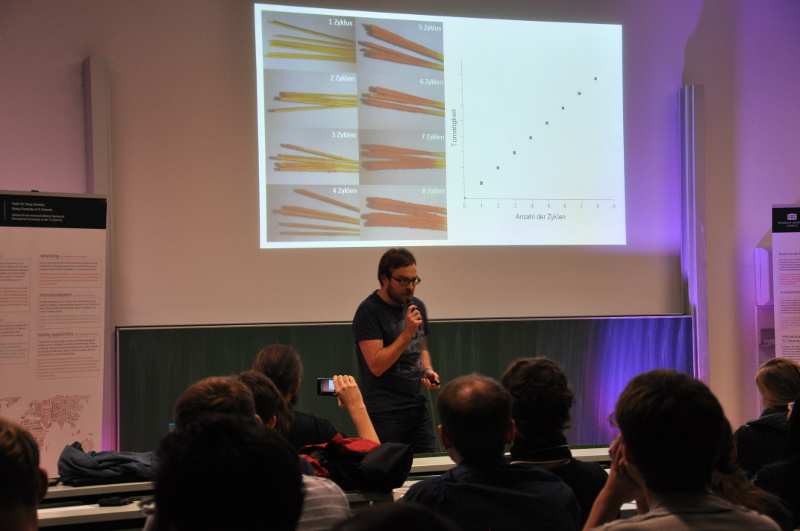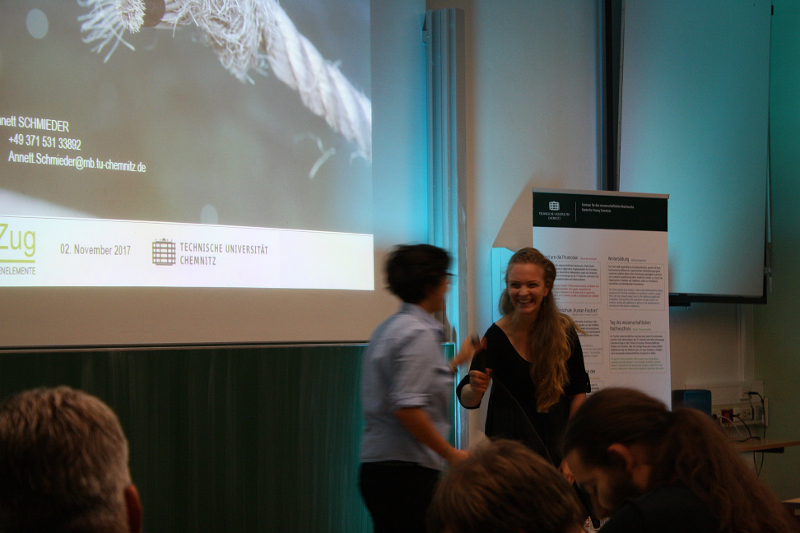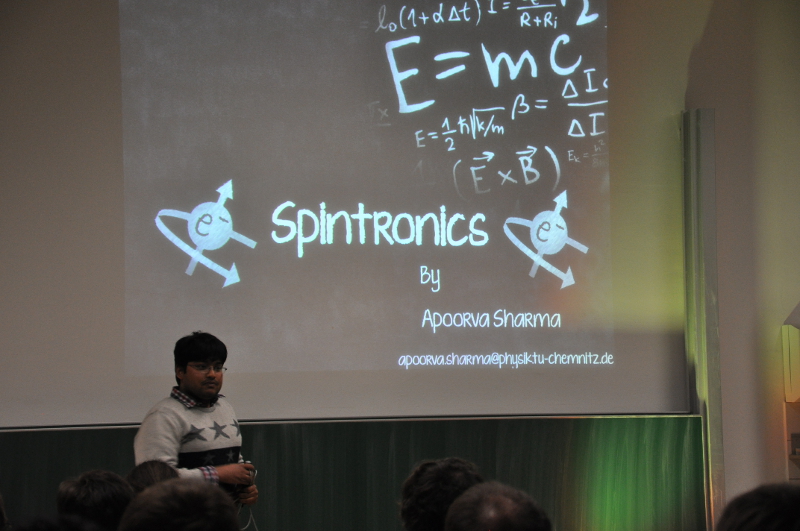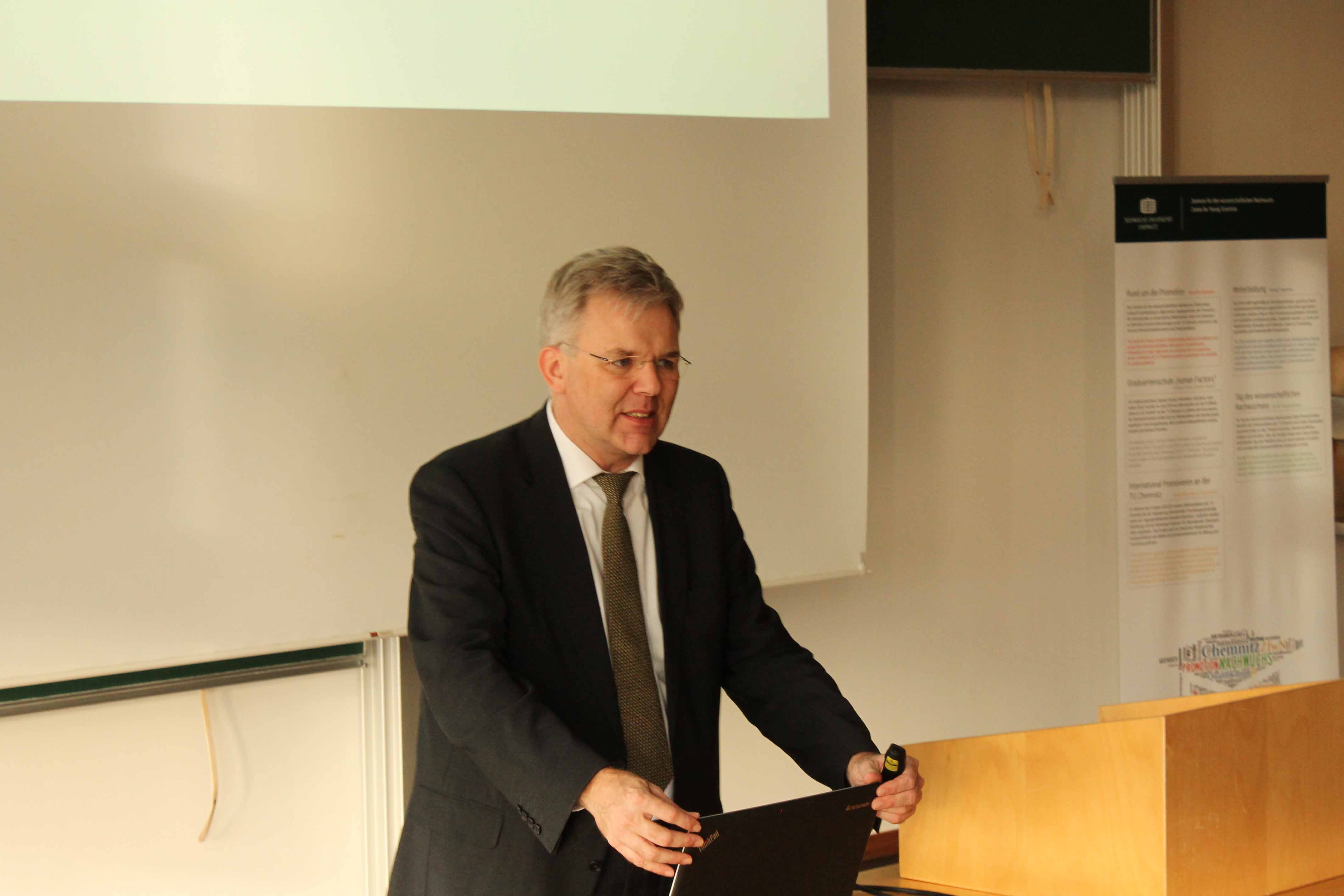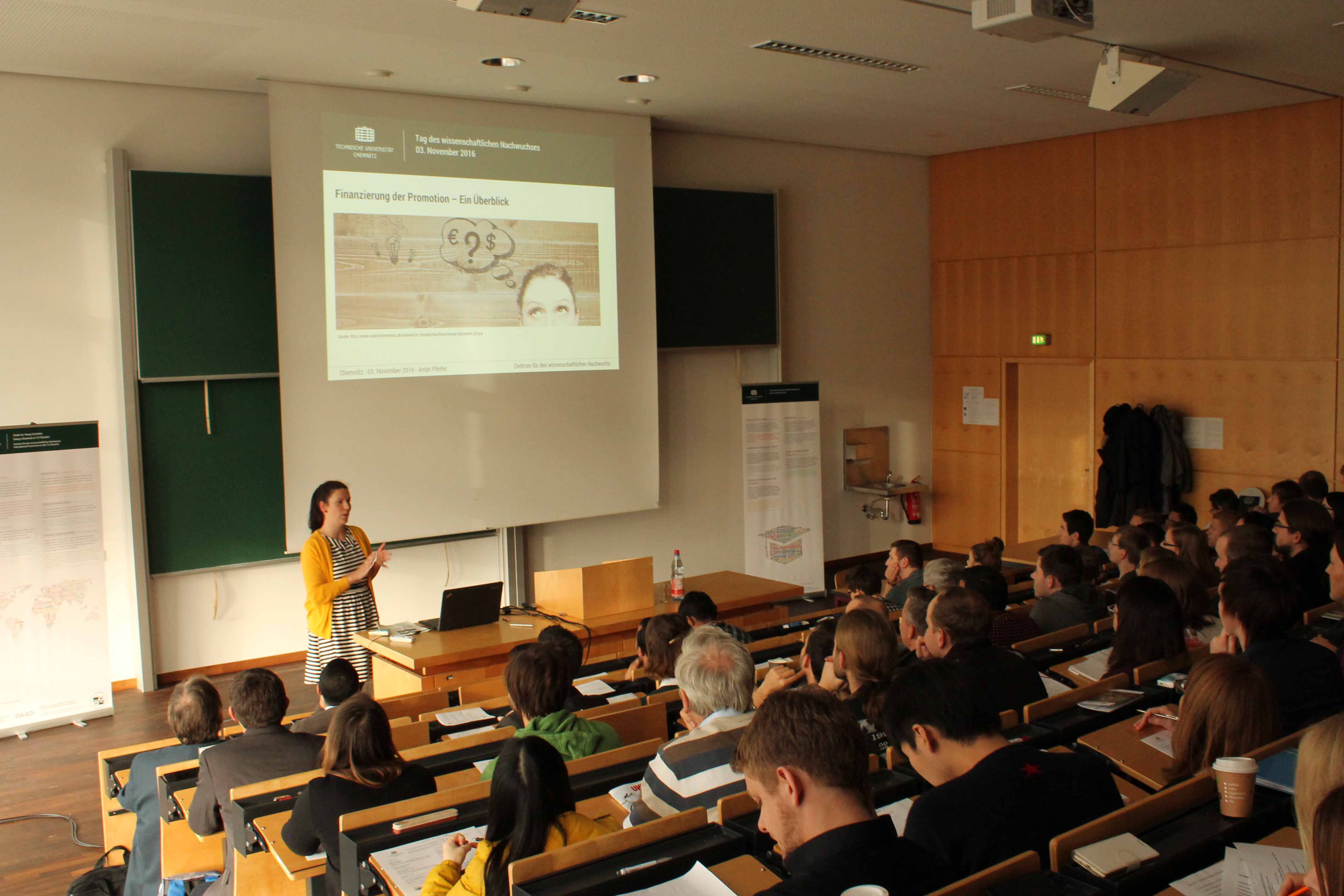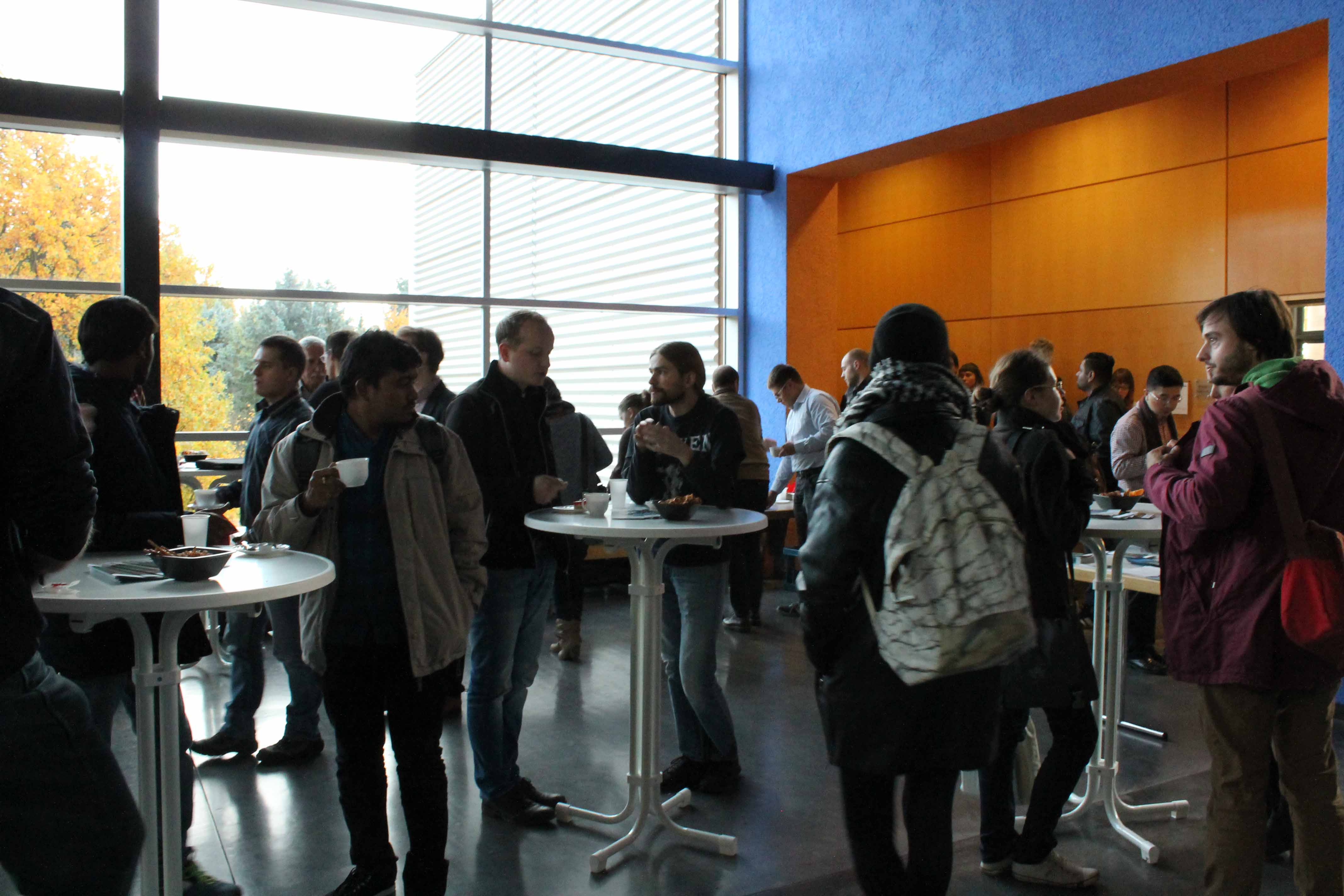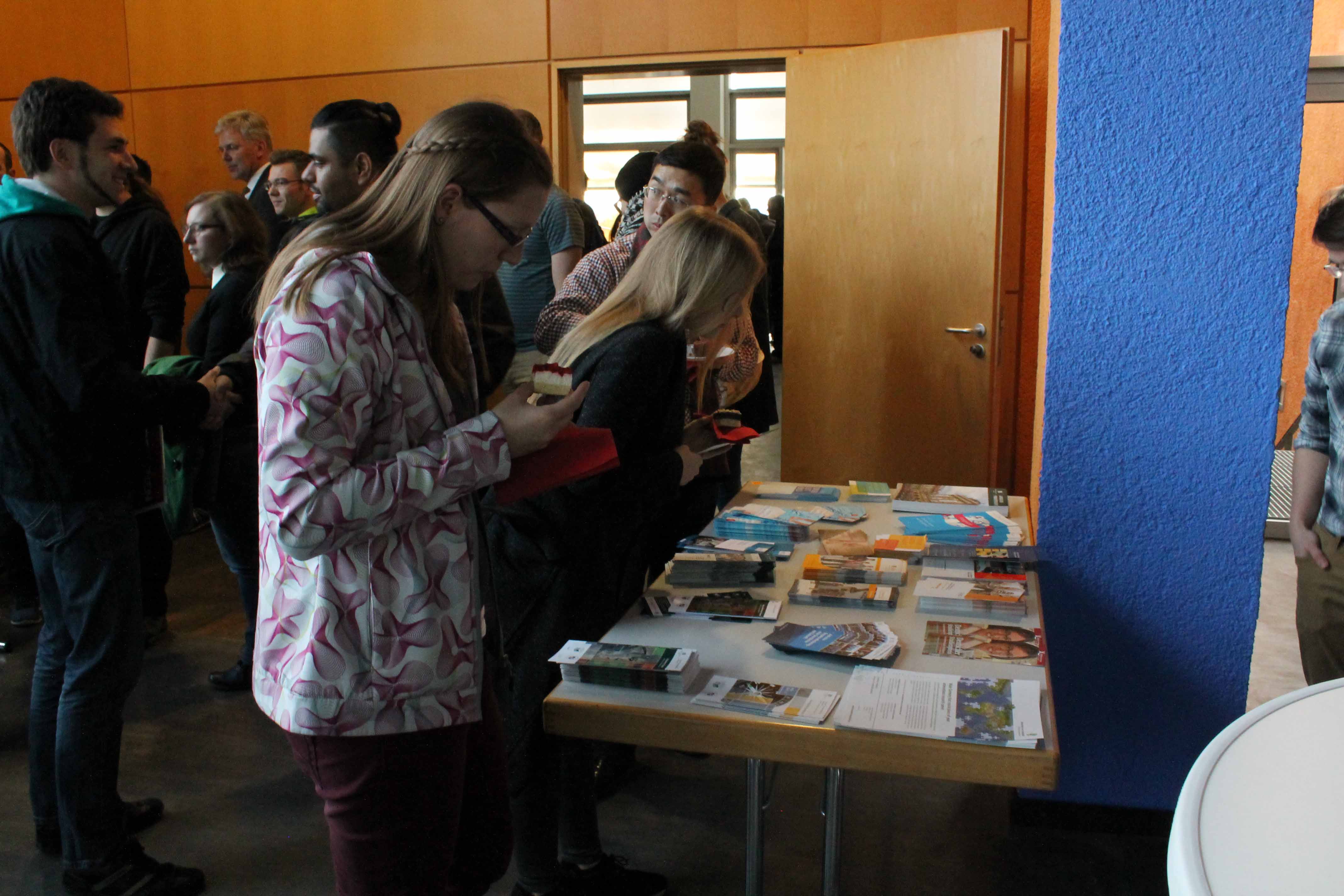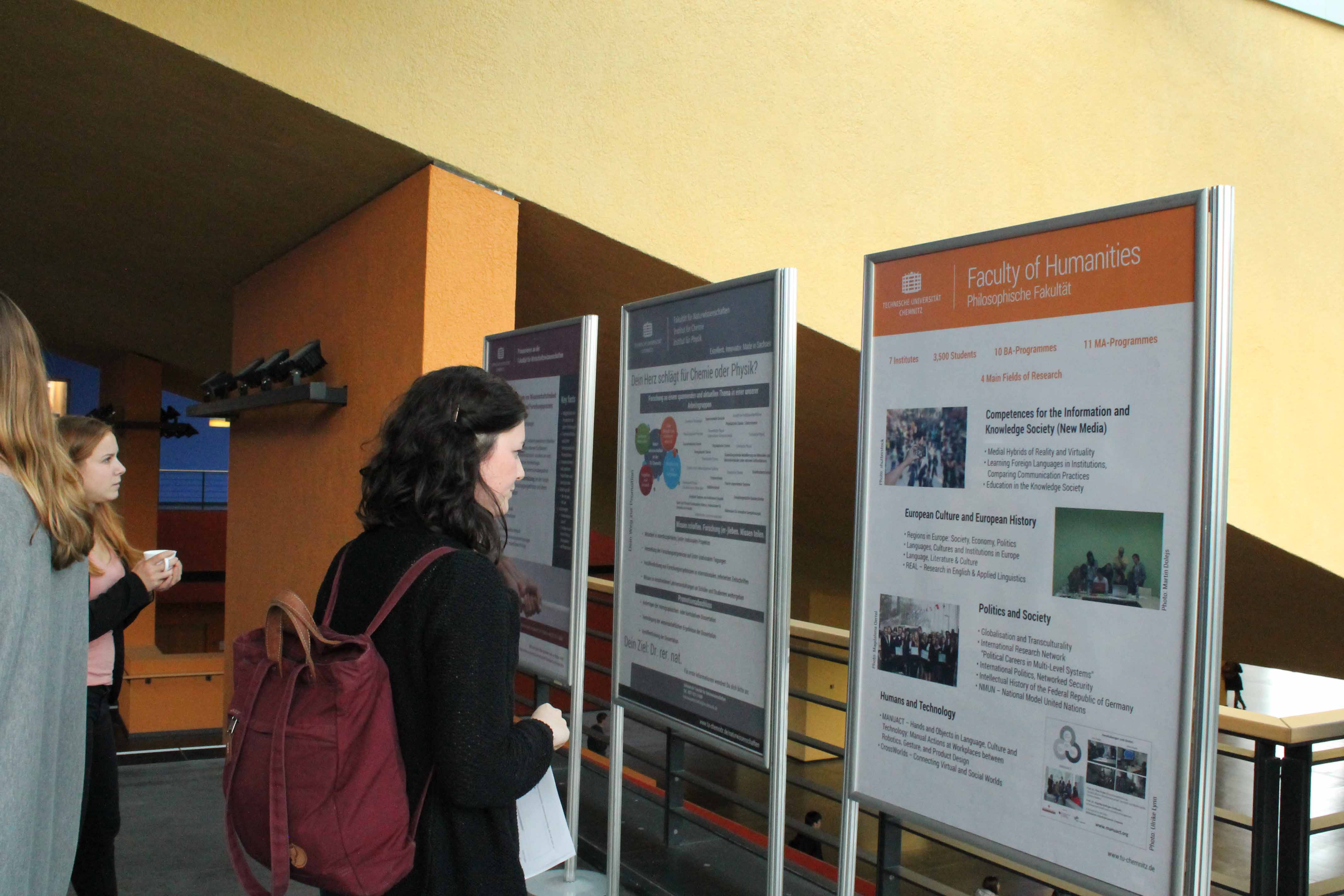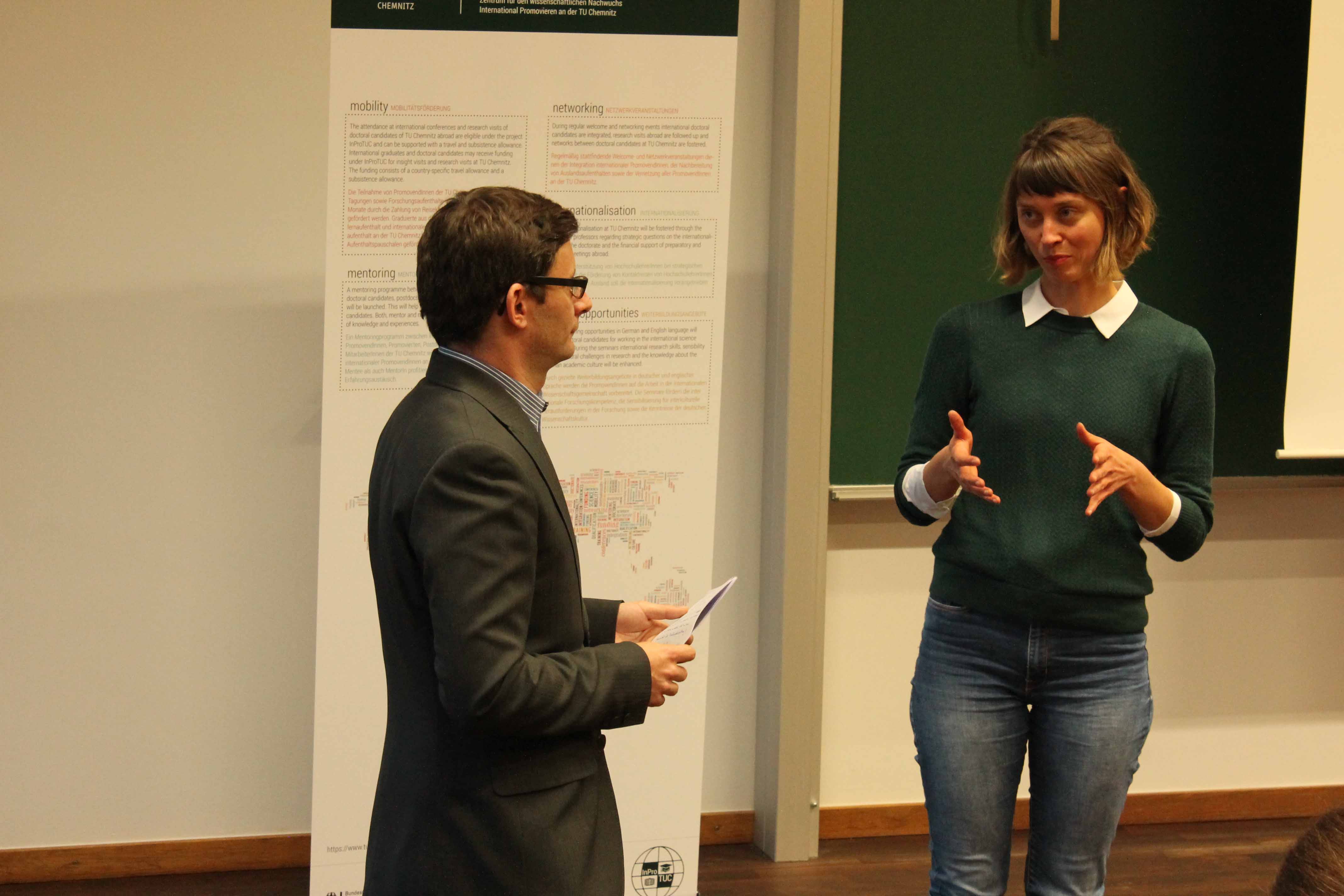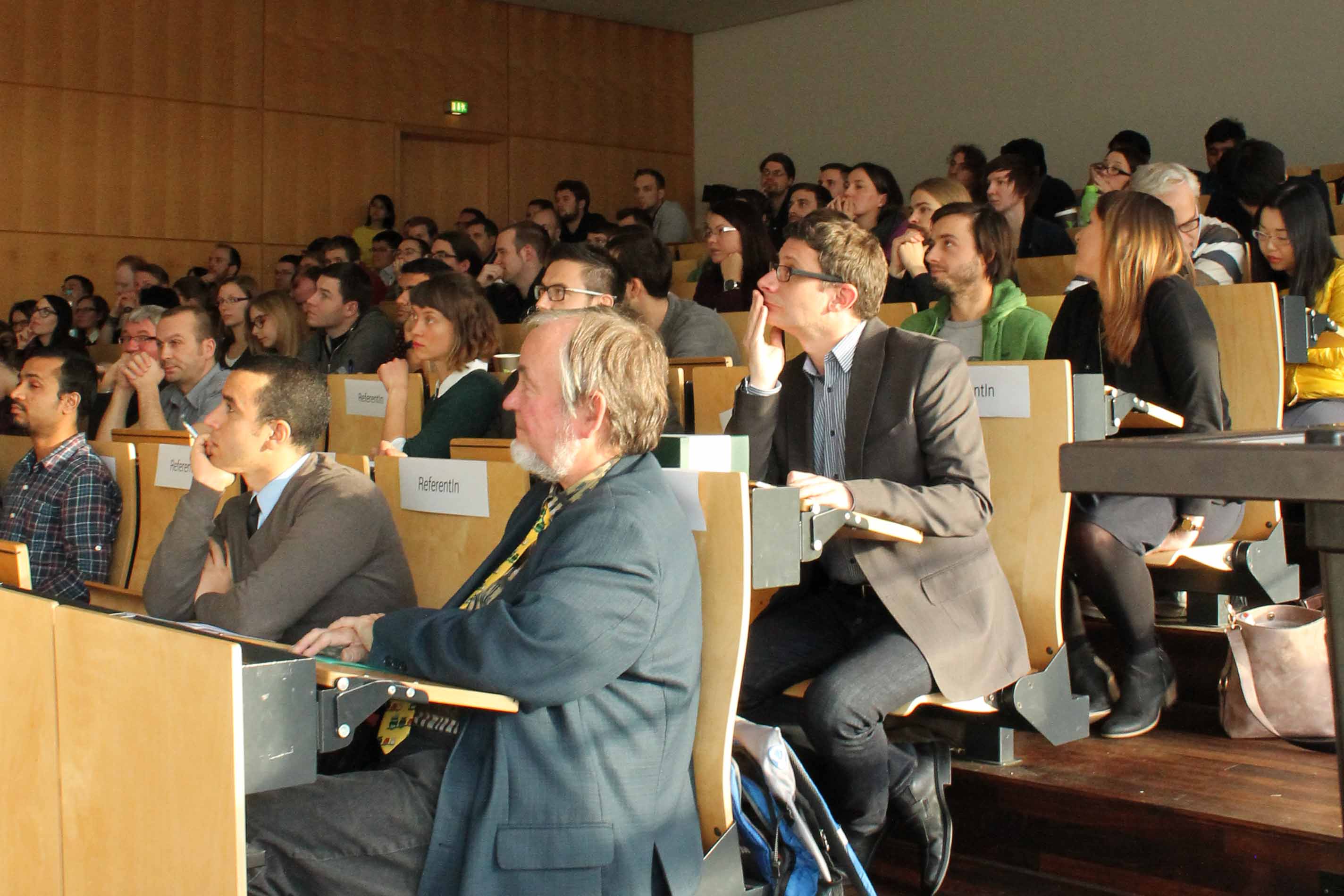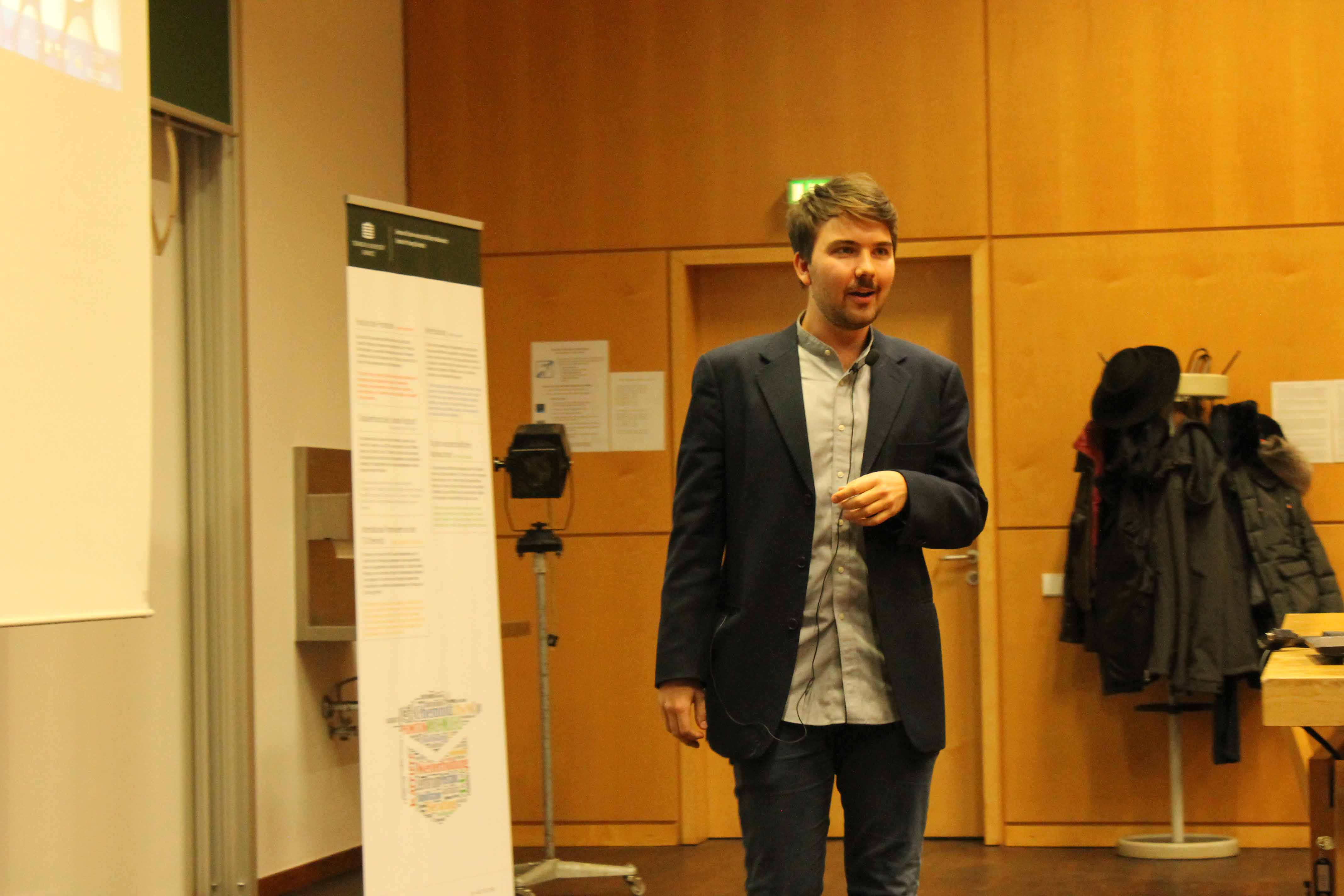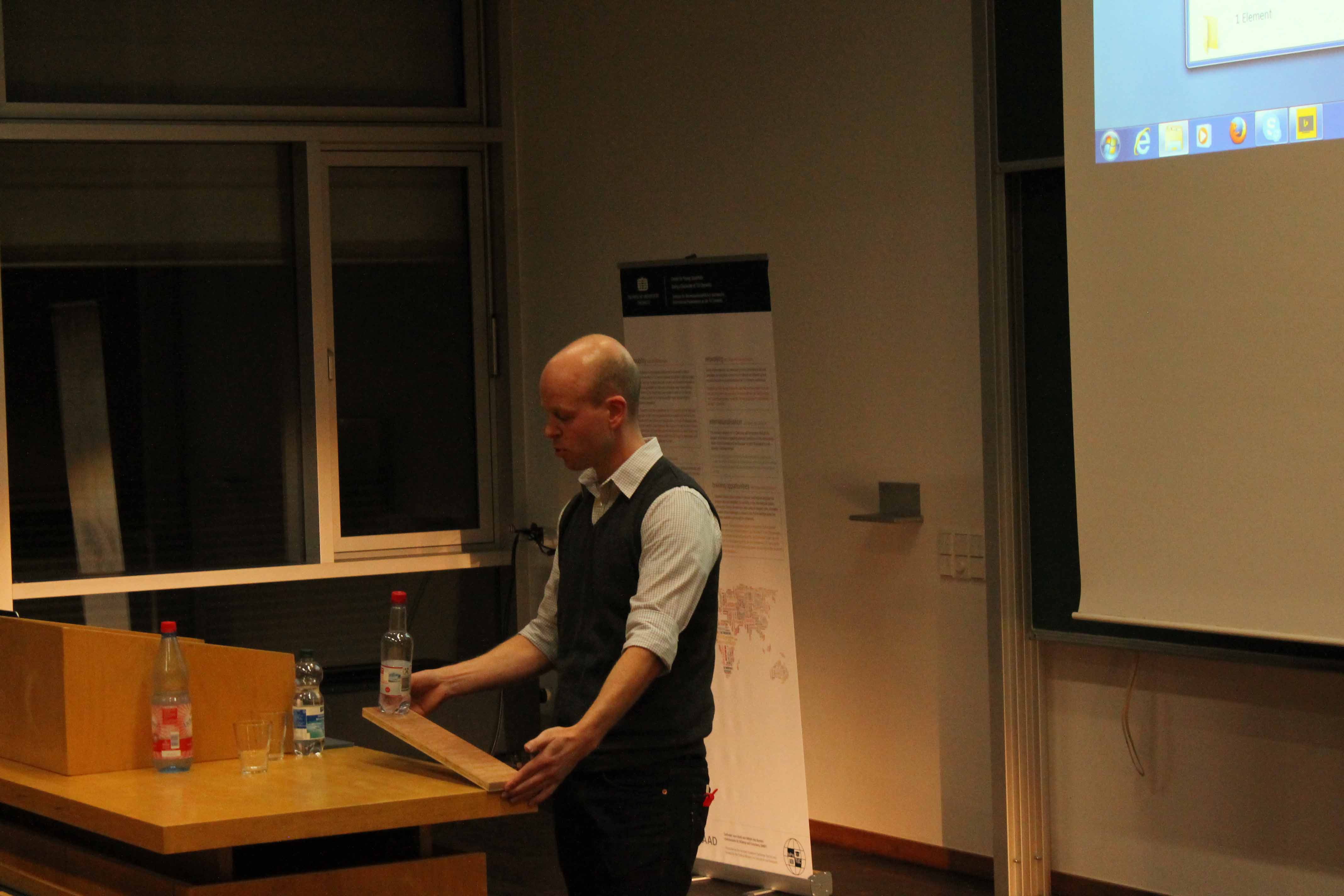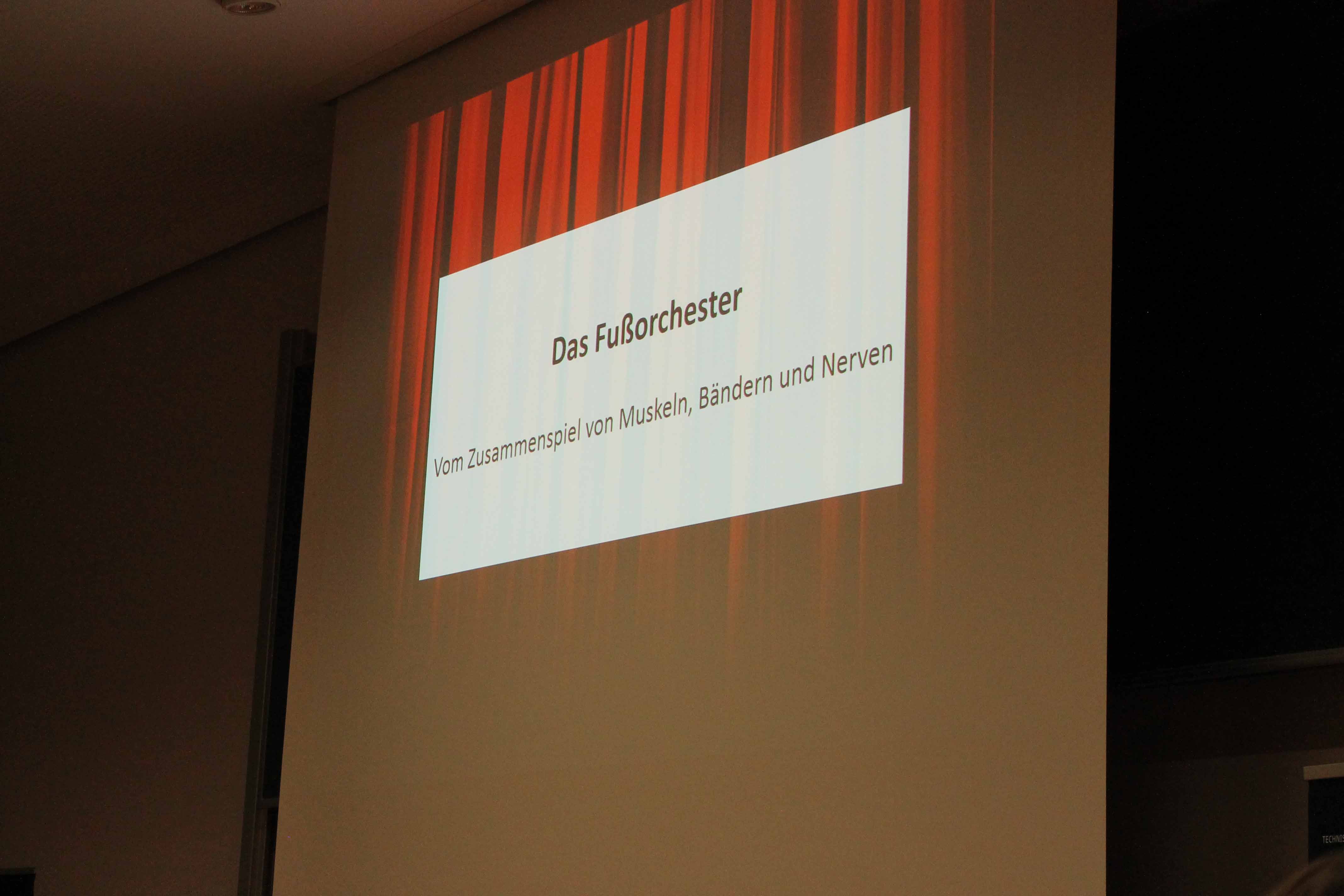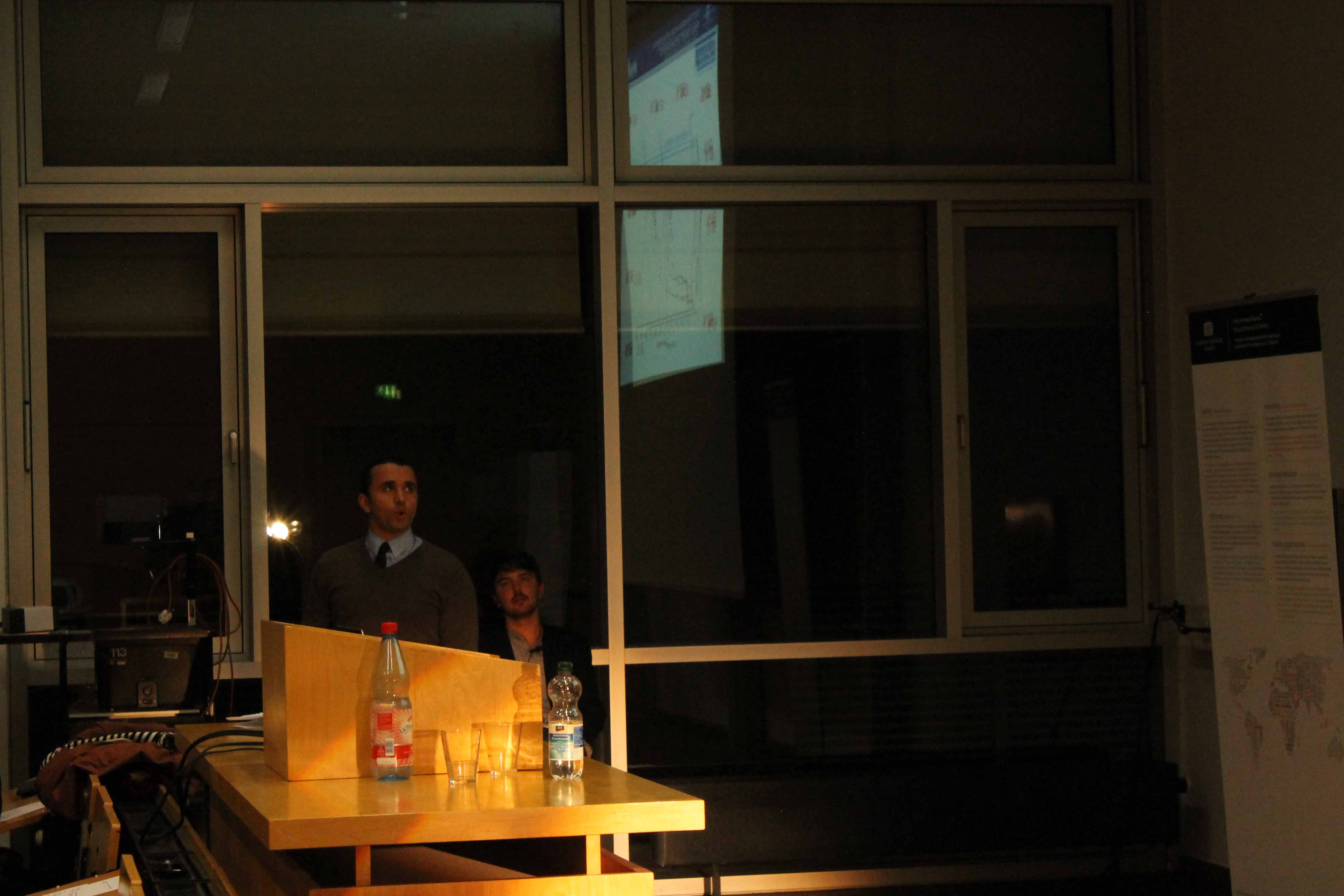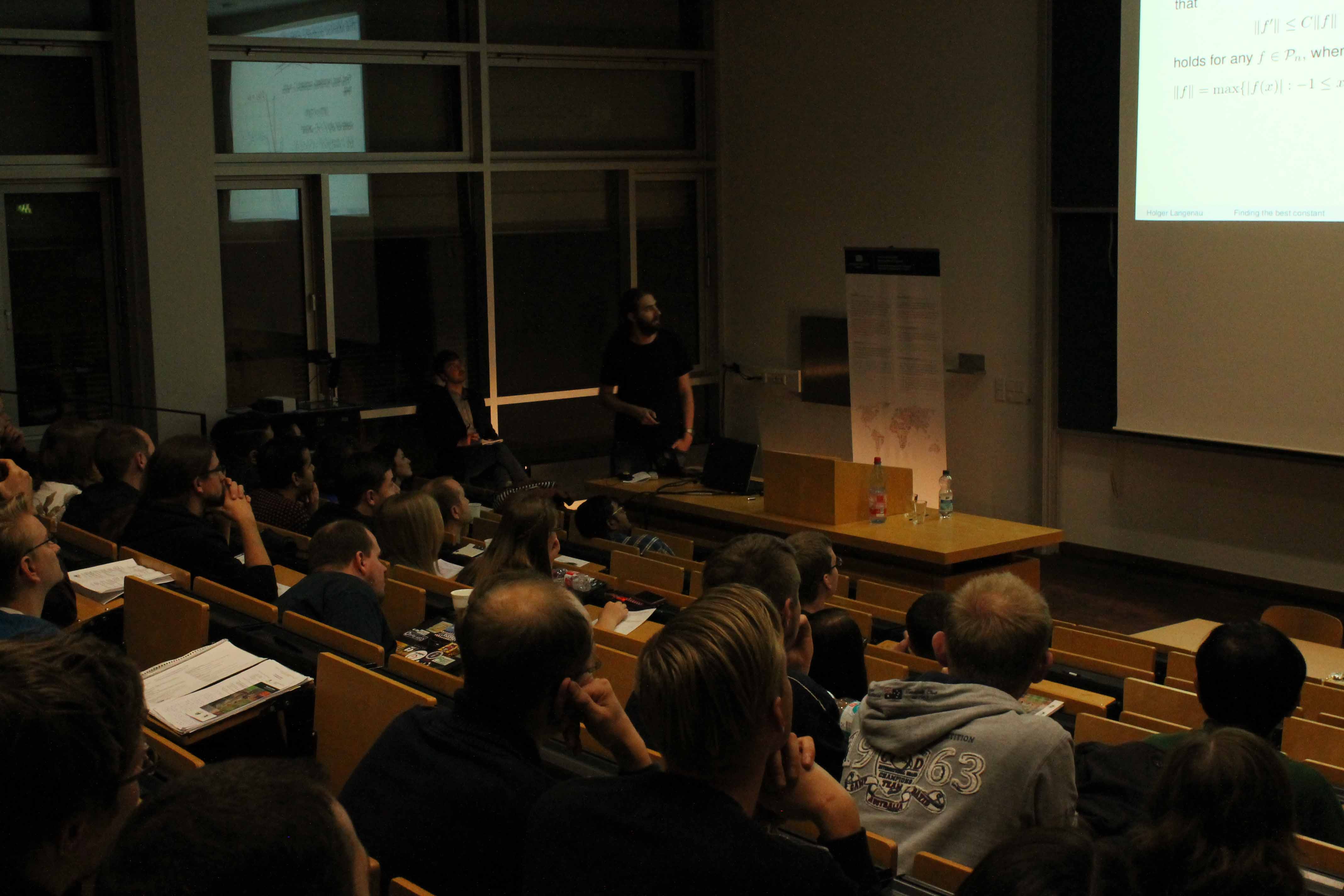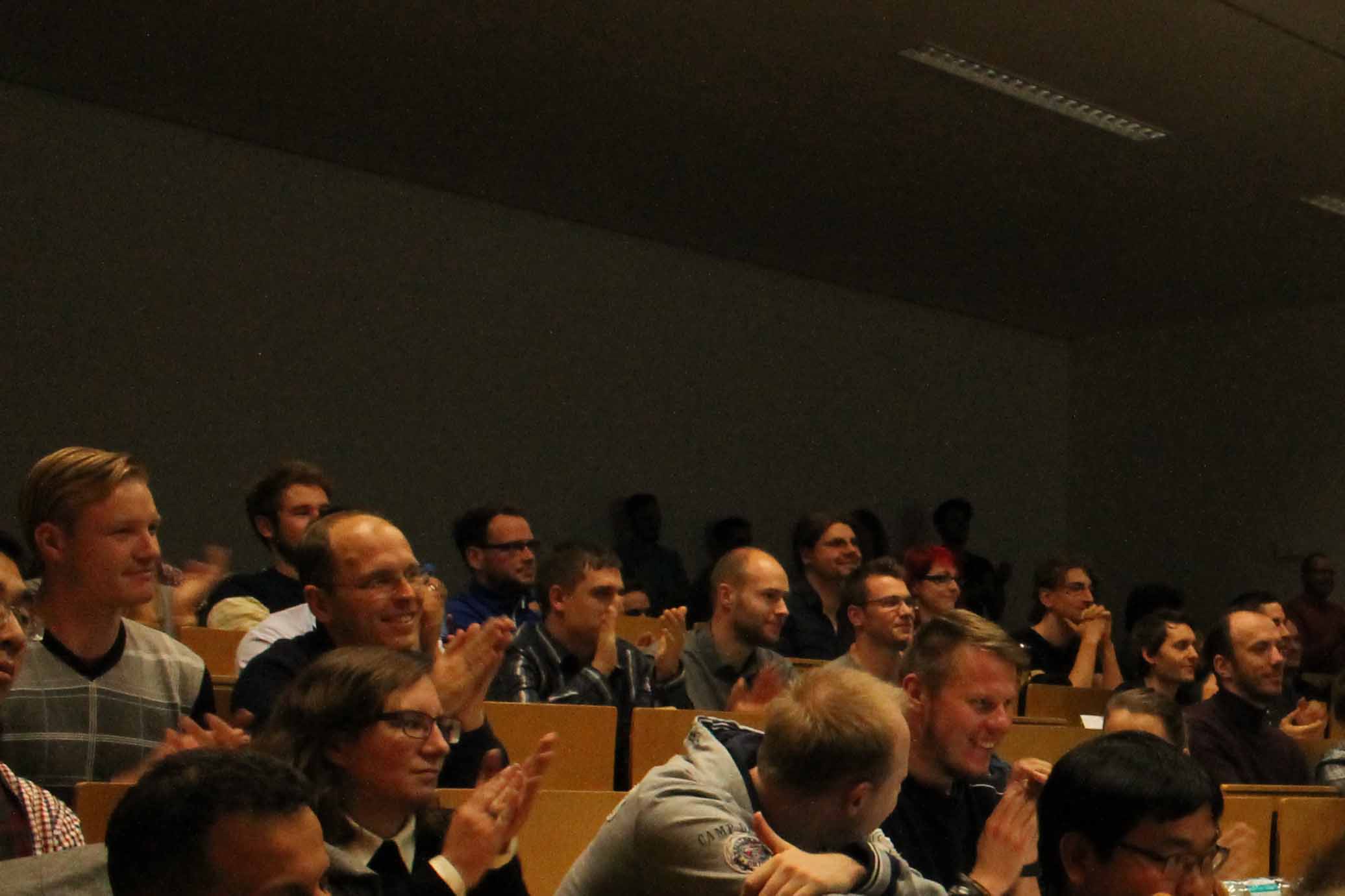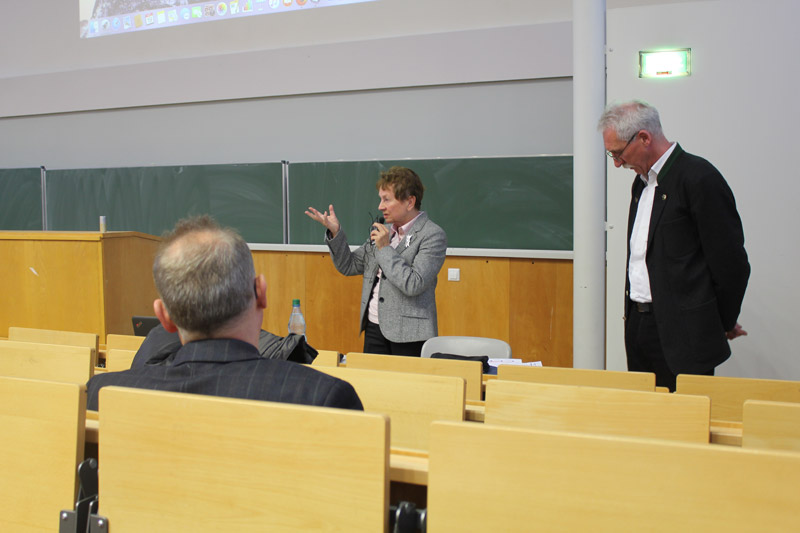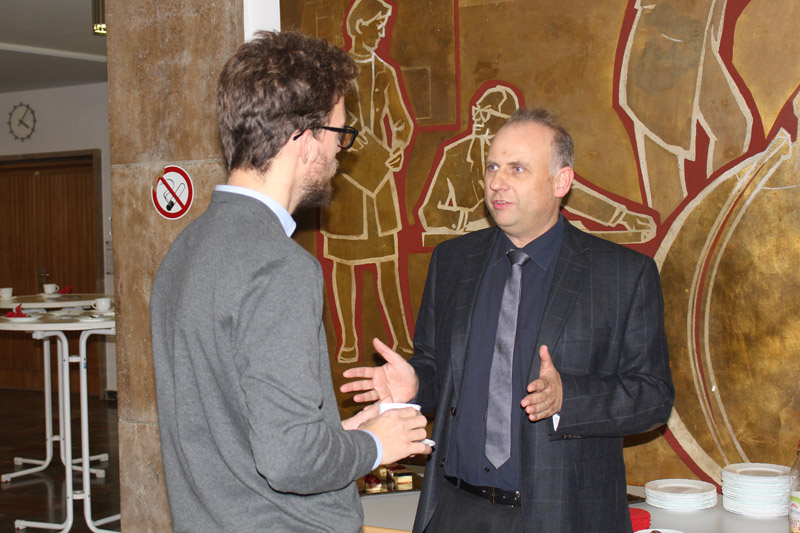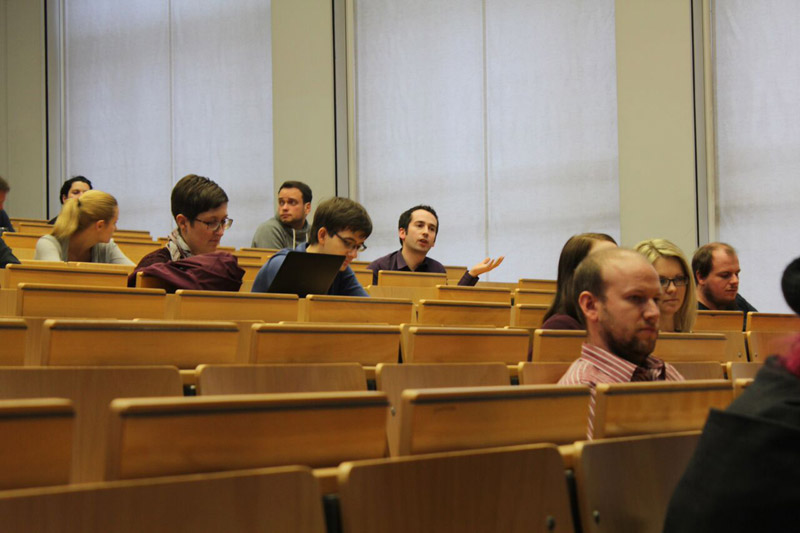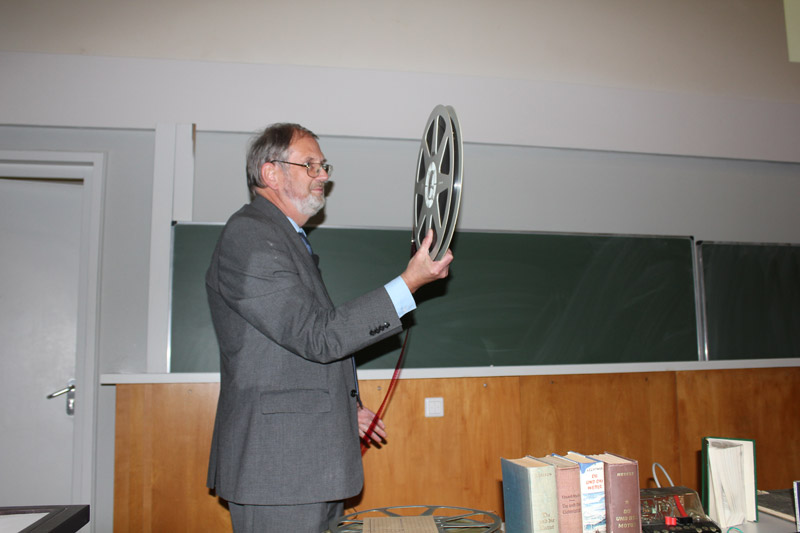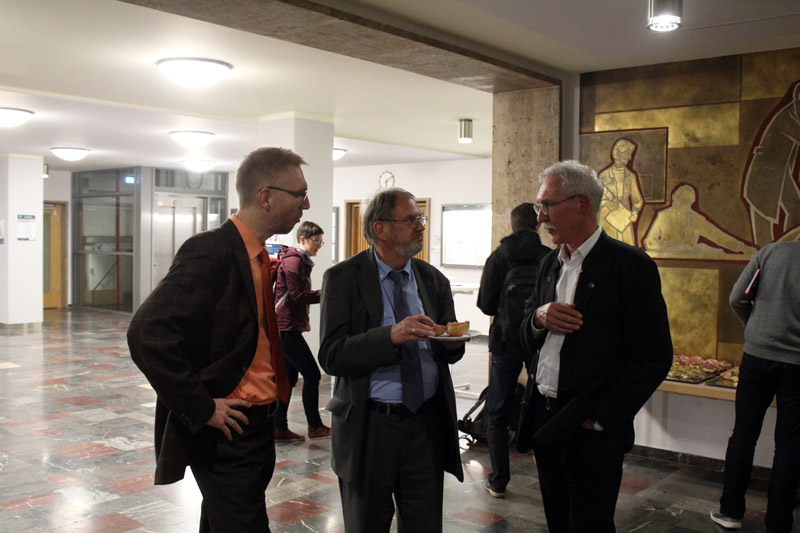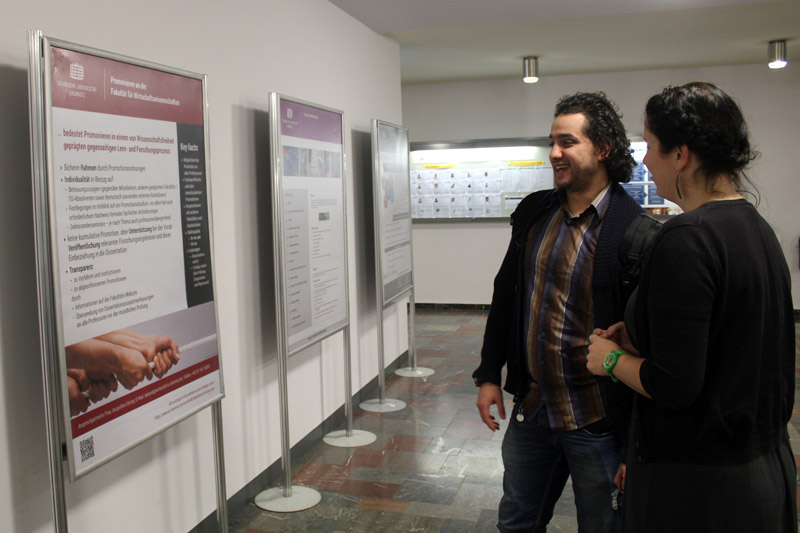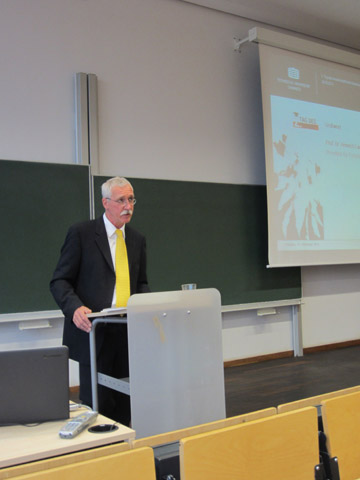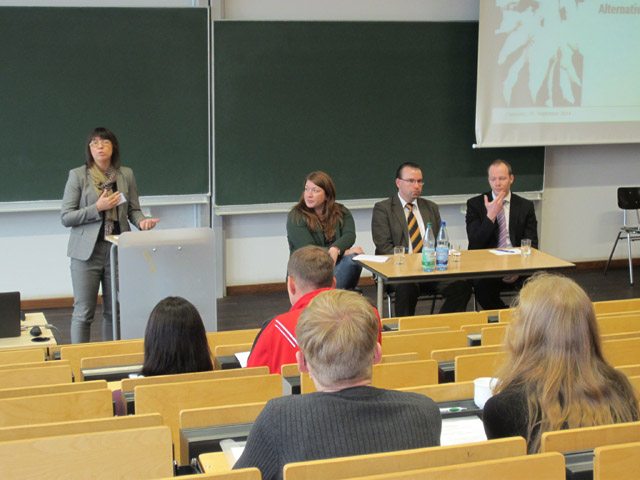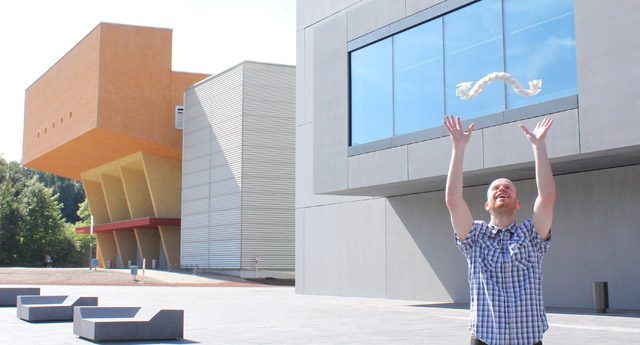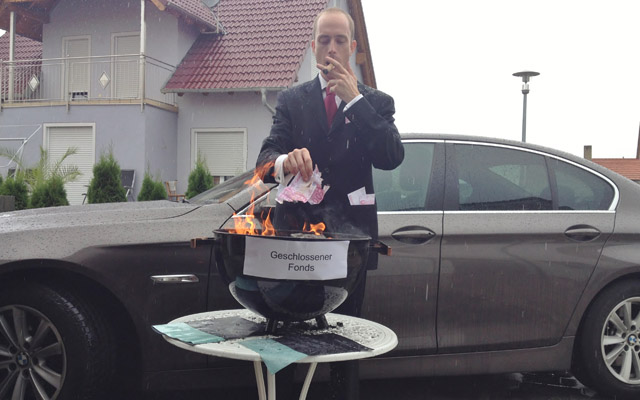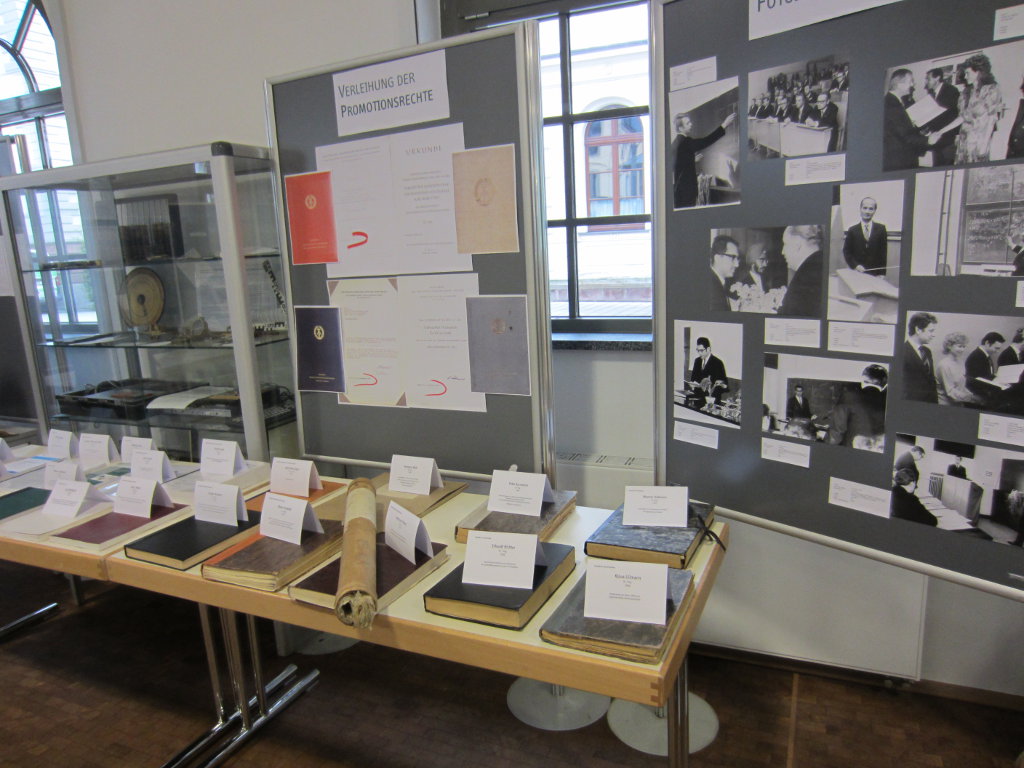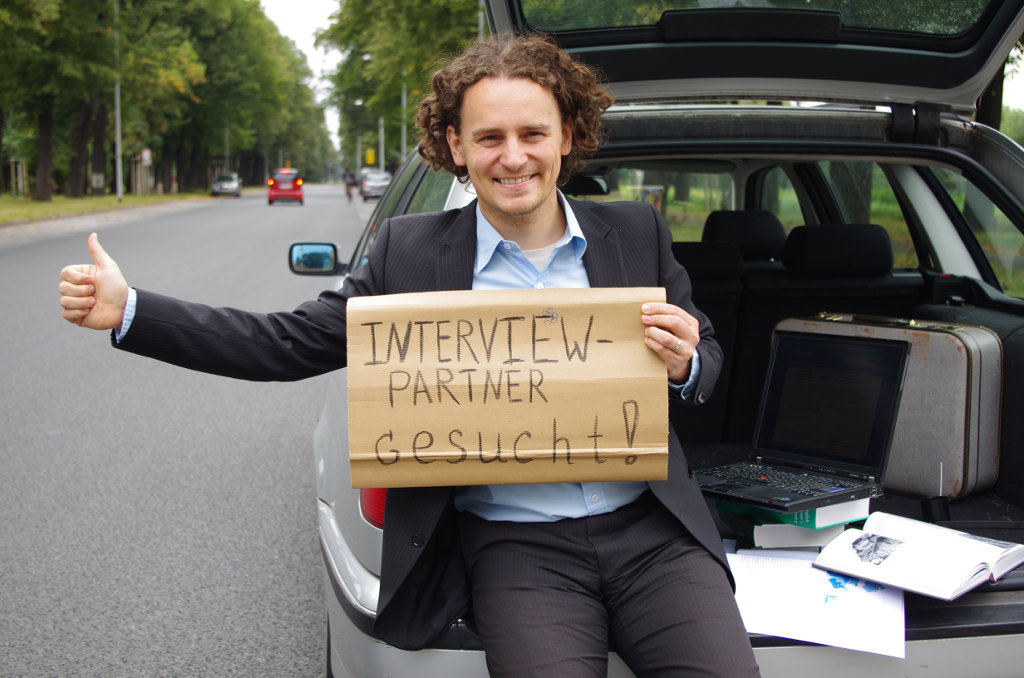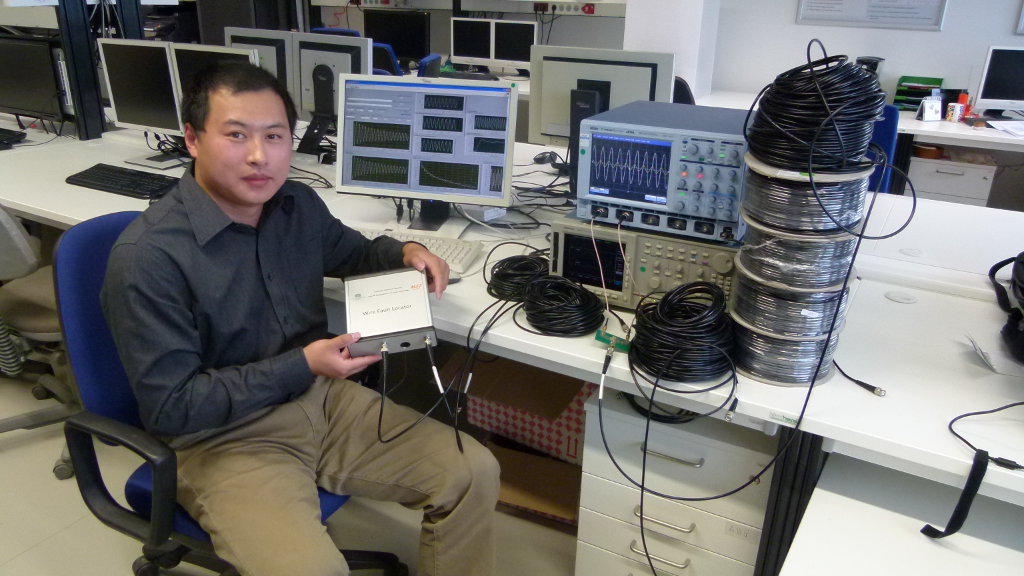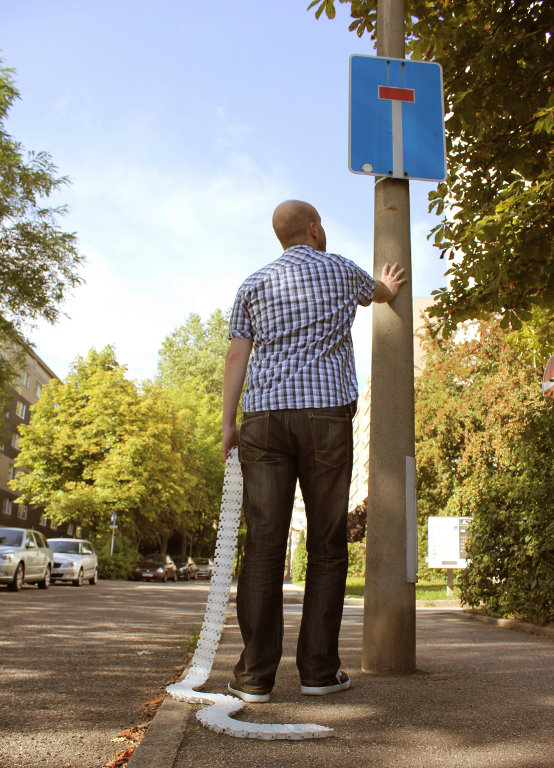The Day for Junior Scientists
Led by the Vice President for Research and University Development, Prof. Dr. Anja Strobel, the Centre for Junior Scientists organizes the annual "Day for Junior Scientists". The yearly event aims is to shape a culture and identity of early-career academics. More details are given in the reviews of previous events.
The next Day for Junior Scientists is scheduled to take place on November 28, 2024. Further information and the possibility to register can be found here.
Successfuly completing a doctorate with perseverance, frustration tolerance and initiative
On November 30, 2023, the 10th Day for Junior Scientists was organized by the Centre for Junior Scientists (ZfwN). During the program, the approximately 50 participating early and mid career researchers had the opportunity to take part in various sessions. They learned about a variety of topics related to the doctoral and postdoctoral phase, listened to testimonials and exchange ideas and networked in discussion groups. Once again this year, ambassadors from the faculties and several central institutions of Chemnitz University of Technology were on hand to engage in dialog with participants during the networking break.
Welcome and moderated disussion
After the opening of the Day for Junior Scientists by the newly appointed Director of the Centre for Junior Scientists, Prof. Dr. Anja Strobel, the Center was shortly introduced. Dr. Laura Ackermann, Commissioner of the University Management for Junior Researchers at Chemnitz University of Technology, then introduced herself and initiated the first moderated discussion. Five representatives of early and mid career researchers from different faculties shared their personal experiences of the challenges faced during the doctorate. Dr. Felix Krieglstein, Johannes Rudolph, Dr. Sabine Thomaßen, Dr. Johannes Titz and Theresa Werner provided a variety of insights into their individual doctoral phases.
The great interest in delving deeper into their own research, which goes beyond Bachelor's and Master's theses, motivated most participants to take on the challenge of a doctorate, which was also seen as a stepping stone into academia. Many also emphasized the importance of teaching as part of their positions in order to gain a different perspective on the research field. At the same time, however, it was emphasized that sufficient time should always be allowed for one's own research. Funding opportunities should therefore offer enough security to be able to concentrate sufficiently on one's own research.
According to the speakers, hurdles and turning points on the path to a doctorate are not uncommon. Some found it difficult to get started, although networking with other doctoral students in similar subject areas was found to be particularly helpful. The doctoral process is not linear and often requires adjustments, changes and adaptations. A healthy, supportive environment was emphasized as crucial during this time. Another challenge, according to the speakers, was maintaining a work-life balance. Learning to say no played a particularly important role here, and it was recommended to give yourself sufficient breaks.
After the round table section, the start-up network SAXEED and the EXIST funding program presented themselves. It was particularly emphasized that research projects and the founding of a start-up share a common vision, namely to bring about change. Scientists can be supported on the path from doctorate to start-up by the EXIST start-up grant.
Funding opportunities in the doctoral phase
In the second session, moderator Prof. Dr. Anja Strobel and the speakers Prof. Dr. Alexander Gallus, Prof. Dr. Sibylle Gemming, Marko Reuther, Dr. Robin Streiter and Prof. Dr. Guntram Wagner focused on the various funding opportunities during the doctoral phase. Prof. Dr. Gallus presented the scholarships of the “Studienstiftung des deutschen Volkes”. Prof. Dr. Gemming explained how projects can be funded by the German Research Foundation (DFG), with particular reference to the special features of a first-time application. Prof. Dr. Strobel described the advantages of a doctorate within the framework of a Research Training Group and underlined the importance of early networking at national and international level for researchers. Mr. Reuther, who is also responsible for awarding the “Deutschlandstipendium” scholarships, provided information on the possibility of re-entry scholarships, for example after pregnancy and parental leave. All speakers agreed that in most cases, a doctorate does not follow a linear path, but is extremely individual. Therefore, the decision for a suitable scholarship should also be made according to individual circumstances.
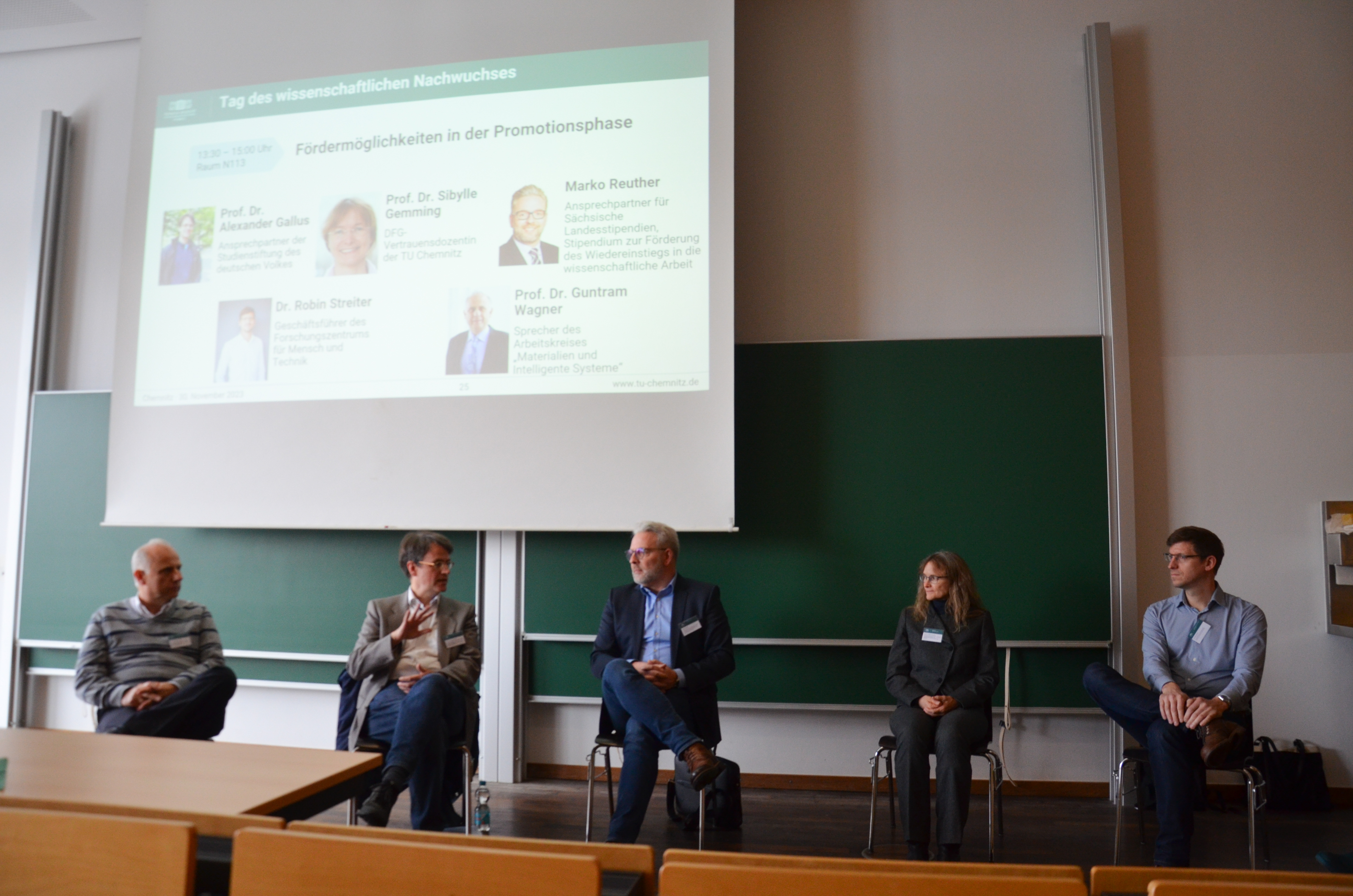
The doctoral process from different perspectives
Prof. Dr. Strobel welcomed Prof. Dr. Andreas Undisz and Dr. Isabell Winkler to the event "The doctoral process from different perspectives". Dr. Winkler built up a second mainstay parallel to her doctorate at the Faculty of Behavioural and Social Sciences by training as a psychological psychotherapist. Prof. Dr. Undisz characterized his field of research as a compromise between the natural sciences and mechanical engineering. He holds a professorship in the Faculty of Mechanical Engineering and emphasized the importance of being passionate about his research topic. Prof. Dr. Strobel added that perseverance, frustration tolerance and initiative are among the personal requirements needed for a doctorate. Prof. Dr. Undisz emphasized that it is something special to make a contribution and that the joy at the end is all the greater if you show a certain perseverance.
In addition to the challenges during the doctorate, such as balancing work and family, motivators during the doctorate were also discussed. Here, teaching events were mentioned that are part of the time as a research assistant. Conferences and congresses were also mentioned as special highlights of the year, as were the moments when one's own work is published.
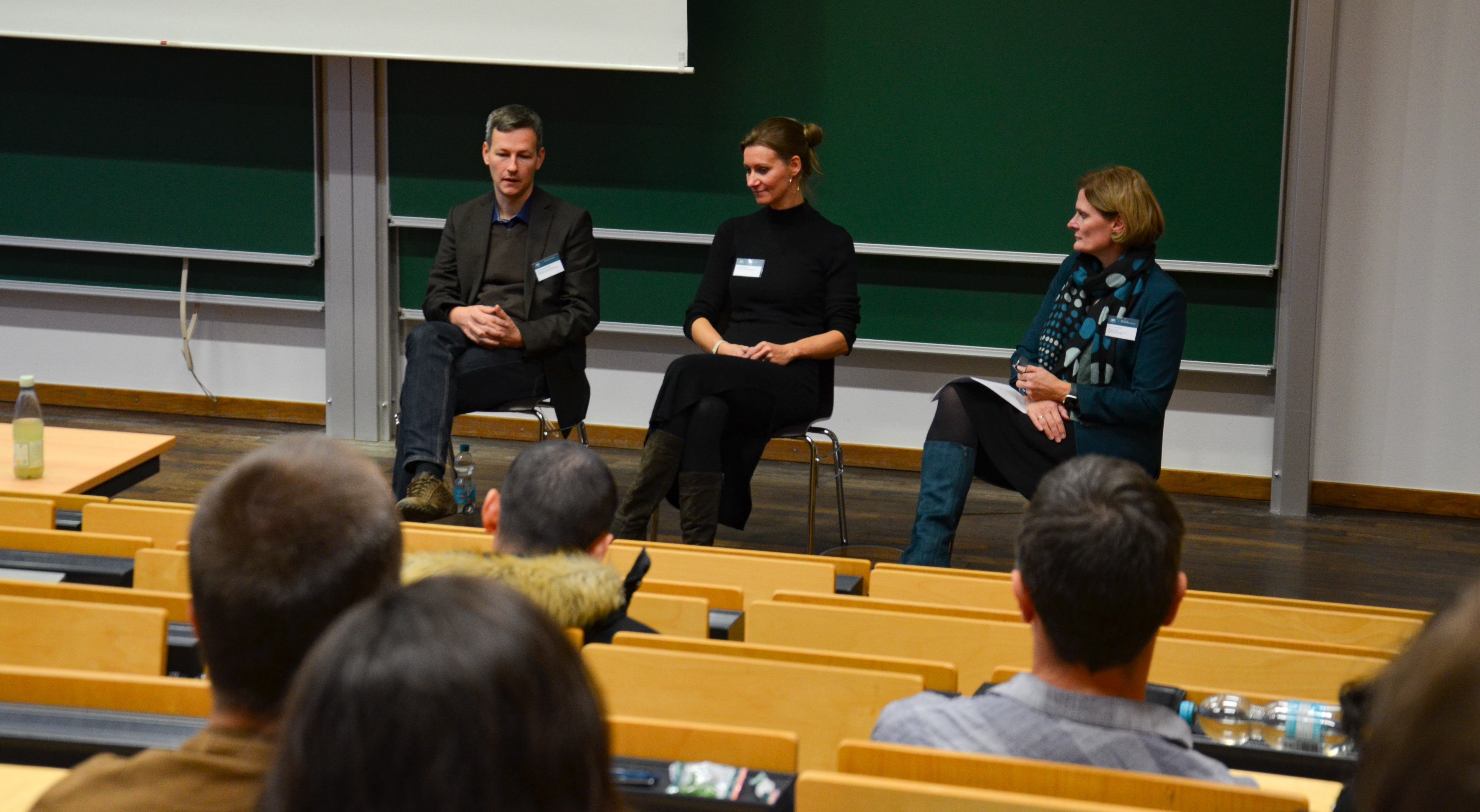
The path to a professorship
In the parallel event "The path to a professorship", which was moderated by Prof. Dr. Thomas Lampke, Prof. Dr. Matthias Wichmann and Prof. Dr. Fleurianne Bertrand provided insights into their personal paths to a professorship. Both outlined the biggest challenges and turning points in their careers, with the attitude of "keep going" being emphasized as particularly important. "You shouldn't be discouraged, even if something doesn't work out on the desired path. Failure is part of the career path," they emphasized. The relationship with their doctoral supervisors had a significant influence on their professional careers. Prof. Dr. Wichmann said that his doctoral supervisor at the time "didn't remove any obstacles from his path, but sometimes even put one down for him to practice climbing". At the same time, the doctoral supervisors paved the way and provided valuable support with networking.
The importance of stays abroad and how much you can benefit from them was particularly emphasized and highlighted. During the discussion, valuable tips were also shared on how to present oneself in the best possible way in an appointment committee. Intensive preparation was highlighted as particularly important, as was communicating on an equal footing in order to face the members of the committee as equal colleagues.

The Day for Junior Scientists offered a comprehensive range of information, be it on doctorates, funding opportunities, the path to a professorship or founding a start-up. We would like to thank all the speakers and helpers for their time and commitment, which contributed to the successful organization of the event. A big thank you also goes to the sponsors of Berliner Nanotest und Design GmbH and the start-up network SAXEED, whose kind support made it possible to provide refreshments during the networking break.
„When someone comes with a problem that affects science, it is heart-warming…”
On November 24, 2022, the Centre for Young Scientists (ZfwN) organized the 9th Day for Young Scientists. After two years, in which the pandemic played a major role, it was possible to hold that event on-site so that networking and interdisciplinary exchange were focused on. About 50 young scientists gathered information on the offered topics, listened to experience reports and participated in open discussions. At the same time, ambassadors of the faculties, the University Library, the Centre for Equal Opportunities in Science and Research, the start-up network SAXEED, the FDTech GmbH and the msg systems ag were there to facilitate exchange with the faculties as well as with both economy and industry. The programme of the event was led by Prof. Dr. Jörn Ihlemann, Vice President for Research and Junior Researchers at the TU Chemnitz and Director of the ZfwN, as well as Dr. Nadia Lois, Assistant (specialized in Junior Researchers and Tenure-Track-Procedure) in the President´s Office and Managing Director of the Centre for Young Scientists.
After the participants were welcomed by Prof. Dr. Jörn Ihlemann, the ZfwN and its substantial range were presented. The interdisciplinary counseling and continuing education offerings include, for example, skills development with the help of workshops, networking offers such as the hiking day, as well as advice and support in the process of earning a doctorate.
This was followed by a moderated discussion in which Dr. Laura Ackermann (Faculty of Behavioural and Social Sciences), Dr. Margarete Thiessen (Faculty of Humanities), Dr. David Müller (Faculty of Mathematics), Dr. Markus Tümpel (Faculty of Economics and Business Administration) and Dr. Robert Wonneberger (Faculty of Mechanical Engineering) exchanged personal experiences gathered during the doctoral period. The young researchers were able to pass on personal insights into the doctoral phase. At the same time, different experiences were examined in more detail. "I thought it was great that I was encouraged during my studies to take a look at the industry," said Dr. Robert Wonneberger, describing the intertwining of industry and research. The speakers also stressed that it is important to keep in touch with the doctoral mother or the doctoral supervisor in order to have the opportunity, for example, to make adjustments in the event of problems with the doctoral thesis. "And when someone comes with a problem that affects science, it’s heart-warming for them because doctoral supervisors are also busy with administration," said Dr. Robert Wonneberger. The doctorates also focused on funding and the duration of the PhD. For instance, funding for the doctorate was secured through third-party funding, scholarships and academic staff positions at the university. Regarding the duration of the PhD, several differences were noted and it is clear that this phase is very individual. Networking is seen as particularly relevant. “You have to be realistic and you shouldn’t dive into illusions. It is about growing up scientifically and build your own network”, said Dr. David Müller. All participants of the discussion described doing the doctorate as a very positive time of their lives, where they got to know a lot of people which led to personal progress at the same time. However, after completing the doctoral thesis there was a breath of relief in the air. “There is no one who says: What a pity defence is over, actually I would like to do it again”, Dr. Laura Ackermann said.
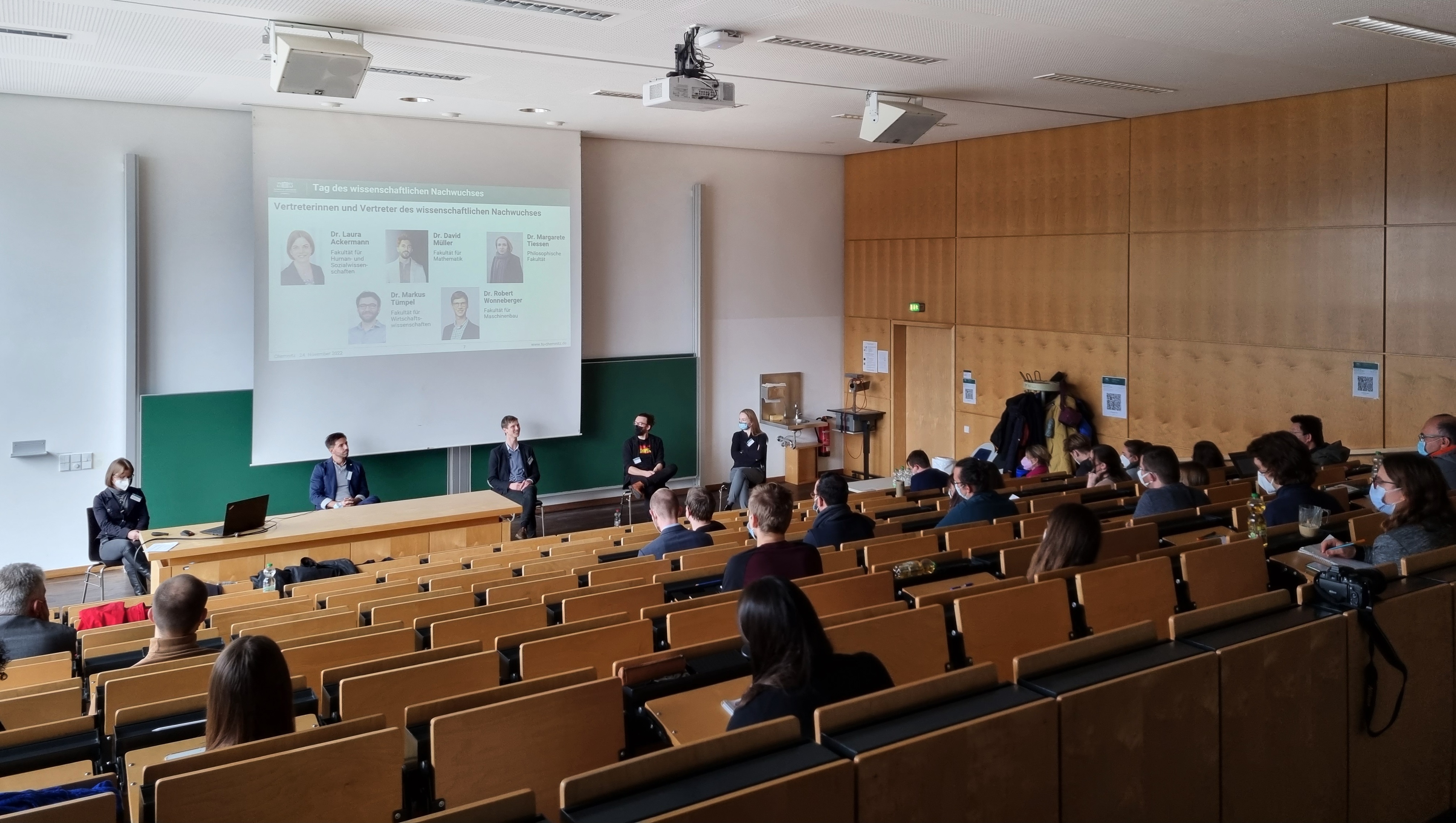
After the discussion, the start-up network SAXEED presented itself and the EXIST-Funding programmes. They made clear that doing a doctorate and start-ups go along with each other as both are united by the urge to explore truly new territory.
In order to strengthen networking, representants of the faculties and further institutions of the TU Chemnitz were open to answer questions regarding doing the doctorate or habilitation. At the same time, the participants had the opportunity to eat lunch.
In the second session, Prof. Dr. Dagmar Gesmann-Nuissl (member of the Committee for Assurance of Good Scientific Conduct at the TU Chemnitz) and Prof. Dr. Guntram Wagner (Ombudsperson of the TU Chemnitz for Scientific Misconduct) addressed the question of what characterizes good scientific practice and how it can be promoted through regulations and principles of conduct. Prof. Dr. Dagmar Gesmann-Nuissl first referred to the legal perspective of good scientific practice, but also to the general understanding of collegial trust in the honesty of scientific work as a cornerstone for gaining knowledge and research interest. Plagiarism and authorship were said to be the cause of a violation of "good scientific practice" in 40 percent of the cases. Nevertheless, neither the term "plagiarism" nor the term "author" has a universally valid and unambiguous definition. In case of disagreement, the Commission for Safeguarding Good Scientific Practice as well as the Ombudsperson, who takes a mediating perspective between the two disputing parties, are available as contact persons. Thus, Prof. Dr. Guntram Wagner emphasized, "There are cases where it makes sense to talk about it again before you do any damage." He added that people are welcome to contact him in case of any problems. "I see myself as a service provider," Prof. Dr. Guntram Wagner continued.
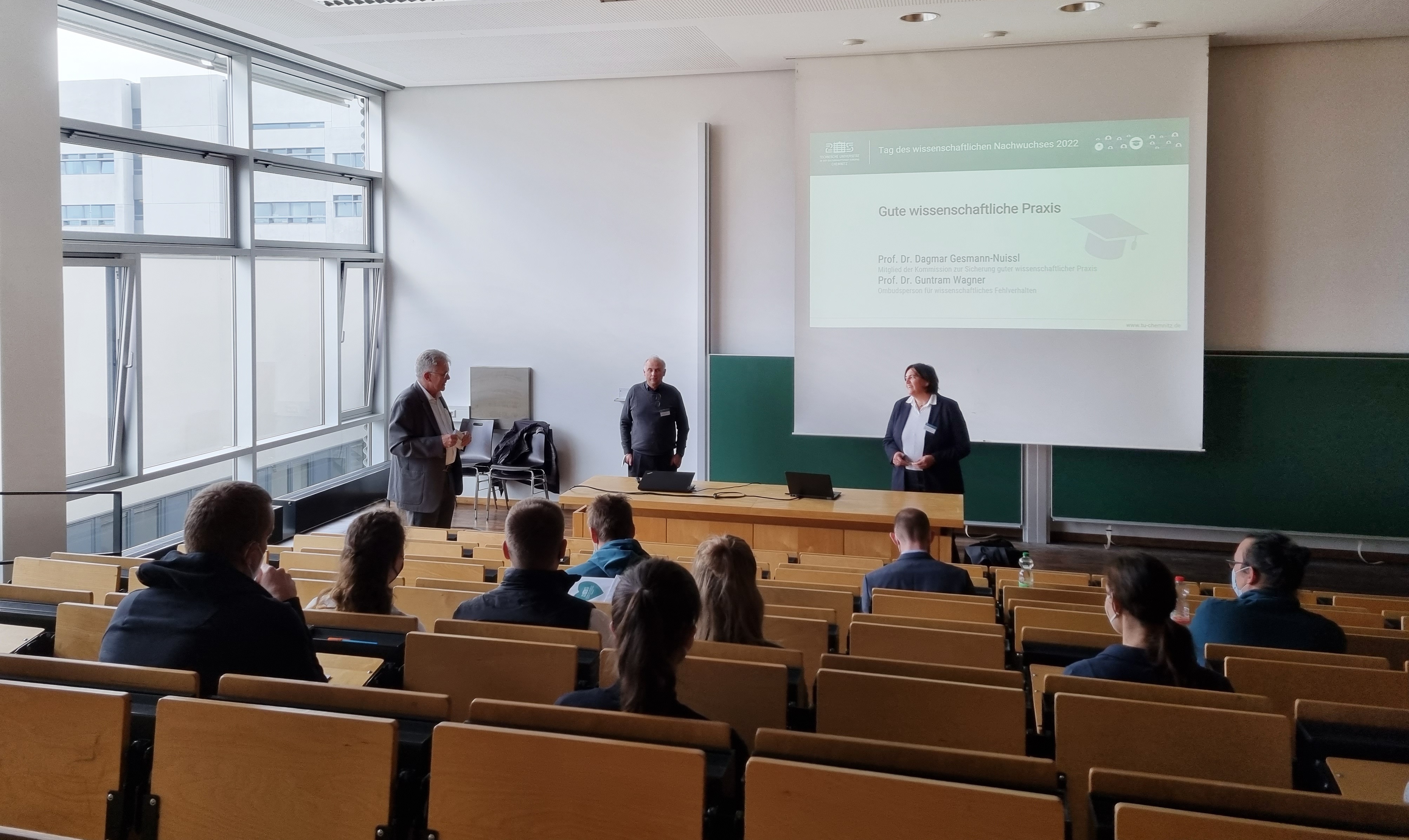
Last but not least, the participants had the choice between two parallel events taking place at the same time. Prof. Dr. Teresa Pinheiro (Faculty of Humanities) and Prof. Dr. Carsten Deibel (Faculty of Natural Sciences) spoke in the session moderated by Dr. Nadia Lois about the "PhD process from different perspectives". Those interested in doctoral studies and doctoral candidates were able to engage in an intensive discussion with the two speakers and ask their own personal questions. The focus was, for example, on the significance of the doctorate in the various subject cultures, the course of the doctoral phase, and personal and biographical aspects that need to be taken into account. Interestingly, many similarities were identified, but also some subject-specific differences.
In the second parallel event, moderated by Prof. Dr. Jörn Ihlemann, Prof. Dr. Frank Asbrock (Faculty of Behavioural and Social Sciences) and Prof. Dr. Thomas Lampke (Faculty of Mechanical Engineering) provided insights into their individual CVs and described both obstacles and bridges on the career path to professorship. For example, stays abroad, teaching experience, publications, successful acquisition of third-party funding, but also conference participation, committee experience and a good, well-developed network were named as decisive criteria for convincing appointment committees of personal suitability for the desired professorship. The two professors emphasized that as a professor, you have to be passionate about your research and should not underestimate the aspect of teaching in particular. In addition, both professors spoke about how they were able to reconcile their professorship with starting a family. In doing so, they appealed to the participants to face these issues whenever they arise and not to let minor setbacks stop them from achieving their goal of becoming professors. "I thought the path to a professorship was a straight, steep path, but it is rocky and you make many experiences, good experiences," said Prof. Dr. Thomas Lampke.
Whether general information about doctoral studies, suggestions for promoting good scientific practice, or experiences on the path to professorship - the Day for Young Scientists offered a wide range of information. Through the open discussion and question rounds, participants also had the opportunity to address personal concerns and gain new perspectives and views. At the same time, there were numerous opportunities to talk to each other and network.
We would like to take this opportunity to once again thank all speakers as well as all helpers for their time and commitment, thanks to which we were able to successfully hold the event. At the same time, we would like to thank the sponsors of FDTech GmbH, the start-up network SAXEED as well as msg systems ag, who made the supply of food and drinks during the break possible.
Passion and suffering in the doctorate phase
On November 11, 2021, for the eighth time, people interested in doctoral studies, doctoral students and postdocs came together for the digital "Day for Young Scientists". Approximately 80 young scientists took advantage of the opportunity and informed themselves about the numerous topics offered, listened to the reports on their experiences and participated in the open discussion rounds. Main topics of the online event were "Research in a Team," "The Doctoral Process from Different Perspectives," "Career Goal: Professorship!" and "Intercultural Readiness - Arriving in International Research Teams” followed up by discussion rounds. The program was led by Prof. Dr. Jörn Ihlemann, Vice President for Research and Junior Researchers at Chemnitz University of Technology and Director of the Centre for Young Scientists, as well as Dr. Nadia Lois, Assistant (specialized in Junior Researchers and Tenure-Track-Procedure) in the President´s Office and Managing Director of the Centre for Young Scientists, and Dr. Benny Liebold, Head of International Office of Chemnitz University of Technology.
After the opening and welcoming of the guests, Michael Schmischke (Commissioner of the University Management for Junior Researchers) talked about the current situation of young scientists, pointing out the importance teamwork and exchange between scientists, that are negatively affected by the COVID-19 pandemic. In this context, he encouraged all those present to feel free to contact him with suggestions or problems and to knock on his (digital or wooden) door.
This opinion was also shared by the participants in the subsequent round of talks. Dr. Julia Grass (Faculty of Behavioural and Social Sciences), Dr. Kristina Roder (Faculty of Mechanical Engineering), Dr. Sebastian Heil (Faculty of Computer Science), M.A. Jakob Kullik (Faculty of Humanities) and Dr. Leonard Rößner (Faculty of Natural Sciences) shared their personal experiences regarding working and researching in a team during the doctoral studies. The young scientists were able to pass on a wide variety of insights and perspectives on the doctoral phase. For example, Dr. Julia Grass stated that she had met “cool people", whereas Jakob Kullik emphasized the benefits of scholarships. As a fellow of German Business, he was able to report first-hand that networking, especially in business and politics, is more important than ever. Dr. Leonard Rößner also drew a positive conclusion regarding the opportunity to realize his own projects and marked the exchange with international scientists as being very formative for him. Dr. Sebastian Heil highlighted that the exchange with others helps especially in times of low motivation and lean periods, as they can contribute further ideas through new input and other perspectives. With regard to the work and research in the team, Dr. Julia Grass was summed up: "You can't not do research in a team". Jakob Kullik also noted that "with the right people, work can be very fruitful," but it must be well organized. In retrospect, all the referents described the doctoral phase as an extremely positive time that led to meeting many new people and to personal progress as well.
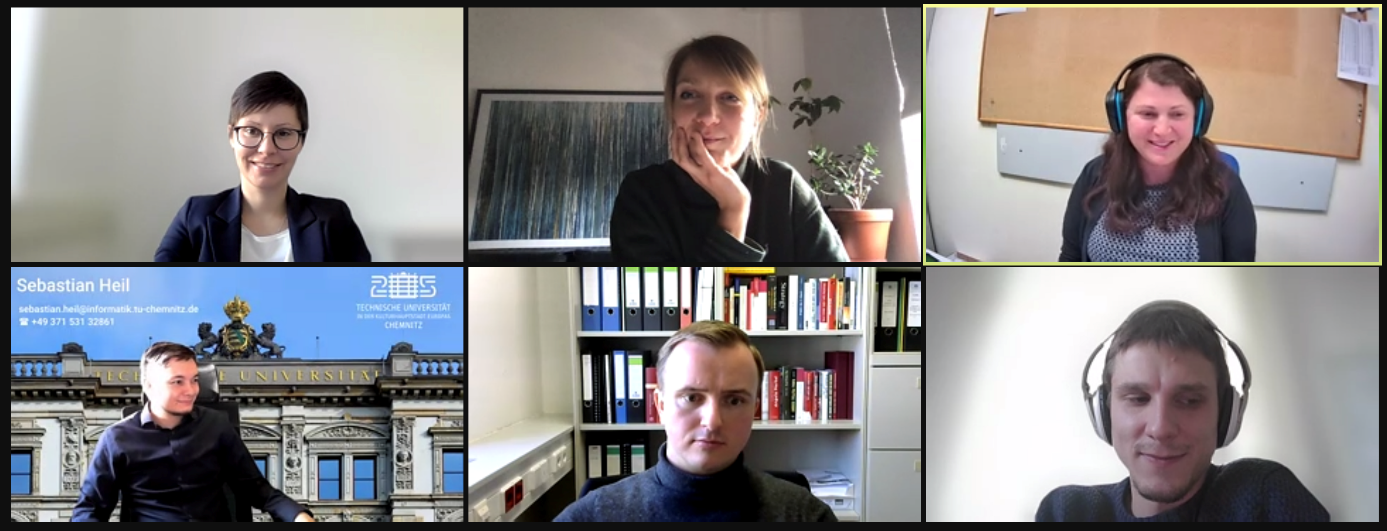
The second session was entirely dedicated to the topic of "Research in Teams" and was divided into two separate presentations - on the one hand was shown the perspective of the humanities and social sciences, and on the other hand the one of the MINT fields. First, Dr. André Dettmann and Patrick Roßner (Faculty of Mechanical Engineering) presented example concepts for research in teams. These include, among others, the “Arbeitswissenschaftliche Kolloquium (AWIKO)”. It serves the development and acquisition of different skills, such methodological and presentation skills, learning time management and continuous work on the dissertation project. In addition, an interdisciplinary view of issues and the competence of linking knowledge and methods are to be learned. Also, other aspects play a major supportive role during the dissertation project like teamwork, collaboration and networking with research, industry partners and other doctoral students and the informal exchange within the academic area through mutual knowledge.
Afterwards, Prof. Dr. Georg Jahn and Dr. Diana Armbruster (Faculty of Behavioural and Social Sciences) spoke about methods, opportunities, and possible risks of teamwork. For example, conflicts in teamwork were addressed and how they could be prevented. At the same time, Prof. Jahn pointed out that overcoming conflicts has a motivational effect on group identities and can lead to greater success. Teamwork in science also varies according to discipline and standard. For example, the number of researchers participating in a team depends on the interdisciplinary nature of projects and the scope of the research. Dr. Diana Armbruster also presented the Integrated Research Training Group of the Collaborative Research Center Hybrid Societies as an opportunity, emphasizing the international exchange, the interdisciplinary orientation and funding opportunities in the form of scholarships. Thereby, the community of learners and networking should be strengthened.
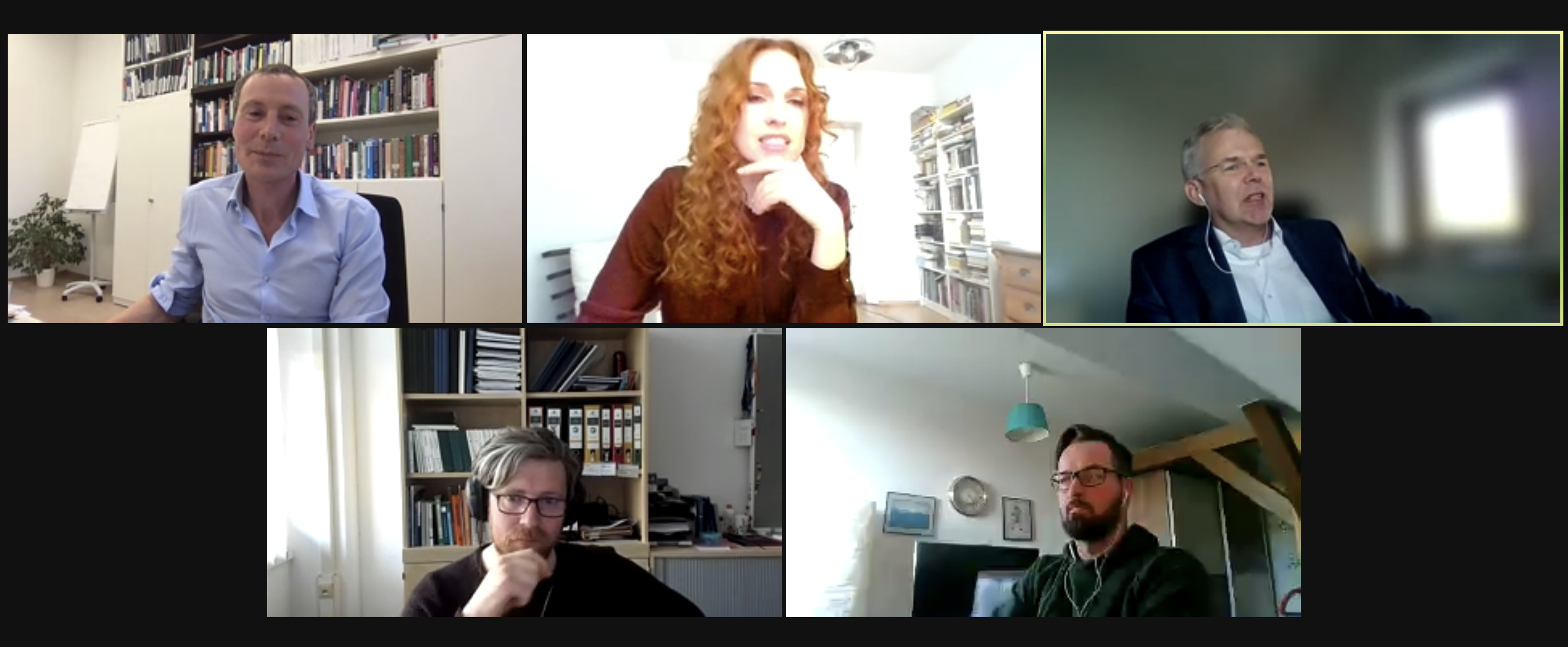
During the last part of the event the participants could choice to attend one of the three parallel events taking place at the same time. The session "PhD process from different perspectives" was held by Prof. Dr. Silke Hüsing (Faculty of Economics and Business Administration) and Prof. Dr. Martin Gaedke (Dean of the Faculty of Computer Science) and moderated by Dr. Nadia Lois. Prof. Dr. Martin Gaedke described the doctorate as a journey that includes knowledge, failure, success, and fulfillment. It is a paradoxical situation that combines passion and struggle at the same time. Prof. Dr. Silke Hüsing focused on qualities that are necessary for a doctorate. These included reliability, honesty, and discipline. In addition, a list of 15 questions described the path to a doctorate and thus provided tools to make it easier for young scientists to decide consciously and purposefully for or against a doctorate. These questions require personal reflection and, in addition to fundamental questions such as "Why do I want to do a doctorate?", questions such as "Do I want to publish constantly and together with others, or do I want to push ahead with my own major project?" or "What is the significance of the doctorate in this phase of life?" are also asked.
In the second parallel event, moderated by Prof. Dr. Jörn Ihlemann, Prof. Dr. Stefan Garsztecki (Faculty of Humanities) and Prof. Dr. Thomas Seyller (Dean of the Faculty of Natural Sciences) provided insights into their individual CVs and shared different experiences regarding their own professorship career path. For example, stays abroad, teaching experience, publications, successful acquisition of third-party funding, but also conference participation, committee experience and a good, well-developed network were mentioned as decisive criteria for convincing appointment committees of the personal suitability for the desired professorship. In addition, both professors talked about how they were able to reconcile their professorship with starting a family. In doing so, both professors appealed to the participants to face these questions whenever they should arise and not to let small setbacks stop them from achieving their goal of a doctorate.
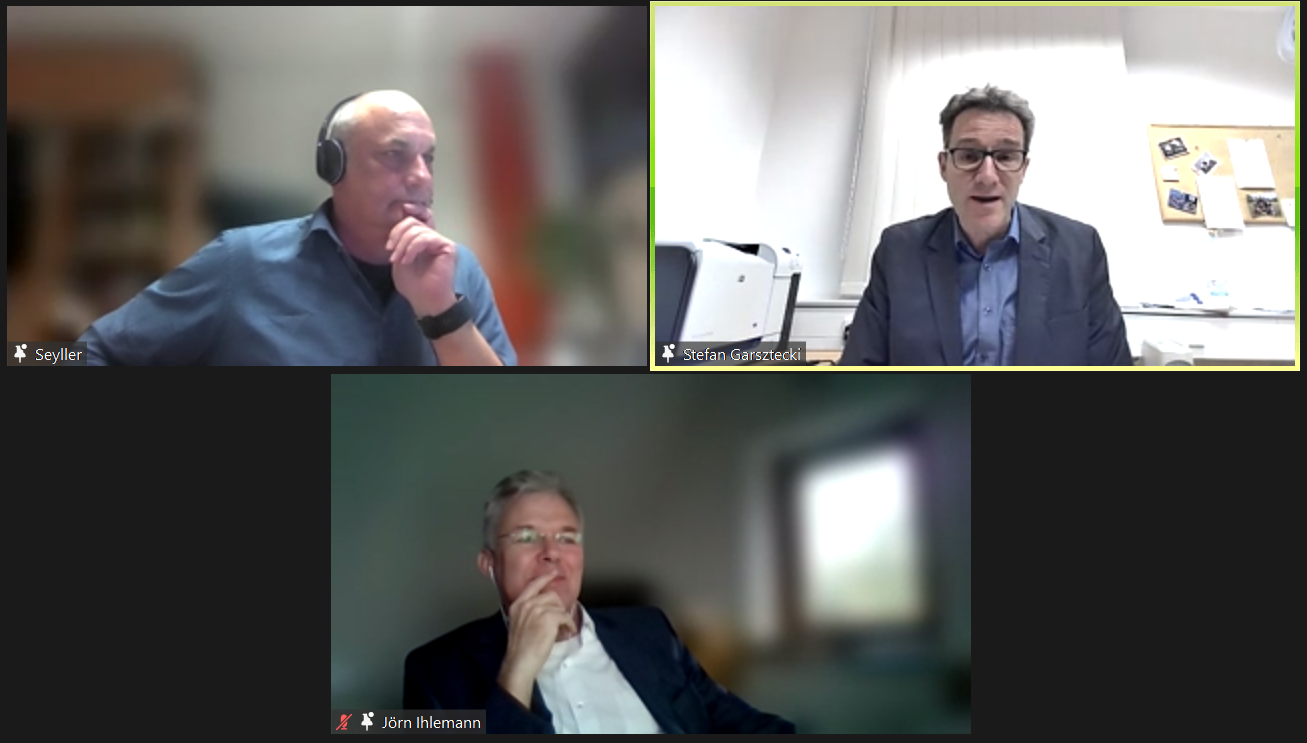
In the English-language session "Intercultural Readiness - Arriving in International Research Teams", which was moderated by Dr. Benny Liebold, external lecturer Maria Prahl addressed the topic of working in an intercultural team and explained the three important aspects of intercultural effectiveness - "Connect", "Perform", "Enjoy" - and the competencies one should pay attention to balancing when working in an international team. She also illustrated the fundamental similarities and differences between various international academic, scientific, and work cultures.
Whether it was opportunities for funding a doctorate, suggestions for working in a team, or experiences on the path to a professorship, the Day for Young Scientists offered a wide range of information. Through the open discussion and question rounds offered in each session, the participants also had the opportunity to address personal concerns and gain new perspectives and views. To further promote exchange and networking among young scientists, we are planning to hold the event again in the future.
We would like to take this opportunity to thank all speakers and helpers once again for their time and commitment, thanks to whom we were once again able to successfully hold the event in digital format.
This year's Young Scientists' Day on November 5, 2020, was strongly influenced by the pandemic situation and focused on urgent questions concerning doctoral and academic careers
On November 5, 2020, the Day of Young Scientists at Chemnitz University of Technology took place for the seventh time. Due to the current situation, this year's event was digital for the first time. Around 70 interested young scientists took part in lectures and a virtual discussion round. The event focused on the topics "PhD", "Publishing" and "Career perspectives after the doctorate". Prof. Dr. Jörn Ihlemann, Director of the Centre for Young Scientists and Vice-Rector for Research and Young Scientists at Chemnitz University of Technology, and Dr. Nadia Lois, Managing Director of the Centre for Young Scientists and Assistant (specialized in Junior Researchers and Tenure-Track-Procedure) in the President´s Office, led through the program.
As an introduction to the topic "Doctoral Studies", Dr. Nadia Lois moderated a discussion in which young researchers from different faculties talked about their own experiences during the doctorate. The focus was on various aspects and numerous tips on doctoral research strategies. Key aspects were motivation, dealing with crises, but also the joy of whole research process.
For example, Jun. Prof. Dr. Danny Kowerko from the Faculty of Computer Science advised the prospective doctoral students to remain true to the philosophy of their studies and simply continue with the next step. Dr. Maik Trautmann from the Faculty of Mechanical Engineering encouraged the audience to take the "risk of a doctorate" even if at first glance this project was considered too challenging. Kristin Eichhorn, M.A., PhD student at the Faculty of Humanities, recommended establishing one's own routines in everyday life when planning and organizing the working method. Dr. Sascha Schneider, also from the Faculty of Humanities, added that a clear definition of smaller tasks leads to becoming aware of one's own progress. Dr. Pia Cardone from the Faculty of Economics and Business Administration emphasized the importance of exchanging information with other scientists during meetings and conferences. Dr. Jens Teuscher from the Faculty of Electrical Engineering and Information Technology pointed out the important influence of the working climate on one's own work performance. And Dr. Franziska Nestler from the Faculty of Mathematics added that setting up regular appointments with supervisors and other colleagues would help to make use of their expertise in all areas of scientific qualification.
All speakers agreed on the importance of the exchange of ideas between colleagues, which is often neglected, especially in the currently predominant home office. Hence the tip to all (prospective) doctoral students to create routines for collegial exchange, especially in the current situation. Be it a daily virtual coffee round or a weekly jour fixe - the resulting added value is considerable.
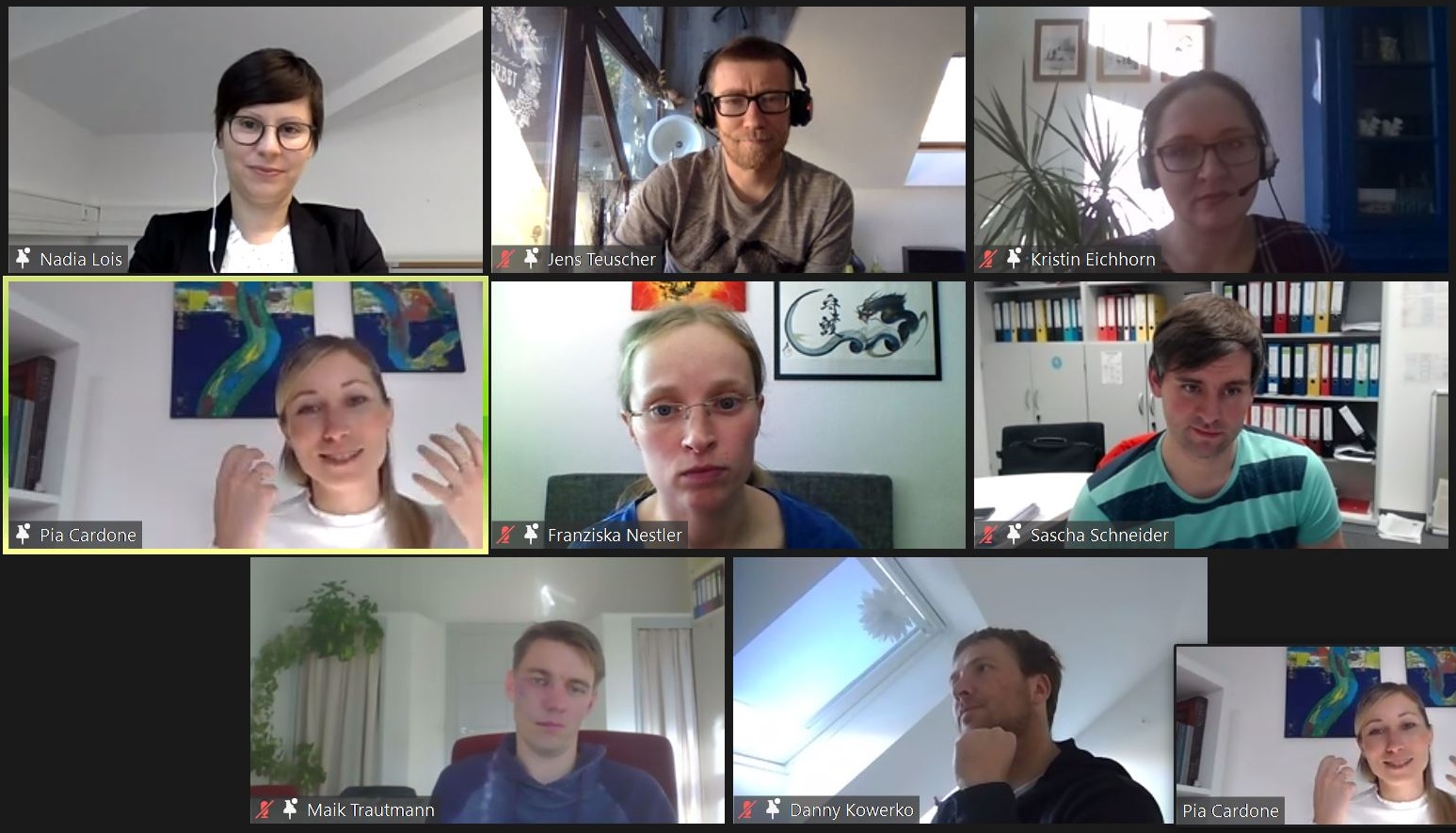
The second session focused on "Successful Publishing". Angela Malz, Director of Chemnitz University Library, presented the numerous support services offered by the University Library and encouraged the audience to inquire at the library if there is a need for financial support, for example for Open Access publications. Under the motto "no pain, no gain", Prof. Dr. Markus Richter, holder of the Professorship Technical Thermodynamics at the Faculty of Mechanical Engineering, explained that a good scientific publication performance is linked to a lot of work and strategic research management.
Two parallel sessions were held at the end of this year's Day for Young Scientists. Prof. Dr. Anja Strobel, Dean of the Faculty of Behavioural and Social Sciences, together with Prof. Dr. Bernhard Wunderle, holder of the Professorship Materials and Reliability of Microsystems at the Faculty of Electrical Engineering and Information Technology, presented the course of the doctoral program from different perspectives. Prof. Dr. Anja Strobel emphasized the importance of cognitive ability, enthusiasm and curiosity for research, which accompany one on the way to a successful doctorate. Prof. Dr. Bernhard Wunderle added that these qualities interact with great determination, self-discipline and perseverance, since "geniuses are rare". He also pointed out that the doctoral thesis is "not a 9 to 5 job" and that it is therefore very important to have fun with it.
At the same time, Prof. Dr. Marlen Gabriele Arnold, Faculty of Economics as well as Rectorate Representative for Sustainable Campus Development, and Dr. Robin Schubert, graduate of Chemnitz University of Technology and now Managing Director of BASELABS GmbH, spoke about two possible career paths after the doctorate. Prof. Arnold focused on various aspects that should be considered if one wants to stay in academia after the doctorate and obtain a professorship. Stays abroad and the building of networks are helpful. The hurdles to be overcome were also mentioned. She referred to the increasing pressure to publish, which is a hurdle for many. She advised not to despair, to have staying power and thus find their way through the "publication jungle". As an engineer, Dr. Robin Schubert set out on the road to founding a company. He explained this in a vivid way and provided insights into his discovery phase. In doing so, he particularly emphasized the importance of motivation. In particular the question he asked himself in the morning: "Why am I working today", he wanted to share with his audience.
In the end, despite the wide range of experiences and perspectives, all the speakers agreed on one thing: intrinsic motivation is the essential driving force for a successful doctorate and career - whether in or outside science. You have work on your research topic and project with passion.
"The Day for Young Scientists has also proved its worth in the virtual format", said Prof. Dr. Jörn Ihlemann in the end of the event. Dr. Nadia Lois was finished with the words: "I am particularly pleased that the Day for Young Scientists had with such a great response despite the unusual format and that it was possible to discuss so many interesting topics regarding the doctorate process.
We would like to thank all the speakers and all the helpers for their time and commitment, thanks to which we were able to successfully hold the event in digital format as well.
"You have to be passionate about your research topic."
For the sixth time, the Centre for Young Scientists invited all persons interested - from Master's students to supervisors - to inform oneself and exchange views on academic career paths. More than 85 participants joined this year’s Day for Young Scientists and attended informative lectures, field reports or they took the possibility to get directly in touch with the representatives of the faculties.
For many participants, the anchored discussion “Young Scientists get the floor” was one of the highlights of the event. During this discussion, young scientists - doctoral candidates and postdocs from different faculties - had their say. .
Various aspects, such as the decision for the doctorate, the handling of crises but also the joy of research itself were discussed. The speakers shared their experiences and gave the audience advice on the doctorate. Dr. Ailyn Stötzner of the Faculty of Mathematics suggested that not everything has to be done on one's own and that doctoral candidates should use the expertise of their supervisors. Felix Petzke, doctoral candidate at the Faculty of Electrical Engineering and Information Technology, recommended to seize impulses from the outside - whether those of colleagues during coffee breaks, during colloquia or at conferences. Dr.André Matthes of the Faculty of Mechanical Engineering encouraged the participants to take their time to search for a research topic in order to make sure to identify the topic they are really interested in. In addition, Andrea Preuß of the Faculty of Natural Science shared her experience with scholarships and Claas Pollmanns of the Faculty of Behavioural and Social Sciences brought his personal views on a structured doctorate into the conversation. The discussion was anchored by Dr. Michael Partmann, Assistant to the president of Chemnitz University of Technology.
The fact that enthusiasm for the research topic and scientific work is fundamental for a doctorate was also confirmed by Prof. Dr. Frank-Lothar Kroll of the Faculty of Humanities and Prof. Dr. Bernhard Wunderle of the Faculty of Electrical Engineering and Information Technology. They presented the formal requirements for a doctorate with all its milestones. The presentation included specifics of humanities and social science as well as an engineering perspective. Prof. Dr. Wunderle emphasised that one’s personal motivation and being passionate about every aspect of the topic matter the most.
Afterwards, Antje Pfeifer from the Centre for Young Scientists presented financing possibilities for the doctorate.
At the same time, Prof. Dr. Birgit Glorius from the Faculty of Humanities gave an insight in her academic career, which led her - as she said - via detours to her goal. She pointed out that there is not one ideal way. One could and should decide several times which way to go. One should always strive to become unique within its own discipline and to put this unique selling point in the focus of your career decisions. Prof. Glorius considers publishing, acquiring third-party funds, teaching, self-marketing and networking as basics of academic work.
Dr. Martin Böhringer, who completed his doctorate at the Faculty of Economics and Business Administration, reported on how accidentally the startup Staffbase arose from a failed research project. He advised the audience to never get too comfortable with one’s situation and not to lose contact with the outside world. Sometimes things should just be tackled and done - perfection not necessarily comes first. Failures should rather be seen as a new opportunity and one should strive to quickly overcome them. With his lecture, he encouraged the participants to admit their own mistakes and made clear that even seemingly wrong decisions can lead to the goal.
In the last presentation, Dr. Michael Melzer informed the participants about his personal career - from doctoral candidate to junior research group leader at the Leibniz Institute for Solid State and Materials Research Dresden. He also gave the audience insights into the promotion of young talents within the Leibniz Association. As one example, he presented the competition The best minds, which offers - in addition to the programme for Leibniz Junior Research Groups - funding for outstanding female junior researchers – the so-called Programme for Women Professors.
One aspect all the speakers agreed on: one has to work passionately on the doctorate, enjoy scientific work and academic exchange and has to be dedicated to one’s topic!
Prof. Dr. Jörn Ihlemann, Vice President for Research and Junior Researchers, who led through the programme, said afterwards: "I am pleased that so many Master students showed interest in the topic of doctorate at the Chemnitz University of Technology." The participants in this year's Day of Young Scientists appreciated the diverse perspectives on the doctorate, the wide range of presented topics and were inspired by the enthusiasm of the speakers.
We thank all the speakers, moderators, representatives of the faculties and all the helpers for their time and dedication, thanks to which we were able to successfully organise the event.
(Author: Antje Pfeifer, Translation: Lea Müllenbach, Pictures: Anja Huber and Lea Müllenbach)
Doctorate, research and the promotion of young scientists
On Thursday, 2 November 2017, numerous doctoral candidates, interested students, postdocs as well as professors assembled on the campus “Straße der Nationen” in order to participate in the 5 Day for Young Scientists. During this afternoon, everything revolved arount the doctorate, research and the promotion of young academics.
The event was opened by Prof. Dr. Jörn Ihlemann, Vice President for Research and Young Scientists and Director of the Centre for Young Scientist. After a short welcome and an introduction to the agenda Dr.-Ing. Jens Teuscher (Commissioner of the University Management for Young Scientists) continued. The young scientist introduced himself and his function as a link between young academics and University Management.
Afterwards young scientists of Chemnitz University of Technology (TU Chemnitz) gave insights into their doctorate. Jun.-Prof. Dr. Mario Geißler from the Faculty of Economics and Business Administration, Dr.-Ing. Jens Teuscher from the Faculty of Electrical Engineering and Information Technology, Dr. Marcus Korb from the Faculty of Natural Sciences, Michael Mika from the Faculty of Mechanical Engineering and Nadine Rauh from the Faculty of Behavioural and Social Sciences were part of the panel.
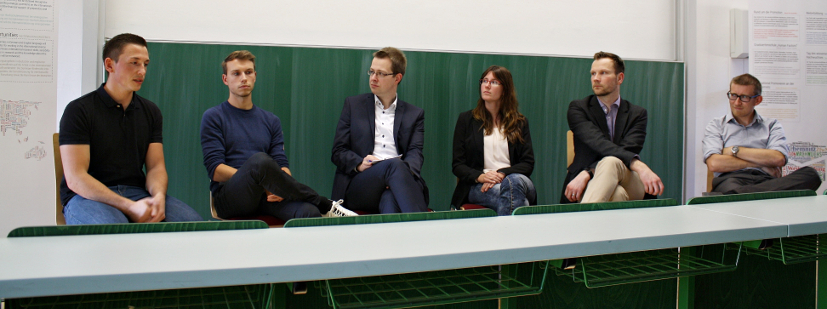
For Jun.-Prof. Geißler and Nadine Rauh, the main motivation for the doctorate was the joy of doing research and academic work. Dr. Jens Teuscher pointed out the importance of additional experiences that may come with a doctorate: The first working experiences in teaching and projects, participation in conferences and the development of key competences. Furthermore, the panel discussed how to handle setbacks during the doctorate. Dr. Marcus Korb emphasized, that based on his experiences, the exchange with colleagues and fellow PhDs as well as the participation in conferences gave him new ideas and impulses for his work and helped him overcome setbacks. But the most important – everyone agreed on – is not to give up. The discussion was moderated by Dr. Michael Partmann, Assistant to the University Management in University politics and University development.
Afterwards the former president of Fraunhofer Society, Prof. Dr. Hans-Jörg Bullinger, gave a speech entitled “Career step: Applied Sciences”. He introduced Fraunhofer Society and pointed out the career possibilities and target group-specific funding programmes for young scientists. For example, the career programme “step forward” supports the career planning of Fraunhofer´s staff that already acquired working experience. Fraunhofer Society is the biggest organisation for applied research in Europe. It serves as career-stepping stone in business and science. Prof. Bullinger’s advice to the audience was that the most important step of a dissertation is to start with it.
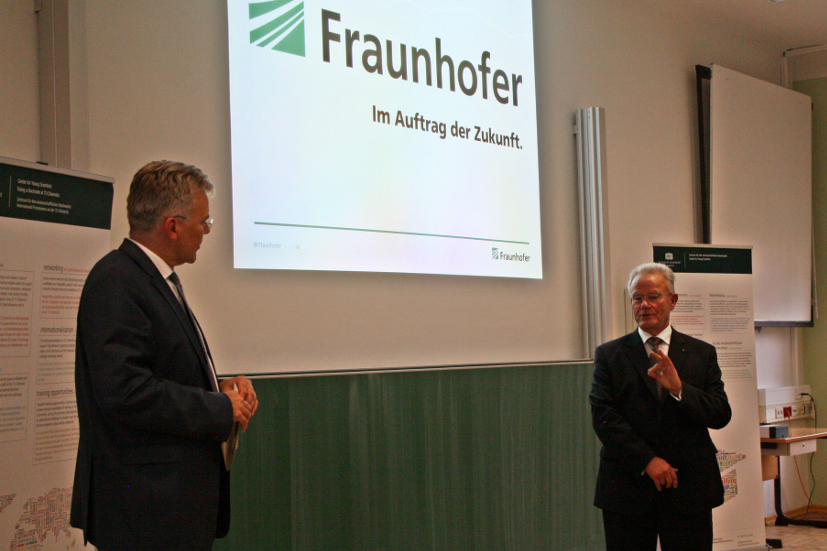
After the first session, the approx. 90 participants were invited to a coffee break. A poster exhibition informed about the promotion possibilities at the faculties of TU Chemnitz.
The second session started with three presentations which took place at the same time and were orientated at the specific group interests. Prof. Dr. Dietrich R.T. Zahn from the Faculty of Natural Sciences focused on the typical process of a dissertation with its major milestones. Antje Pfeifer from the Centre for Young Scientists introduced different options how to finance the doctorate.
Anja Ruhland, M.A. from the Federal Government’s "Research and Innovation" central funding-advisory centre was responsible of the second presentation concerning the funding possibilities for research and development projects by the Federal Government. She presented the programmes “VIP+” and “KMU-innovativ” and marked the most important steps from the project idea to the finalised proposal.
Furthermore, Prof. Dr. Georgeta Salvan from the Faculty of Natural Sciences introduced during her presentation „The life after PhD: an ongoing experiment” her individual career steps before, during and after the doctorate.
As last year, the Day for Young Scientist ended with a Science Slam. Three doctoral candidates and one postdoc battled each other. Christian Militzer from the Faculty of Natural Sciences explained in his talk how to cover spaghetti to a maximum with tomato sauce and why this is important to him as a scientist. Annett Schmieder from the Faculty of Mechanical Engineering gave insights into the life of a fibre rope and the problem of split ends. Apoorva Sharma from the Faculty of Natural Sciences explained which impact spintronic have on a draft beer. After all, Dr. Holger Langenau from the Faculty of Mathematics presented how a hardhard problem can be solved with the help of square chocolates.
The audience decided who should win. All four candidates received great applause
for their presentations but ultimately Christian Militzer emerged as winner of the
Science Slam.
Dr. Holger Langenau was second and Apoorva Sharma third. We would like to thank
“Gesellschaft der Freunde der TU Chemnitz e.V”. Only through their
generous support we were able to present attractive prizes to the winners.

After the closing by Prof. Dr. Jörn Ihlemann the official part of this year's Day for Young Scientists ended. There were still plenty of opportunities to exchange views during the reception. Remaining outstanding questions about the doctorate were answered by six representatives of the faculties.
The Centre for Young Scientists thanks all the speakers, moderators, participants of the Science Slam, as well as helpers involved in the event for their support.
(Author: Antje Pfeifer, Translation: Lea Müllenbach, Pictures: Anja Huber and Lea Müllenbach)
A DAY FOR YOUNG SCIENTISTS
On 19 November 2016 the Day for Young Scientists took place for the fourth time at the TU Chemnitz. The Centre for Young Scientists (ZfwN) organized the event and invited doctoral students as well as professors, postdocs and interested students in general to a joint afternoon revolving around the topic of completing a doctorate.

Overall 120 interested people including professors and juniorprofessors, students, postdocs, doctoral students and staff from all faculties came to hear a number of informative and professional presentations.
Prof. Dr. Jörn Ihlemann opened the event at 2pm by welcoming the guests in the full auditorium N113 on the campus Reichenhainer Straße. He also introduced himself as the new director of the Center for Young Scientists and used the opportunity to thank his predecessor Prof. Dr. Heinrich Lang, who had prepared significant parts of the program for the day. Afterwards he explained the topics of the day by walking the audience through the items on the agenda.

The first presentation was held by Prof. Dr. Michael Schreiber, Faculty of Natural Sciences, Professorship of Theoretical Physics III - Theory of Disordered Systems. The title was „How to Write a World Class Paper“. He opened by saying that he would answer that question indefinitely. He furthermore offered a multitude of helpful tips and experience in academic writing.
The following two presentations aimed mainly at parties interested in starting a doctoral thesis. Professor Ihlemann presented a possible timeline for a doctoral process including its important milestones. Afterwards information about numerous financing models were presented. In this part Antje Pfeifer, employee of the ZfwN and project coordinator for InProTUC explained a variety of options.
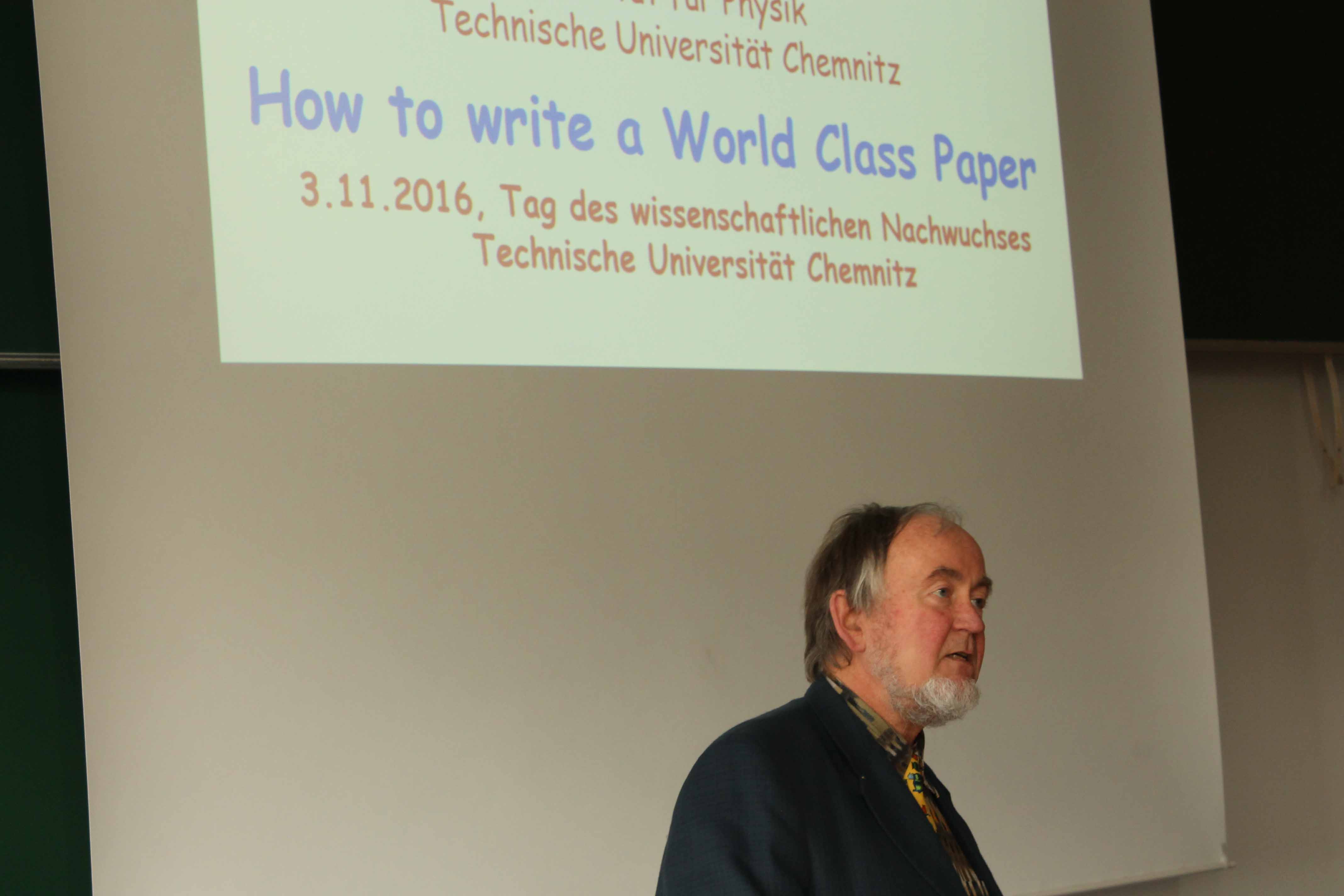
The next part focused on research done at TU Chemnitz. Alexandra Cook, Faculty of Behavioural and Social Science, Professorship of Organisational and Economic Psychology, held a 10 minute-presentation about her own doctoral thesis as well as the advantages of working at the university while getting a PhD. Her enthusiasm was quit noticeable for the audience. Consequently, she closed on the take-home-message: Love Your Research.

This first block of presentations was followed by a short coffee break where the guests had the chance to talk to the participants, take a look at information on display as well as take home brochures and learn about the PhD programs at specific faculties. Nearly all faculties of TU Chemnitz were represented one a poster.
The seconde half of the event had the theme „Promotion of Young Scientists“. It was a pleasure for the ZfwN to welcome Prof. Dr. Robert Schlögl of the Fritz-Haber-Institute of the Max-Planck-Society as a speaker. His presentation gave the audience an insight into his research as well as his philosophy about supporting his doctoral students. He pointed out that the doctoral process is an intensive time and an important station within a scientific career. He asks everybody to consider moving on after finishing the PhD and gain as much experience as possible. He puts a main focus on discipline, self- responsibility and time management. He said he urges his own doctoral students to finish their thesis in 3 to max. 4 years. Through constant personal conversations he motivates and supports them in this.

Afterwards Clemence Vernier, doctoral student at TU Chemnitz as well as employee at Robert Bosch GmbH, and Martin Gozdzik, also doctoral student as well as employee at Volkswagen AG told the audience about “Promotion of Young Scientists” from the perspective of doctoral students working at a company. Clemence Vernier saw the main advantages of this PhD model within the support the company offered to the doctoral community and the inclusion of her research topic in the company’s budget. Therefor she did not have to write requests for additional funding like she would have at a university.
Martin Gozdzik pointed out some advantages as well but also noted that the workload he faces as an employee does not leave enough room to work on his thesis on a daily bases.
He also said that his employer offered great chances of being taken on by the company when doctoral students successfully finished their PhD.
Dr. Florian Speck, Postdoc of TU Chemnitz and member of the advisory board for the ZfwN moderated this part of the event.
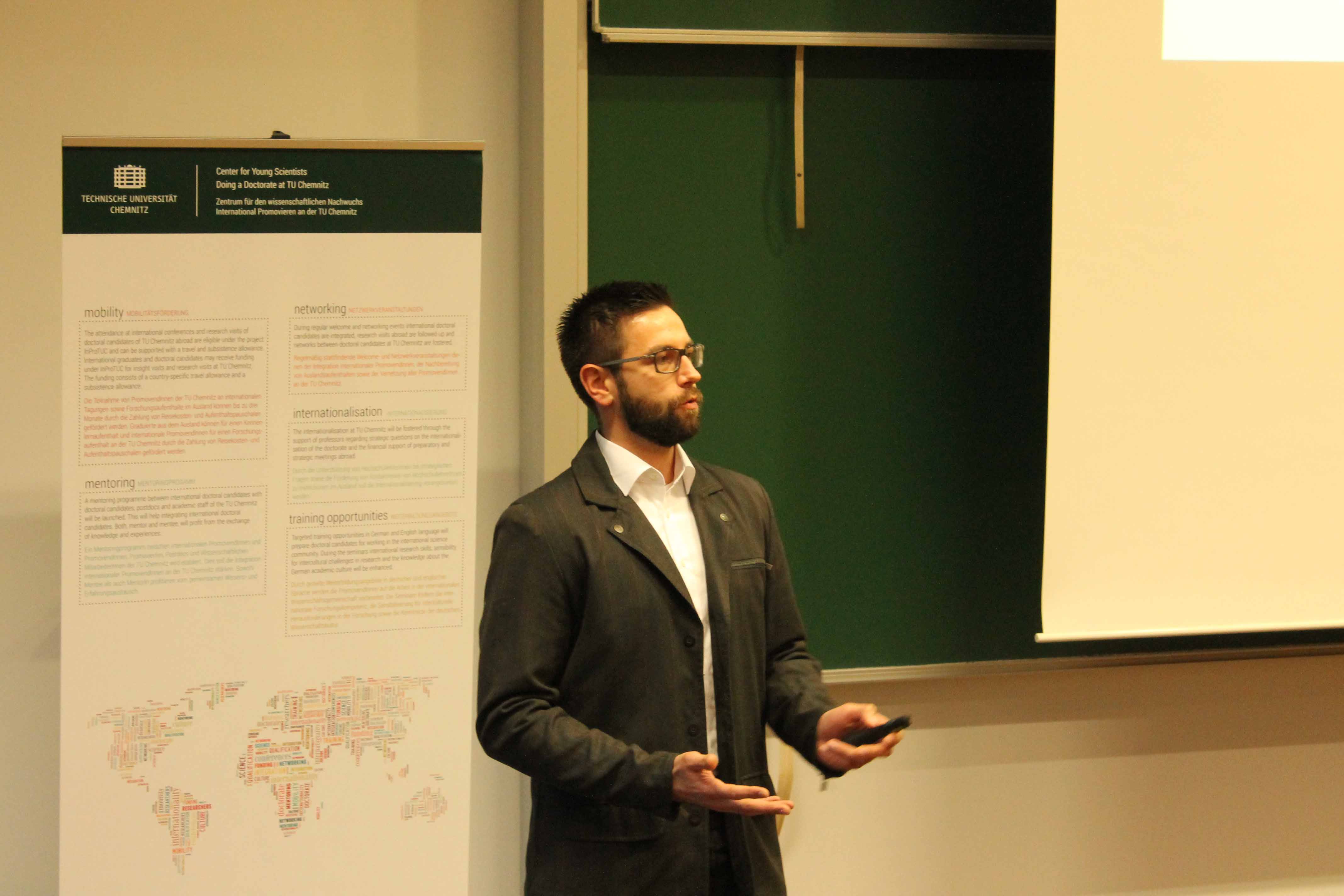
The event ended with a Science Slam. Four young scientists competed with one another using their research topics. The goal was to delight the audience with the own research topic presented in a 7-minute short presentation. Moderator Antonin Fischer, graduate of TU Chemnitz and passionate Poetry- and Science-Slam moderator, explained the rules and warmed up the audience. First candidate: Sebastian Weise, Faculty Mechanical Engineering. In his presentation he clearly conveyed what tribology is and where to find it – even in one’s bedroom. Second candidate: Dr. Freddy Sichting, Faculty for Behavioral and Social Science. He compared a symphony orchestra to a human foot in both acoustical and visual manner as well as what all of that had to do with Rainer Calmund. Third candidate: Ibrahim Ali, Faculty of Mechanical Engineering. His core findings: Yes, aluminum in aircraft turbines can work! Fourth candidate: Dr. Holger Langenau, Faculty of Mathematics. His presentation lead to through numerous mathematical formulas. Even though the mystery of mathematical formulas remained for some of the audience members, the presentation was quite interesting.
All four presentations were met by enthusiastic applause. The trained ear of the moderator identified thereby the first two winners. 1st place Dr. Freddy Sichting, 2nd place: Ibrahim Ali. At this point, much appreciation is also due to the community of the friends of TU Chemnitz. Thanks to their support the first two winners got handed great prices for their work. For the first place it was a tablet by Samsung and for the second place a voucher for the bookstore Universitas.
The final reception was then used again to network and to get in contact with the participants, the speakers and other guests.
The ZfwN thanks all speakers, moderators, Science-Slam-participants and helpers for their active support. Through them this event was made possible to begin with.
The next event like this one is planned for november 2017.
(Text: Marita Sohre, graphs: Jule Burgenger)
Review 2015
On 19 November 2015 the Day for Young Scientists took place for the third time. The event addressed the topics of "Good scientific practice", "Structured doctorate" and "Best practice". Between the presentations of experts, the young scientists had various occasions for an exchange with the speakers and among one another.

The event carried out by the Centre for young Scientists (ZfwN) addressed PhD students, Postdocs and prospective doctoral candidates at TU Chemnitz, at Hochschule Mittweida and Zwickau. With this event, TU Chemnitz aims to form a culture and identity of the young scientists. Furthermore, it is the goal to increase the visibility of the group of junior scientists through measures across faculties and to contribute to the facilitation of a university-wide culture of postgraduates. The event delivered initial insights into the topic of doing a doctorate within an informal scope. Prof. Dr. Heinrich Lang, Vice-Rector for Research and Young Scientists as well as the director of the ZfwN, emphasized the considerable role of the young scientists for TU Chemnitz within his short welcoming speech: 'Technische Universität Chemnitz feels constrained for the advancement of young scientists through the establishment of optimal framework conditions. This is anchored in the extrapolation of the development plan of TU Chemnitz until 2025 respectively. The young scientists contribute to the success of research at TU Chemnitz and therefore they are of particular importance for the TU.'
The first section of topics was dedicated to the protection of good scientific practice. Prof. Dr. Brigitte Jockusch deployed by the Deutsche Forschergemeinschaft (DFG) in the committee of ombudsmen for science reported on the exposure to suspected cases of scientific misbehaviour. She referred to the basic principles of good scientific practice of DFG and appealed to the young scientists to comply with these principles in their daily work. Her presentation was complemented by the ombudsman of TU Chemnitz, Prof. Dr. Guntram Wagner, who presented the structures and the procedures at TU Chemnitz.
In the second part of the afternoon Dr. Wolfgang Leidholdt gave insights into the life and the career of a technocrat. Afterwards Prof. Dr. Bernadette Malinowski, dean of Faculty of Humanities, and Tina Horlitz, postgraduate in the subject of New German and Comparative Literary Studies, presented the progress of the workgroup "Structural doctorate". This workgroup started one year ago and has concentrated on designing formats and concepts for an implementation regarding to the structural doctorate at the Faculty of Humanities. Part of this is the establishment of a portal for PhD students, the elaboration of an agreement of supervision and last but not least the modification of the doctoral degree regulations which should enable the young scientists to select the path of the structural doctorate rather than the classical individual-related doctorate in the future. Prof. Malinowski presented the advantages of such a structural doctorate, which has been of great interest to the participants. Jeanette Hilger, master student of pedagogics with the core subject of learning culture, considers a PhD after completing her studies. She said: 'The presentation of Prof. Malinowski showed the advantages and disadvantages of a structural doctorate quite plainly and piqued my interest - especially as student at the Faculty of Humanities.'
After the presentations of the experts there has been time for some interesting conversations between the speakers and the participants of the event.
Review 25 and 26 September 2014
After the first Day for Young Scientists had received such a great echo, the second edition took place on 25 and 26 September 2014. About 60 doctoral students, postdocs, and also MSc-students took the opportunity to inform themselves during presentations, e.g. on career options of young scientists, on funding opportunities and financial options, on the academic career abroad and on alternatives to a career in higher education. Similar to the first Day for Young Scientists, the feedback of the participants was very positive. Especially, the variety of topics and information as well as the integration of other doctoral students i.e. in a panel discussion was notably commended. See the program of 2014 once again.
The event was accompanied by the exhibition “Doing a doctorate in the past and these daysâ€. This exhibition referred to contemporary witnesses and showed impressions of doctorates at TU Chemnitz from 1961 until today.
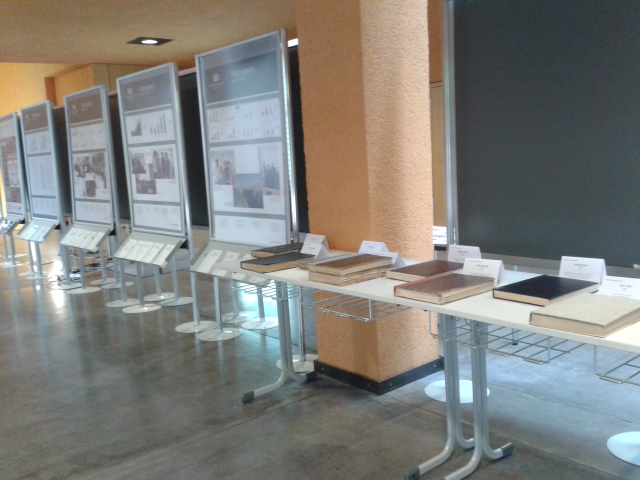
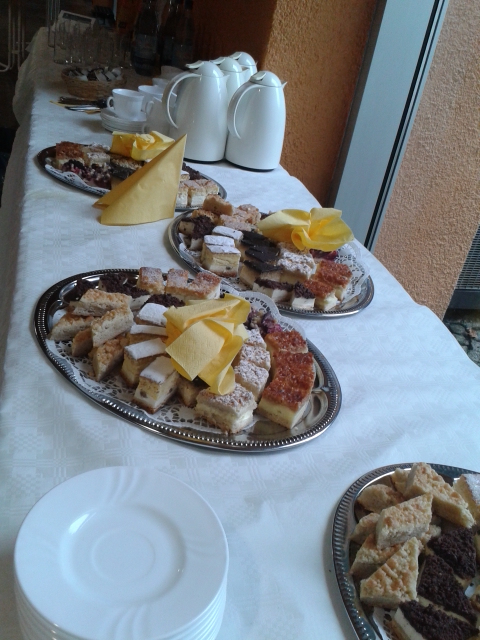
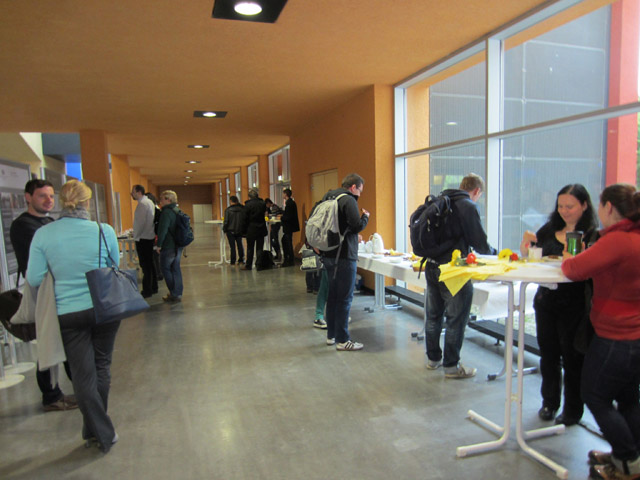
The second Day for Young Scientists already started on the eve of 25 September at “Altes Heizhaus†with a Science Slam and the ceremony awarding the photo competition “Me and my doctoral thesisâ€. The winner of the Science Slam presented complex academic issues in a comprehensible manner to the audience.
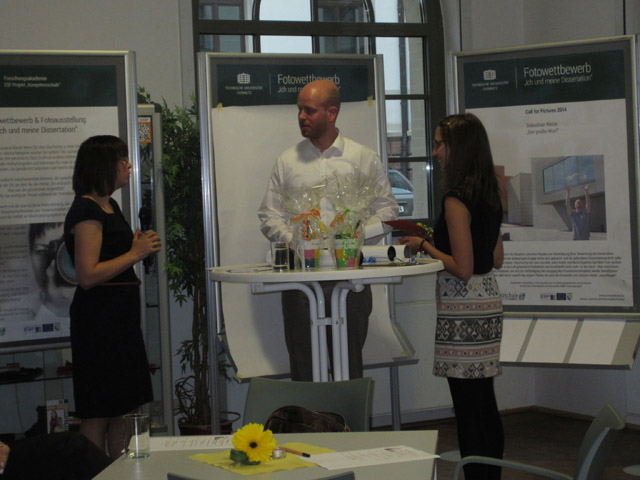
|
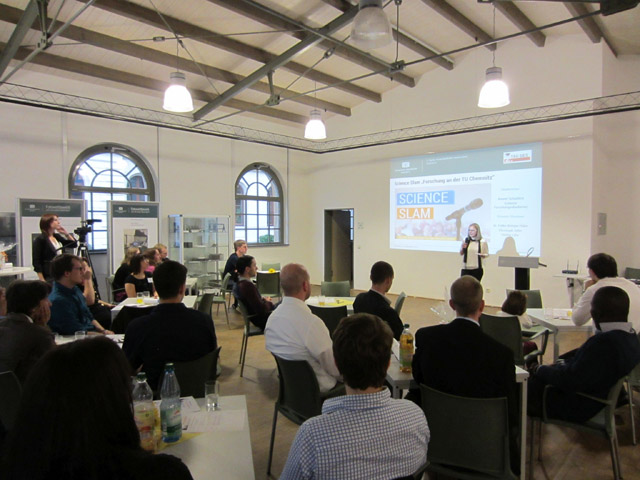
|
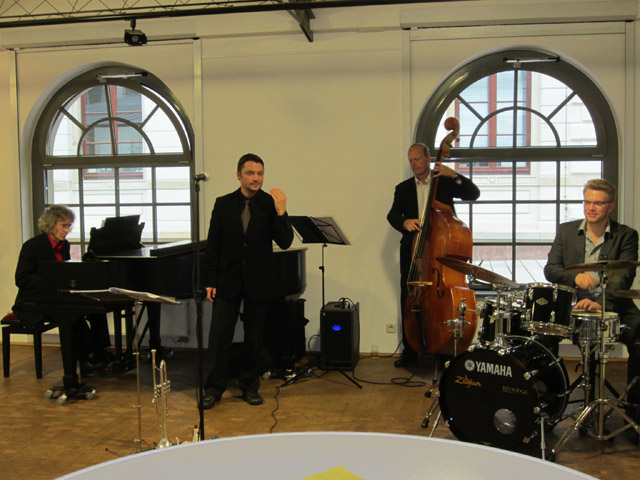
|
This year's submissions to the photo competition figuratively illustrated the great variety of research topics chosen by doctoral candidates as well as typical situations, in which doctoral students may find themselves.
The winner of the photo competition "Me and my doctoral thesis" - Ariane Bartkowski - with the picture "History vs. Hysteria" won a voucher worth 150 Euros, which was sponsored by Gesellschaft der Freunde der TU Chemnitz and is redeemable at the book shop Universitas. We thank all participants of the photo competition and the Science Slam as well as all participants and contributors of the second Day for Young Scientists.
Review 26th September 2013
It was long-overdue to dedicate a special day to PhD students, postdocs and junior professors at TU Chemnitz and to recognize their accomplishment in teaching and research. It has always been and still is the intention to offer a wide range of relevant information to young academics and support them through qualification and consultation services. Finally, the aim is to sustainably shape a culture of the young academics at TU Chemnitz and to contribute to creating an identity. Under the management of Prof. Dr. Heinrich Lang, Vice-Rector for Research and Young Scientists, the 'Forschungsakademie', together with the project 'Kompetenzschule', organized the Day for Young Scientists on 26th September 2013 for the first time. The target audience was not only PhD students from TU Chemnitz, but also postdocs and postgraduates intending to take a doctoral degree. The concept was developed in cooperation with the university management and the deans of all faculties.
The ceremony of appreciation
The focus in the morning session was an appreciation of the research efforts of the academics who finished their doctorate at TU Chemnitz from January 2012 to June 2013. The Vice-Rector for Research and Young Scientists and the representatives of the faculties jointly performed the ceremonial appreciation. The ceremony was framed by three presentations of PhD students giving insights into their transdisciplinary research.
Workshops, presentations, discussions
PhD students, postdocs and prospective doctoral candidates had the opportunity to inform themselves during three workshops on the topic "A career in science and business", to participate in discussions or to get expert advice. Numerous information desks offered information on the training and consultation offers at TU Chemnitz, stimulated discussions and made new contacts possible.
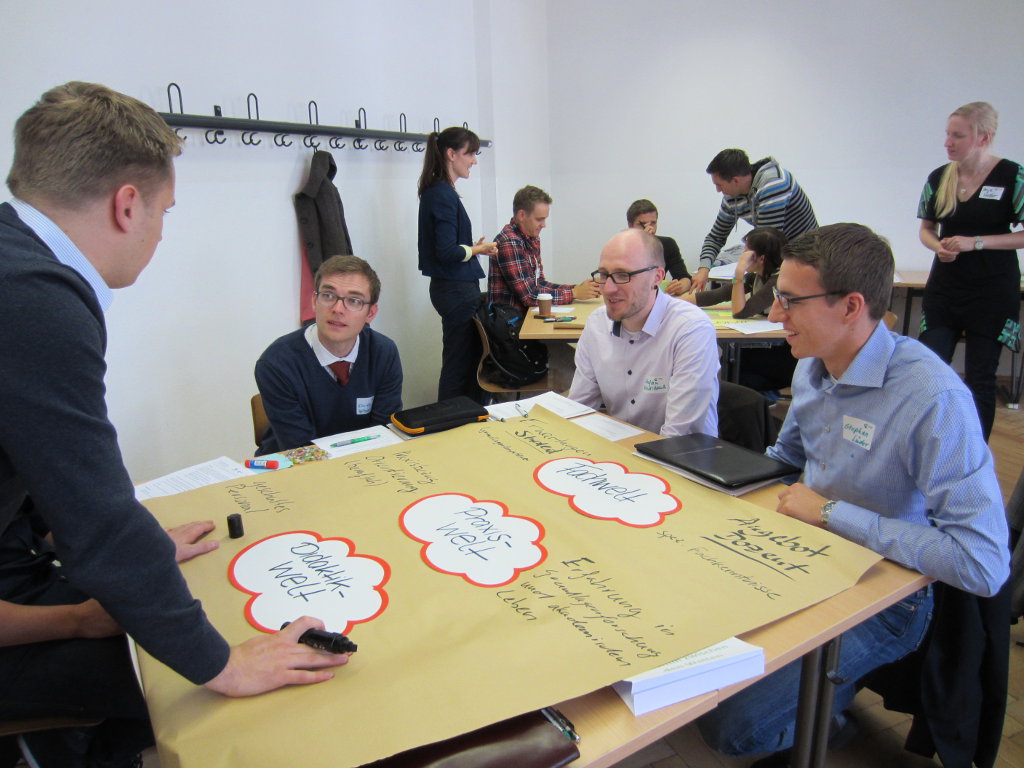
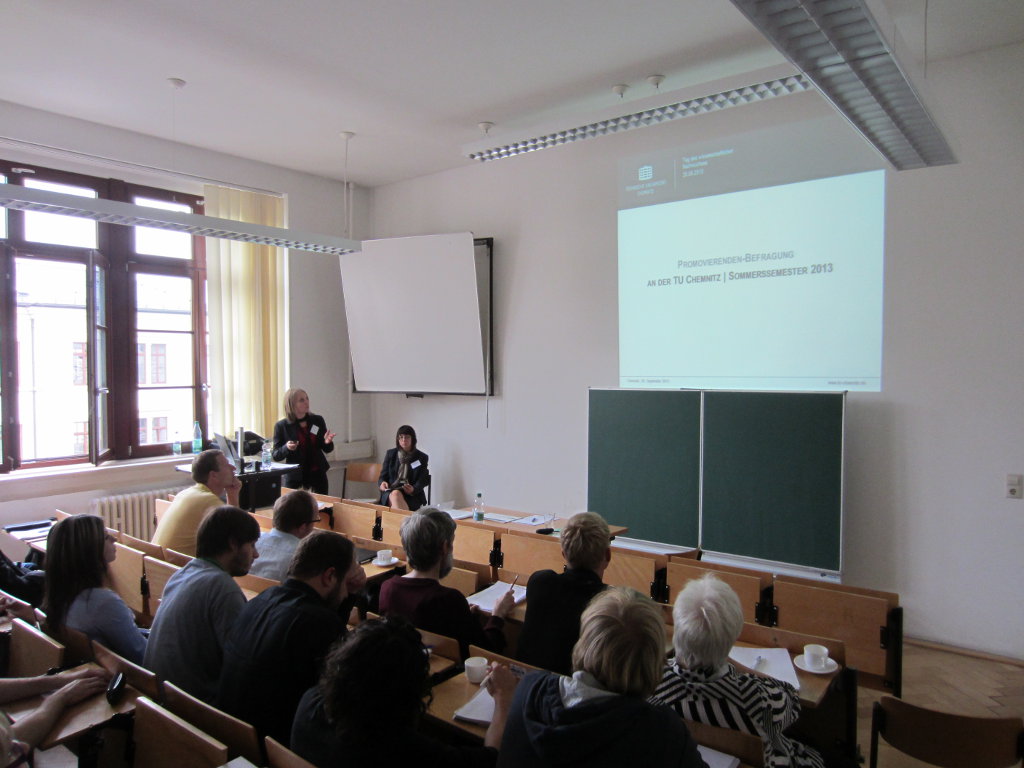
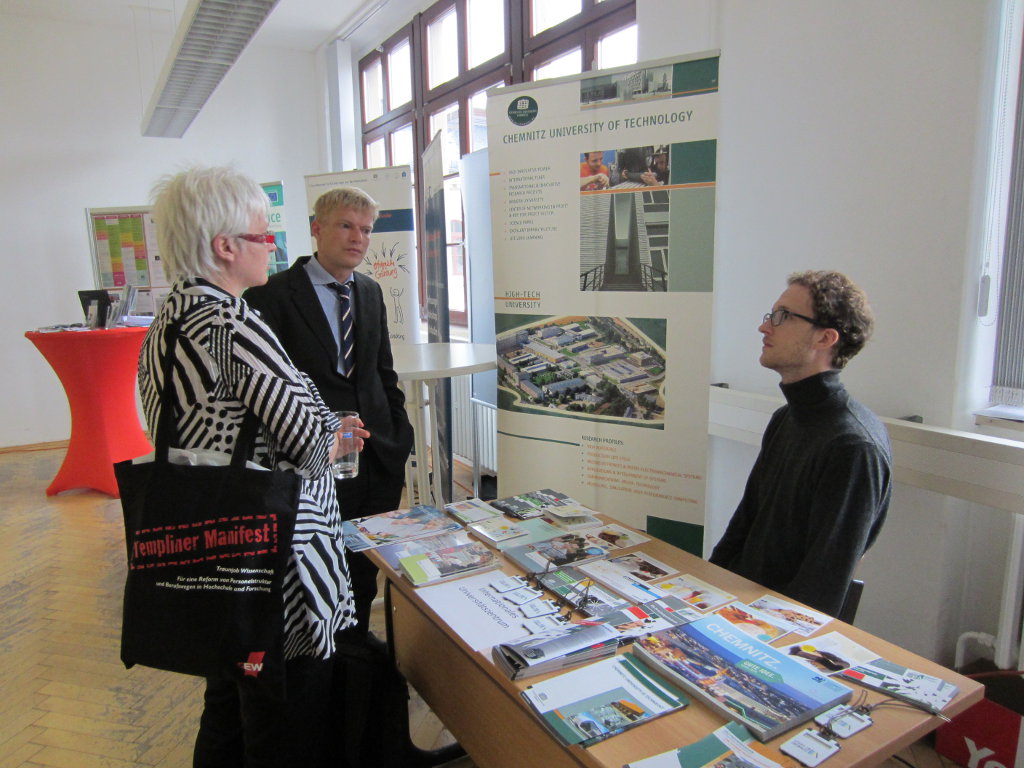
Exhibition 'Doing a doctorate in the past and these days'
While visiting the exhibition, interested persons had the possibility to take a journey back to the beginnings of the right to confer doctorates at TU Chemnitz. Older and new doctoral theses were exhibited and visitors had the chance to compare older doctoral degree regulations with newer ones.
Photo competition 'Me and my doctoral thesis'
The aim of the competition was to gather creative photos and funny snapshots which tell personal and powerful stories of the own doctoral thesis. Several submissions have been received. The award ceremony of the photo competition as well as the opening of the photo exhibition, which were supplemented by a similar competition of the Leipzig Research Academy, took place in the late afternoon. We would like to thank Gesellschaft der Freunde der TU Chemnitz for providing us with the prize money of 300 Euros in total. In the future, the photo competition should take place annually. In this way, the doctorate at TU Chemnitz is also connected to personal experiences, faces and stories. In order to create an identity and culture of graduation, the competition represents the variety of research topics.
Our awardees
Get-together with the Andrej Kogan Jazz quartet Chemnitz
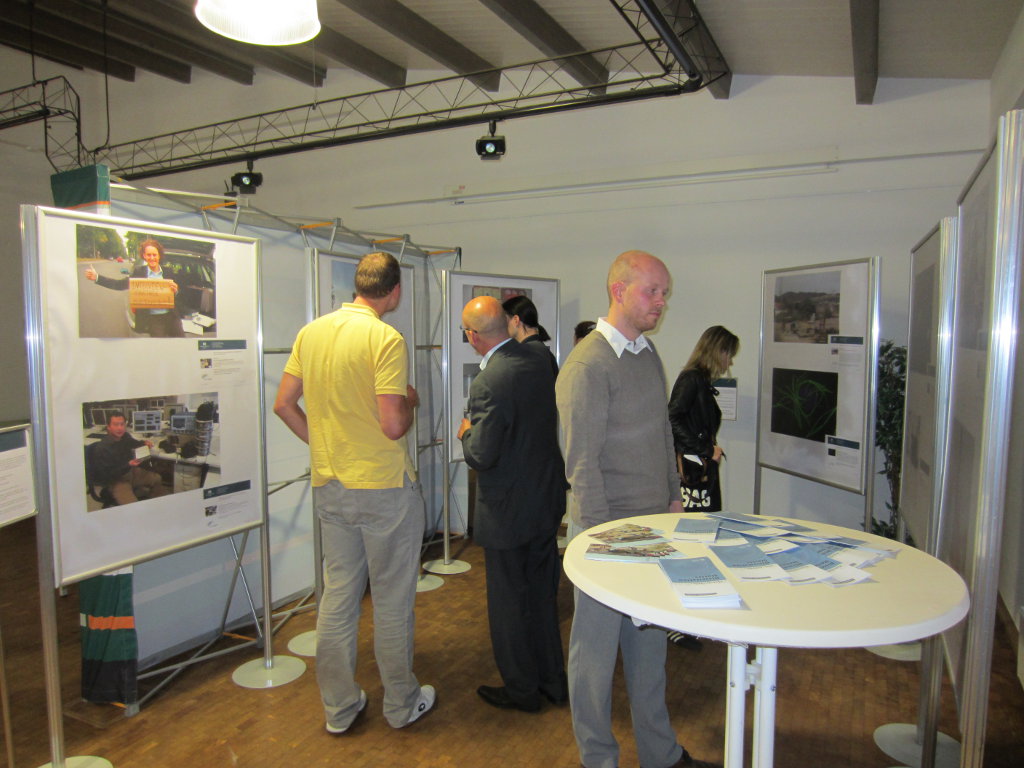
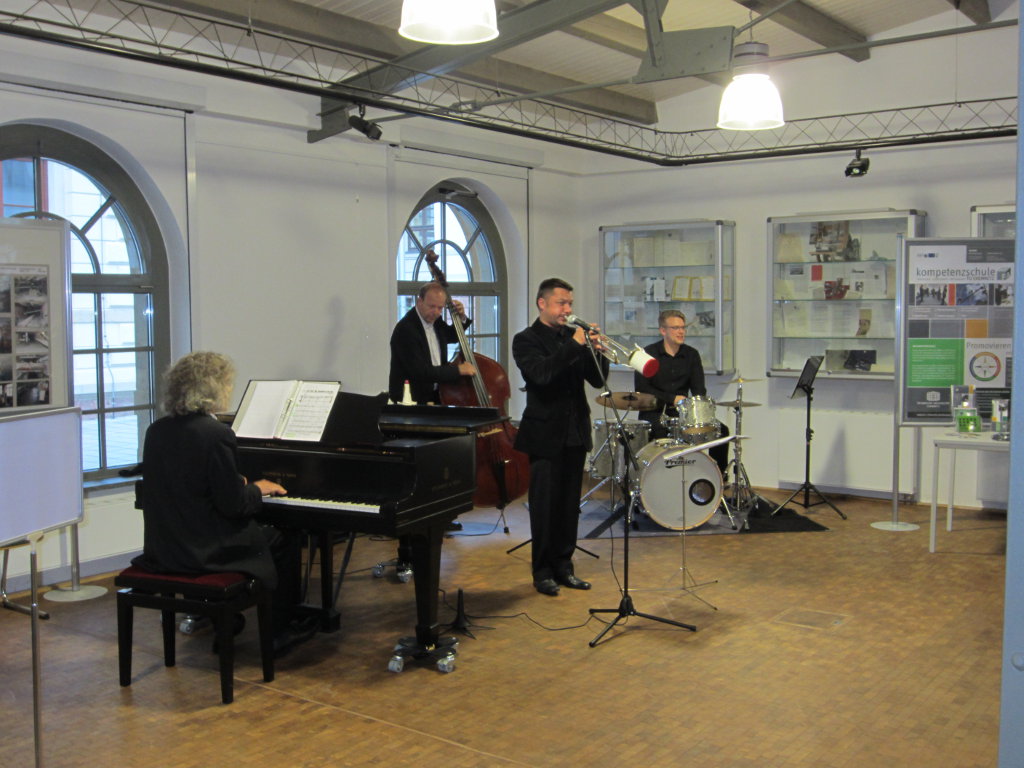
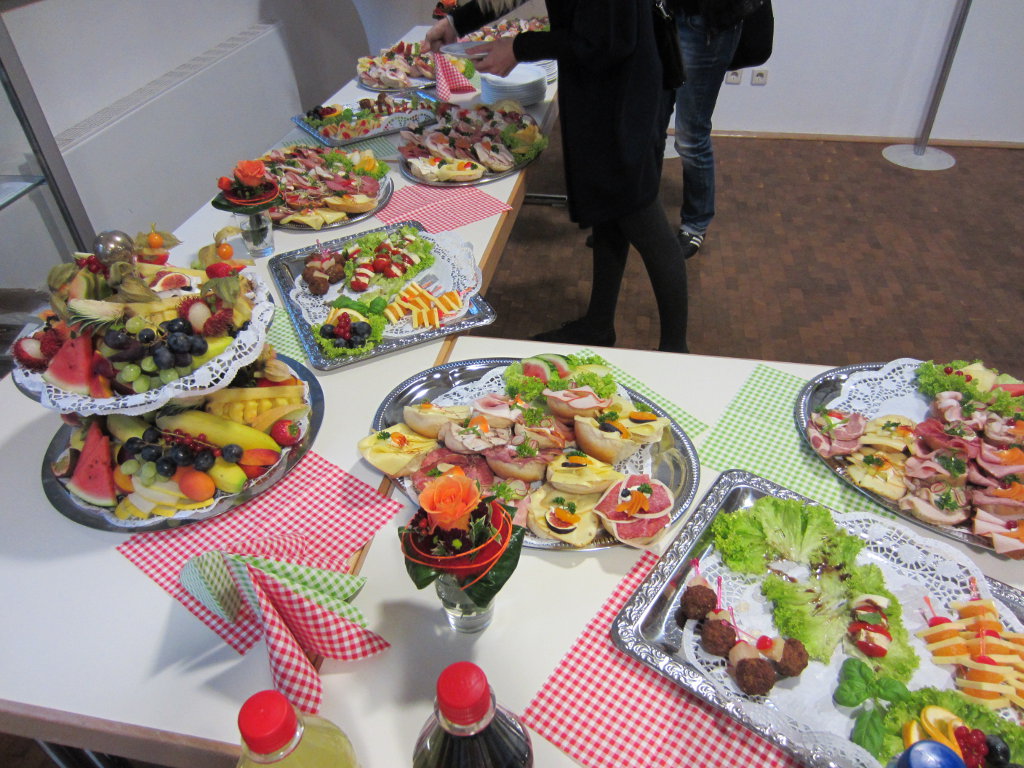
We thank all who have contributed to a successful premiere through his/her participation and organisation.
|
Prof. Dr. Heinrich Lang
|
Annett Schädlich | Dr. Daniela Menzel |
Vice-Rector for |
Head of |
Project Manager |


